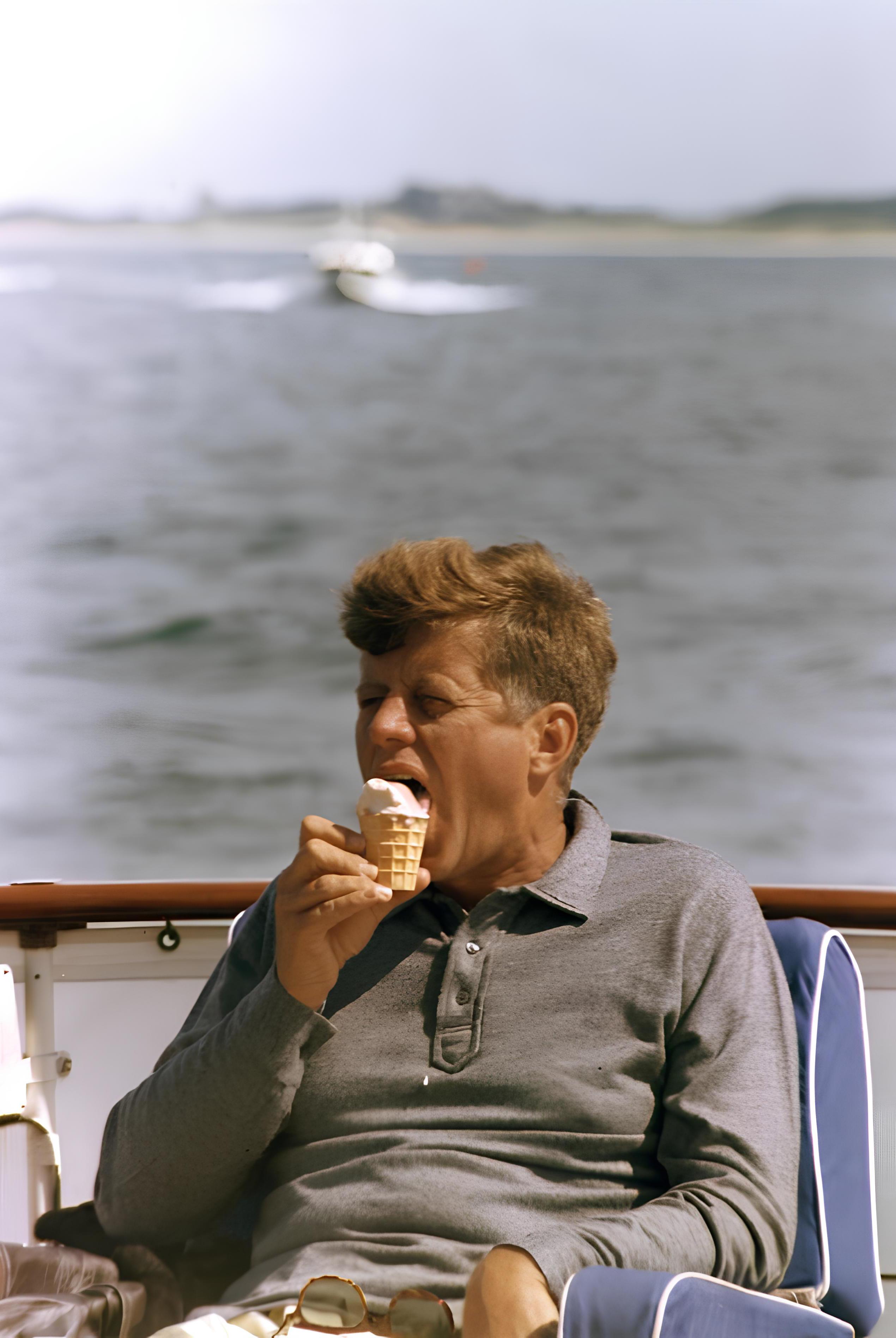

TheSummerOpiate 2025, Vol. 42
The Opiate
Your literary dose.
© The Opiate 2025
Cover art: John F. Kennedy eating ice cream on his yacht, Honey Fitz, on August 31, 1963 by Cecil W. Stoughton This magazine, or parts thereof, may not be reproduced without permission. Contact theopiatemagazine@gmail.com for queries.
“We’re half awake in a fake empire.”
-The National
“All a girl really wants is for one guy to prove to her that they are not all the same.”
-Marilyn Monroe
The Opiate, Summer Vol. 42
Editor-in-Chief
Genna Rivieccio
Editor-at-Large
Malik Crumpler
Editorial Advisor Anton Bonnici
Contributing Writers:
Fiction:
Steve Novak, “Addicted to Love” 10
Barry Fields, “Caretaking” 22
Antonia Alexandra Klimenko, “Synchronicity” 30
Arthur Davis, “Friends for Life” 46
Ken Post, “Lincoln Street” 56
Salvatore Difalco, “Conversations With the Cardinal” 63
Nonfiction:
Renshaw, “I’m Supposed to Smile as if God Knew That I Would be Troubled” 75
Poetry: John Tricarico, “Erased By a Mirror” 85
Priscilla Atkins, “À la Harpo, 1992” & “Jackie, Pat and Me” 86-89
Frank Freeman, “The Shock of Recognition” 90
Gaia Huaira Capizzi Candiracci, “Room-by-room eulogy of my first studio apartment, and the girl that lived in it,” “Only Threw This Party For You” & “Un Mondo a Parte” 91-96
Hedy Habra, “Vanishing Point” 97
Sophie Roy, “The Door Is Closed” 98-99
Kathryn Adisman, “Goodbye, America” 100-101
Xavier Jones, “May As Well” & “Shh!” 102-105
Jonathan Ukah, “Death Does Not Know How to Kill,” “I Saw My Ancestor in the Moon,” “Dead on Arrival,” “A Shadow of Himself” & “If I Could Have My Time Again” 106-110
John Grey, “Desert Time” 111
Onix N. Vanga, “B-1-gone,” “People” & “Conversations With the City” 112-115
Stephanie Watkins, “Carry On,” “River,” “Girl Under Water,” “Night Swimming” & “Silver Thread” 116-122
Jennifer LeBlanc, “Superbia, Pride,” “Invidia, Envy” & “Chart Reading II” 123-125
Robert Witmer, “Critique of Pure Reason,” “Perspectives,” “Put It On a Postage Stamp,” “Beloved, My Belated, Beloved” & “Where the Wind Blows” 126-130
Criticism:
Genna Rivieccio, “Lambs to the Slaughter: The ‘Kennedy Women’ of Maureen Callahan’s Ask Not: The Kennedys and the Women They Destroyed” 132
Editor’s Note
Depending on which member of a certain generation you ask, each one will offer a different “pinpointing moment” for when it all went tits up for the U.S. The moment, in other words, where it was no longer an “empire,” but a republic in perennial decline. A decline that has presently turned into more of a rotting decay. Those from the millennial generation might tell you this decline/ decay began on September 11, 2001 (or maybe even November of 2000, when Bush II shadily “won” the election against Gore). Gen X might tell you it was the Iran-Contra affair...or the suicide of Kurt Cobain. Gen Z, if they could lift their heads up long enough to see it, might tell you it was TikTok. But it‘s really the baby boomers who have far more “pinpoints” to offer, starting first and foremost with the assassination of John F. Kennedy on November 22, 1963 (followed at a close second by Richard Nixon‘s entire presidency).
And perhaps it‘s only right that the baby boomers should be the ones to more fully grasp the moment when it all went to shit since they, too, are the ones who got to experience the U.S. at the height of its sheen. One that quickly gave way to dullness when the economic boom that occurred after (and during) WWII busted, big time. Making it far less of a “breeze” to sell the so-called American dream. Which has always been, at its modern core, the promise of everyone being able to live a middle-class life. A.k.a. a “comfortable” existence. Even when James Truslow Adams first popularized the phrase, his explanation of it, despite favoring the ideas of freedom and democracy, still referred to the trappings of wealth that America had become known for. Ironically, of course, Adams’ summation of the American dream arrived in 1931, at the very beginning of one of the country’s most marked nadirs, economically and otherwise: the Great Depression. At the same time, the storm of that era was weathered by a president that continues to be regarded as one of the best (or at least most competent) in U.S. history: Franklin D. Roosevelt.
Alas, like many presidents who are a “product of their time” (that phrase designed to excuse away all shitty behavior), FDR hardly had a squeaky-clean track record vis-à-vis his treatment of those who have been placed in the “other” category in the U.S. ever since the moment it was colonized. But still, one must look to his
more avant-garde policies (even if Eleanor was secretly at the helm) for reassurance about his lasting legacy. This includes, needless to say (unless you’re talking to someone in Gen Z and afterward), his sweeping implementation of social programs that would make the likes of Donald Trump foam at the mouth. Indeed, perhaps more than any other modern president, FDR remains the one most closely associated with advocating for “average” Americans. Which is to say, working-class people with little give in the direction of “upward mobility.” The same can’t be said of another president who is often still put on the same pedestal as FDR: JFK.
Though not by everyone. In fact, in the sixty-two years since Kennedy’s assassination, the reverence that was once assured by such a death (further compounded by being shot down in his prime) has waned. Not just because RFK Jr. has succeeded in totally decimating all “prestige” associated with the Kennedy name, but because, in reevaluating who Kennedy was as a person, it’s plain to see that the ethics, integrity and moral uprightness he built his image on was little more than a smokescreen. And one that was thickened by his “good looks.” Though, in truth, these alleged good looks merely served to corroborate that, for far too long, the U.S. had been saddled with old, graying men as their ruler, therefore making JFK seem like a “total snack” in comparison. Which just goes to show, when people’s standards are set low enough, you can make them believe something that’s just okay is actually amazing. As Cecil W. Stoughton managed to do with many of the photos he took of the Kennedys during his tenure as JFK’s White House photographer. To be sure, it’s Stoughton who can be held largely responsible for simultaneously glamorizing the Kennedys’ family life and making them seem so “relatable” in the process.
And yet, among all the many images he took of JFK, one that stands out in particular for its lack of a veneer (or “Kennedy shine,” as it were)---apart from the post-assassination image itself---is a photo that was snapped while “Jack” was aboard his yacht, the Honey Fitz, at the end of the summer of 1963 (specifically, August 31st). His last summer. Which is part of why the image is so poetic. So symbolically on the nose. For not only does it reveal a kind of foreshadowing of the demise of Kennedy, but also of the United States itself. That is, the United States that
The Opiate, Summer Vol. 42
was once known as a “land of promise.” For here you have the image of a man who has been totally deglamorized, stripped of all traces of his erstwhile glittering façade (paunch on display and everything). Eating an ice cream with the same aplomb as a grizzly bear and, accordingly, letting a glob of that ice cream drop onto his clothing. No fucks given. Sure, he still looks tan (sandblasted even), “vital,” but it’s obvious he’s in “letting it all hang out” mode. A mode that has been in activation for the president with increasingly fewer barriers since the Orange One took up the office for a second time at the beginning of 2025.
So yes, maybe the baby boomers have the more accurate “pinpoint moment” for when America, the concept, the shiny symbol, began its slow death that has been going on since at least 1963. As it continues its long-winded death rattle, some keep wondering, “When will you just die already?” Because perhaps the only thing worse than having a revelation about something---the curtain pulled back on a hard truth---is having a revelation about something and refusing to acknowledge it in a way that effects actual change. It seems that more and more Americans (read: the whites who are always late to understand how fucked things are due to their inherent privilege), regardless of their generational assignation, are finally seeing that America ain’t all it’s cracked up to be, and it never really was.
It is only through this collective realization that perhaps something can be done about it. Something to rebuild it. Of course, rebuilding requires tearing down everything that many are still too “precious” about to let go of (myself included).
Under construction,
Genna
Rivieccio July 2025
FICTION
Addicted to Love
Steve Novak
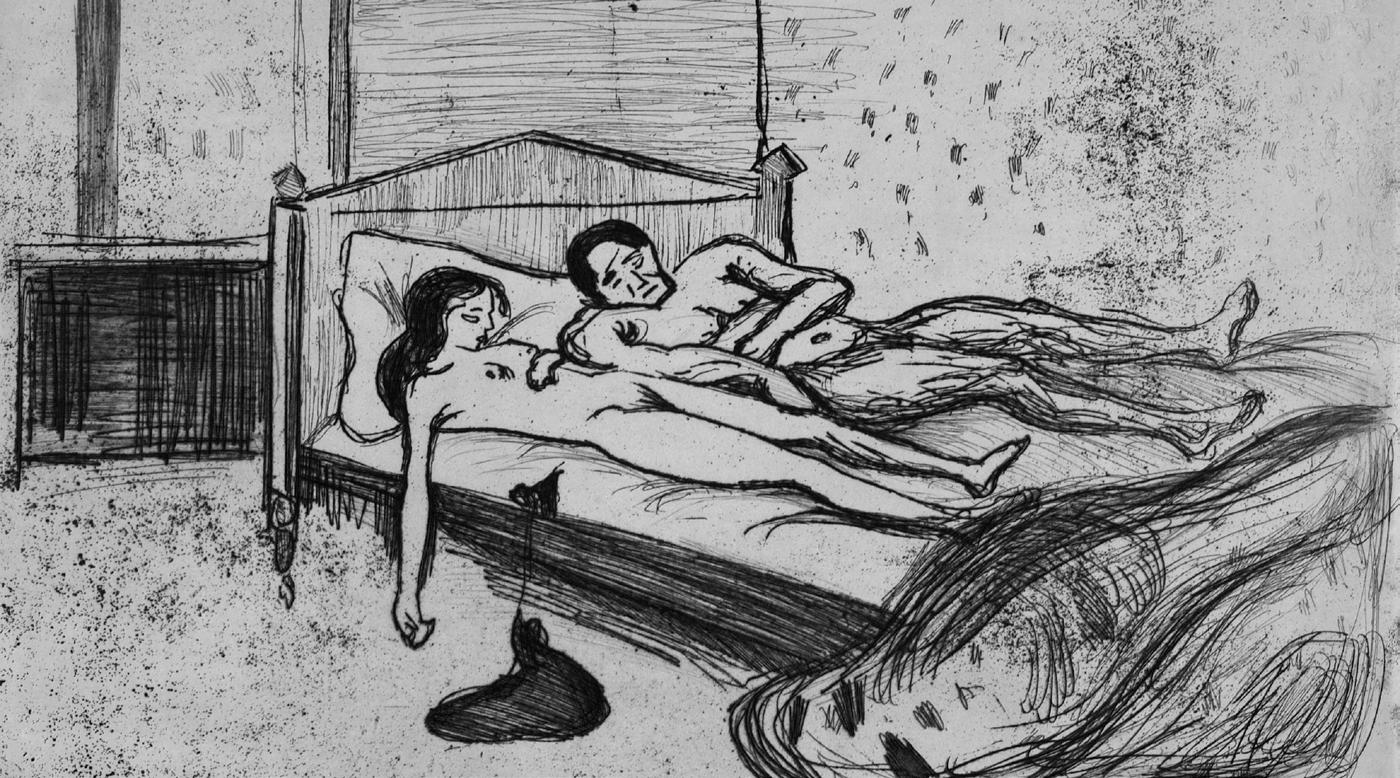
Sprawled in the dirt, Sarah and Troy rested in each other’s arms. Troy and Sarah. Having been separated for a time, they were back together, and would remain together until the end. They were in love and enjoyed a warm embrace.
It was impossible to guess the original color of Troy’s shirt, but the message advocating kale was still readable. Sarah wore a faded yellow sundress. A light breeze lifted the hem, threatening to reveal more of her thigh. In other circumstances, Troy would have felt some carnal excitement at the prospect, but not now.
Because at that moment, the pair lay in their own filth behind an abandoned house, both in a hallucinatory stupor. And they would very soon be dead. Because the warm embrace they enjoyed was not with each other, but with the heroin that flowed through their veins. Too much heroin. Too much poison. And while they loved one another, they also loved the high. And hated it. Because that was what had separated them.
For both, the cause of death would be recorded as a drug overdose, and for Sarah that was true. But not for Troy. No; Troy died from something else, something that couldn’t be detected by a post-mortem examination.
What killed Troy was a broken heart.
“We’re going to get married and have three children: two girls for you to spoil, and one boy for me to play ball with and build things with. I’ll work, and you can stay home and raise the kids.”
“We’ll both work because I want my own career, not to just be your plaything.”
“Okay, but you can still be my plaything even if you have your own career.”
Sarah and Troy dated all through high school and college, and had talked about marriage, but the time had never been right. While Troy excelled, Sarah struggled.
“You’ll find something, don’t worry. You’ve got plenty of time to figure out what you want to do.”
“I know. I just don’t want to be a burden on you.”
“A burden? Just the opposite. I’d never have gotten through school or survived those summer internships from hell if it weren’t for you. I don’t know what I’d do without you.”
Troy rose quickly through the corporate ranks.
“You are looking at the newest senior vice president at First United Bank.”
“Oh, honey, that’s wonderful! I knew you’d make it!”
“And,” Troy continued, “with that promotion comes a private office, my own parking stall and an administrative assistant.”
“Ooo, your own assistant?”
“Well, no. I have to share the assistant, but it’s still a big deal. Before, I had to do all my own grunt work, now I have some help.”
He was teasing, but he was proud of his accomplishment.
Sarah bowed and motioned him to the table with a flourish.
“Sit down, Mr. Senior Vice President. Dinner will be served shortly.”
“Thank you, my dear. The promotion is nice, but what would be even better is coming home and finding you here waiting for me. It’s going to be more work, but as long as I have you, it’ll be okay.”
Sarah smiled, but said nothing.
Maybe we can get married and start our family now, Troy thought. Soon. It would be soon.
Not long after he shared the news of his promotion, Troy took some time out of his always-busy day to book a weekend getaway. On a hazy Thursday afternoon in August, he was in the midst of searching for flights when his phone rang.
“Sarah’s in the hospital.”
It was Sarah’s mother. He knew by her tone the reason, and it
The Opiate, Summer Vol. 42
immediately deflated him.
“I’ll be right there.”
“This is the fourth, no, fifth time she’s been brought here.”
Sarah’s father was berating his wife when Troy entered the room. “I’m done with her. I don’t need this.”
Sarah’s mother sat on the edge of the bed holding her daughter’s hand. She didn’t reply. Sarah saw the pain in her mother’s eyes.
“First it was those Vico-dans, then the cough syrup—cough syrup, can you believe it?—and now this. What’s next? Where do you go from here?”
“...the pair lay in their own filth behind an abandoned house, both in a hallucinatory stupor. And they would very soon be dead. Because the warm embrace they enjoyed was not with each other, but with the heroin that flowed through their veins. Too much heroin. Too much poison. And while they loved one another, they also loved the high. And hated it. Because that was what had separated them.”
“I’m sorry! It won’t happen again, I promise!”
“You promised last time. And the time before that, and the time before that.”
Sarah’s father wanted to be angry, put on a show of being angry, but he was really just tired and frustrated.
“I know. I know. But this time it will be different. I’ll get help. I’ll go back to rehab.”
Troy stood silently at the foot of the bed, his head hanging, not looking at Sarah.
Sarah did go to rehab. Again. Six weeks later, she was released with optimism and anticipation of a brighter future.
“We talked about what made me relapse.”
Troy listened, knowing she was full of energy after her discharge and needed to talk.
“I was so happy to hear about your promotion, but it made me feel inadequate. More than inadequate; worthless. You’re doing so well, and I’m going nowhere. But that’s not what triggered me. It’s that I feel like I’m hindering you, holding you back. You’d be doing even better if I wasn’t an albatross around your neck.”
It pained him to hear that...because it wasn’t true.
“You’re not holding me back. It’s because of you I made it this far.”
Sarah reached out to stroke his cheek but stopped. She looked into his eyes. “I wish I could do more.”
He pulled her in for an embrace. “You do more than I could wish for.”
“Hmm. How about this? I’m going to get a job, a real job, I mean, and be the best girlfriend/fiancée/future wife you could ever hope for!”
“Okay, but you’re already more than I ever hoped for.”
They both felt optimistic, yet it was tinged with fear.
“Real” jobs for unskilled recovering drug addicts who have been in and out of rehab and arrested several times are hard to find. Sarah became discouraged.
“It’s okay, sweetie, there’s no hurry. Something will come along.”
On the pretense of going to job interviews, Sarah instead met up with friends. She drifted back into old habits and back toward the people who enabled and used her. She fell into despair. Two months after her release, Sarah shot up again in a friend’s basement. The real world was hard; getting high was easy. She hesitated, briefly, thinking of Troy and how let down he’d be.
“I shouldn’t,” Sarah said.
“It’ll ease the pain,” her friend reminded.
Troy and her parents suspected but held their tongues.
Is she at it again? Can’t anyone else see it?
She’s losing weight; she looks so thin. Am I the only one who notices?
They didn’t want to believe it. They pretended everything was okay. They felt guilty about their suspicion. Each thought they were alone in their mistrust. When her parents returned home after an evening out and found her unconscious in the flower bed in front of their house, they could no longer pretend.
Sarah disappeared the next day. Her father’s angry outbursts and her mother’s crying she could handle, but Troy’s quiet sadness
The Opiate, Summer Vol. 42
drove a stake through her heart.
***
“I love her. I have to help her. I know she just can’t give it up, and sometimes I think she wants to live that way, but somehow, some way, I’m going to help her through this.”
“Are you sure that’s what you want to do?”
“What do you mean?”
“You’ve tried helping her, for years now, and she’s right back at it. Don’t you think you’ve tried long enough?”
“Long enough? There is no ‘long enough.’ It’s a disease, and if it can’t be cured, it can at least be kept at bay. I’m not giving up on her, no matter how long it takes.”
“You know she has to want to change. You can’t do anything until she wants to change.”
Kevin knew it was a cliché and it didn’t help, but he didn’t know what else to say. No one knew what to say.
“She does want to. I know she does.”
Kevin hoped that was true. So did Troy.
***
“I found her.” Troy had called Sarah’s parents. They’d been worrying for several days. Troy took her to their house.
“She’s sleeping now. You should go and get some rest.” Sarah’s mother looked pale and thin, Troy thought, as she spoke.
“Okay.” He paused. “What about tomorrow? Somebody needs to stay with her. I have meetings all morning, but I can come in the afternoon.”
“I can go in late. Her father will go in early and come home at lunch. You get here when you can.”
“After that, we’ll take it one day at a time,” her father said. He spoke to his hands that were resting palms-up on the table. He didn’t have the energy to raise them to his face.
“We’ll get through this. She can overcome it if we help her. Let’s not get discouraged,” Troy urged, trying to keep his hopes up. But it was hard, even for him.
***
“Your favorite, buttermilk hotcakes and a side of eggs.”
“You are far too good to me, Miss Sarah.”
The periods between Sarah’s relapses, when she wasn’t using, were glorious. She and Troy were so happy together.
“I am, aren’t I?”
But there was always an unspoken fear. Will she stay clean? For how long? Even so, Troy didn’t only love her when she was clean. He loved her regardless. Dirty, incoherent or lashing out at him in her fog; he loved her.
“It’s hard on her since I got the promotion.”
“Why’s that? Is she upset you’re moving up and she still can’t find a job?”
“No, no, it’s not that. I’m working more, and longer hours. I’m not home as much, and even when I am there, I’ve often got work I brought with me.”
Kevin nodded. “Hmm.”
“She gets bored. And when she’s at home, her parents hover around and watch her. They’re only concerned, but it’s annoying. I couldn’t take that myself. And if she’s at my place, there’s only so much cleaning or cooking you can do. She doesn’t have any hobbies; she has trouble staying focused. And she doesn’t have any friends to speak of. At least not ones she can hang out with and do regular things.”
“Yeah, it’s not good for her to be around those, uh...”
“Users?”
“Yeah.”
“And when I’m done with work, I’m too tired to want to go out and do anything. I just want to sit in front of the TV for a while.”
“And she wants you to take her out?”
“Out, or at least do something with her. Play cards or games or something.”
“Uh huh. It’s tough.”
“It is. But I feel so bad. I want to do things with her. I want to take care of her. Maybe I shouldn’t have been so ambitious. Maybe I should have stayed in mid-management, in a nine-to-five, and had more time and energy.”
“But you can make her more comfortable now. She doesn’t want for anything. She doesn’t have to worry about anything.”
“That’s just it. She’s not comfortable. She does want, she does worry. Sarah wants me to be around more. She worries that I’ll get tired of her, that I’ll run off with some high-powered executive type. It doesn’t matter how much I tell her I love her and I’ll never get tired of her, if I’m not there to be with her... It tears me up. It rips my insides apart.”
“Sarah! Honey?!”
Sarah wasn’t in the kitchen when Troy got home. She wasn’t watching television. She was passed out on the bed in her clothes, disheveled, her hair a mess.
“Honey?”
It was no use trying to wake her. As gently as he could, he made her more comfortable and tucked her in. Then he lay down next to her and stared at the ceiling.
“Sarah!”
No answer.
She didn’t respond...because she wasn’t there. He didn’t call her parents because he didn’t want to worry them if she hadn’t gone home. He sat up waiting. She didn’t come in.
He left her a note in the morning before he went to work.
I love you!
Call me!
“Sarah? Honey?”
Sarah sat at the table. Slumped at the table would be a better description. She could barely keep herself upright.
“Can you eat a little more? Just a bite?”
Seeing Sarah grow thinner didn’t help Troy’s appetite. He felt ill watching her nibble at her food. It wasn’t so much the amount she ate, but how she ate it. She pushed the food around her plate slowly, poking at it, mashing it up. She’d put tiny bites in her mouth and chew in a way he thought resembled some sort of reptile.
“A little more. Please?”
When she wouldn’t eat any more, he’d help her to the couch and turn on the TV for her, or help her to bed. When he returned to the table, he’d stare at his plate for a while before dumping what was left.
“Troy, you on a diet?” a co-worker asked. “You look like you’ve dropped a few pounds.”
“No, not really. Just eating less.”
His friend Kevin noticed too. “You look like hell.”
“Thanks.”
“No, I mean you don’t look well. Are you okay?”
“I’m fine. Just tired.”
“I’m sorry I haven’t seen you in a while. What’s it been, a couple of months?”
“I guess.”
“It’s Sarah, isn’t it? She’s wearing you out. Seeing as how you look, I’m guessing she hasn’t improved.”
“No, not improving. If anything, she’s getting worse. I can’t get her to go rehab or counseling, and she seems to be getting in deeper, if that’s even possible.”
“So what are you doing?”
“Whatever I can. But my job’s kicking my butt on top of what’s going on with her. Sometimes I don’t see her for days, and I can’t relax or sleep when she’s gone. And when she comes home, about all I can do is try to get her to eat and keep her clean. I have to wash her, her clothes, the sheets, the blankets and just about everything else. She’s pretty nasty sometimes when she comes back. And sometimes she brings someone else, so it’s two or three times the nasty. I should have bought soap stocks.”
Kevin attempted a weak smile. He couldn’t do anything and had nothing to say, so he just sat looking at Troy.
“Sorry, you don’t need to hear this.”
“It’s okay. I’m just worried about you. And Sarah too, of course. What can I do for you?”
“Nothing. I don’t know. I don’t know what to do for me. Sleep. Sleep and peace are what I need, but I don’t see either one happening anytime soon. I just don’t know what to do.”
Kevin started to say something before he caught himself.
“I know what you want to say, but I’m not giving up on her. I love her.”
“I wish you wouldn’t do it, but if you have to, do it here where I can watch over you. I worry when you’re out there.”
Troy had heard of safe spaces and thought he could make one for Sarah. Provide her a place where she didn’t feel judged, so then maybe he could help wean her off it. He didn’t know if it would work, but he had to try.
“Nooo! I don’t want you to see me. I don’t want to do it, you know I don’t, and I don’t want you to see me do it.”
“But it’s worse when I don’t know where you are or if you’re going to come back. Do it here. Please. For me.”
Sarah hated what she did to him, but as hard as she tried, she couldn’t give up the drug.
The first time Troy watched her inject, he nearly vomited. It didn’t take long for him to get used to it. Sarah, however, had more difficulty. She felt anxious with Troy there. She couldn’t stand to see Addicted
him trying not to watch her. It ate her up inside worse than the drug did. So she snuck off. She slunk away. To places where he couldn’t see.
“There’s nothing else you can do.” Kevin tried not to sound callous, but he was frustrated that Troy couldn’t see what he saw: a lost cause.
“There is.”
“I want to try.”
“No! No, you can’t!”
“I want to. The only way I can understand you is to try it myself.”
“No! Please, no!”
Sarah was scared. What was Troy doing? She refused him. He insisted. She held her ground. She had ruined her own life; she wasn’t going to let him destroy his. She ran. Hid herself. Away from Troy, and away from the remnants of the life she once knew. This time, she didn’t come back.
Sarah lived, if it could be called that, in a squalid room next to a dank and fetid alley on a little-traveled street. Below the level of the road, it felt like a tomb. Separated from the land of the living by a broken, ill-fitting door and a short flight of stairs, she was also separated from the one who loved her most. She prostituted herself for heroin and begged for food. She lived to get high. She got high to forget; to forget Troy and the agony she brought him.
Troy didn’t forget Sarah. He ached for her. He ached for her the way she ached for another hit. He searched. He contacted every agency and organization he could find, asking for help. He talked to the few friends of hers that he knew. At night, he roamed the streets.
After a fruitless month, he knew what he had to do.
“Do you know where I can get some heroin?”
He considered just asking people who looked like they might know. He realized, luckily, that wasn’t the way to go about it. He didn’t know about drugs, but he knew something else.
“Drinks? Sure! Where we going?”
He had never been social with his co-workers, but he began to accept their after-work invitations.
“Are you guys leaving? I’ll be right behind you, I’m just going to finish this.”
When those office gatherings broke up, he stayed until the later evening crowds materialized. And then until the late-night regulars trickled in. He became known all around town.
Friendly conversations led to rounds of drinks.
Addicted to Love -Steve Novak
“Troy! Good to see you, have a seat.”
Drinks at the bar led to after-hours parties.
“Hey, Troy, we’re going over to Sinatra’s, why don’t you join us?”
“Sure! Does he really have a karaoke machine at his place?”
“Where do you think he practices?”
“Sarah was scared. What was Troy doing? She refused him. He insisted. She held her ground. She had ruined her own life; she wasn’t going to let him destroy his. She ran. Hid herself. Away from Troy, and away from the remnants of the life she once knew. This time, she didn’t come back.”
Parties led to pot, coke and meth. Eventually, finally, for Troy, it led to heroin. H, smack, junk—the stuff he was really after.
“Yeah, man, give me a hit.”
The mellow highs of weed were soothing, coke was a thrill and meth was jarring. But heroin, it was like a locomotive coursing through his veins. Unfortunately, it was a locomotive on a circular track, never reaching a destination and always coming back around to start anew.
“You got any more? Hook me up, will you?”
Staying out all night shooting up and getting high did not help Troy’s career. It didn’t take long for his colleagues to notice his unkempt appearance and change of behavior.
“What’s up with Troy?” Aki asked, leaning back and peering around the corner after he had passed.
“I don’t know. He looks like crap, and I know he’s messed up
The Opiate, Summer Vol. 42
some work.”
His boss had words with him. HR counseled him. He denied everything. He had sick leave and vacation days stored up, and he used them all. He had a healthy bank account, but it was quickly being depleted.
“How much you got?” Troy would ask his source, while counting the cash he’d just pulled out of his pocket. “Give me all you’ve got.”
He stopped speaking with Sarah’s parents. He crept deeper into Sarah’s world, but he hadn’t found her yet. He still had one foot in the real world. He would have to give up that life completely if he wanted to find her. His boss accommodated him, unknowingly. He took his severance and hit the street.
“I got you, Boots. I just scored some.”
“Oh, thanks, man. I owe you one.”
“Maybe you can help me,” Troy said. “I’m looking for a woman.”
“You want some action? I know this chick who’ll give you some for a hit.”
“I don’t need that, I got a girlfriend.”
“Dude, you ain’t got no girlfriend. I never seen you with anybody.”
“She’s at home. Or was. I’m looking for her.”
In Troy’s clouded mind, he couldn’t tell the past from the present and he believed that past Sarah was present Sarah.
“I need to get me some too. Help me out, won’t you?” Boots’ mind was clouded too.
“You want me to give her a bump, so you can get a little something?” asked Troy.
“Help me out, man.”
“Okay, Boots, but I’ll go with you to make sure you don’t shoot it up yourself before you get there. But you gotta help me, I have to find someone.”
“Yeah, yeah, sure. Come with me. You’ll see. She ain’t no skank. She’s nice.”
“Okay, she’s nice. My girlfriend’s nice, too.”
“We gotta do it first,” Boots said to the woman, “then I’ll give it to you. I don’t want you to pass out on me.”
“Give it to me to hold, so you won’t cheat me. I don’t trust you. Not with your friend there. He want some, too? That’ll cost you two bumps.”
“He don’t want none. Says he’s got a girl.”
“Give it here anyway. I don’t trust you.”
Boots handed over the paper. The woman put it in her pocket.
“He gonna watch?”
“What do you care?”
Troy sat on the floor in the corner. He didn’t recognize Sarah. She didn’t recognize him.
After Boots got his relief, the three of them shot up together. At some point, Boots left and wandered away down the street. Sarah and Troy stared at each other.
***
“Let’s go home. I found you. Let’s go home.”
“Can we?”
They lay together on the mattress, Troy’s arm around Sarah, her head resting on his shoulder.
“I took some time off; I’m going to be swamped when I go in tomorrow.”
Troy believed he still worked at the bank.
“Tomorrow? Can’t you take another day? I haven’t seen you in so long.”
“Okay. One more day.”
They talked as if they’d been separated at the mall and ran into each other at the food court, rather than Troy’s months-long, drugfueled quest to find her.
“Do you have any more stuff? We should finish it before we go, then we’ll be done. Done for good.”
“Yeah, I’ve still got some. You’re right, we should finish it and be done with it.”
One more day.
“It’s so nice to be together.”
One more day.
“Okay, this will be the last time, then we’ll go home tomorrow.”
One day too many.
Violence comes with the lifestyle. Two men, in the right place, but not looking for love, arrived at Sarah’s room. They beat Troy mercilessly and raped Sarah repeatedly.
Deceit comes with the lifestyle. Heroin cut with impurities, cut with fentanyl, cut with broken promises, sells for the same price as pure.
***
Sarah and Troy. Troy and Sarah.
They lay in their own vomit and piss, and the muck it created. They held each other as they retched.
They finally found the peace they sought, together.
All you need is love.
Caretaking
Barry Fields
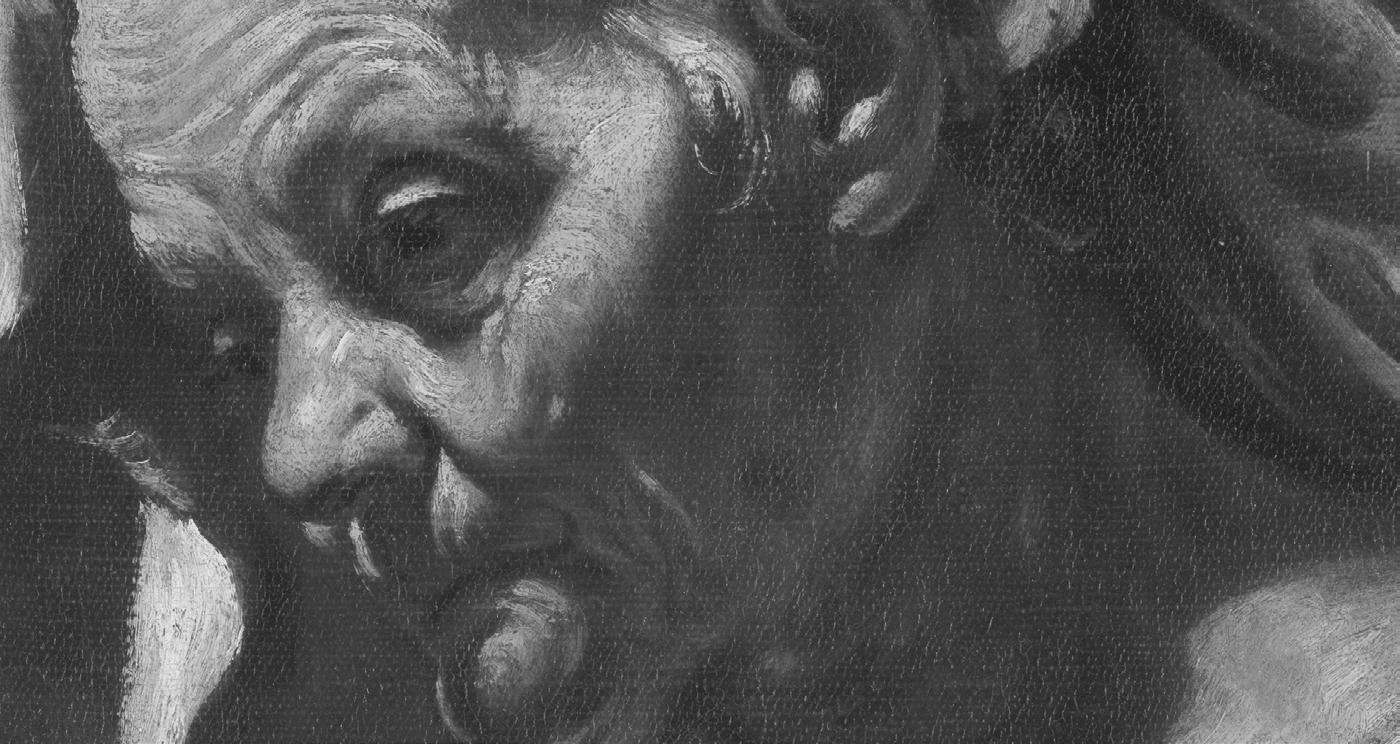
Anotice popped up on the car’s display screen. I looked down to read it just as an old woman stepped into the middle of the road. Jerking the steering wheel, I veered into the lane of oncoming traffic, almost hitting the car heading towards me, then pulled back to my side and stopped on the wide shoulder, shaking from the near miss. The woman kept standing in the road, blocking movement, unfazed by the blaring of horns or, for that matter, almost getting killed.
I ran back to her. “Hey. You can’t stand here.”
Traffic in the lane began to move again once I guided her onto the shoulder. I started to walk back to my car; the woman didn’t budge. I followed her gaze upward to some birds on a telephone wire.
“Let’s go.” My insistence made no impression, but she allowed herself to be led to the car, after which I sat her down in the passenger seat.
She still hadn’t uttered a word. With pure white, shoulder-length hair, deep furrows all over her face and sagging cheeks, she must have been in her nineties. She wore floral-patterned pants with an elastic waist and a sweatshirt in spite of the noontime warmth. She stared out the windshield impassively.
I’d almost hit her and thought I owed it to her to help. But I was pressed for time and the inconvenience rankled me.
“Where can I take you?” I asked.
Caretaking - Barry Fields
She didn’t respond, so I repeated the question in a louder voice. She turned toward me, her face still blank. “Home, mister.”
“Fine. What’s the address?”
She didn’t answer.
I started the engine, got off the busy road at the next light and pulled into a strip mall. “I need an address. You don’t have to tell me how to get there. Just the street and number.”
The woman stared at me and I spoke, volume turned up. “Do you know where you live?”
She shook her head.
Terrific. I’d driven three hours, on an important assignment for Rolling Stone to interview a band about their recent Grammy, and didn’t have much time. I exhaled my frustration audibly, which got no reaction from her.
“What’s your name?”
“Lydia.”
“Lydia what?”
“Smith.”
“Who do you live with?”
“Johnny.”
“Who’s Johnny?”
“Johnny.”
My exasperation got the better of me. “Come on, Lydia!” I almost continued yelling at her to quit acting dumb, but I could see her mind was gone. I felt like I’d committed an assault.
Sheepishly, I asked, “Is Johnny your husband?”
“My son.”
“Johnny Smith?” More frustration. She’d given me one of the most common names on the continent.
She spread her fingers and regarded her wrinkled hands. Her nails needed to be cut.
Information found no listing under her name, but had two John Smiths I decided to call. Not related. John could be a middle name, he could have a different last name, who knew what?
The thought of leaving her there crossed my mind, but it would have been wrong, like abandoning a lost child. I pulled back onto the street. “Lydia, I’m going to drop you off at the police station. They’ll be able to help you.” Google Maps showed it as being less than a mile away.
“No. Not the police. Not there.” She began trembling and crying and tried to open the door. “Not there,” she yelled hysterically, “Not there.”
“Okay, not there. No police.”
I considered unloading her onto a hospital. Let her be their
The Opiate, Summer Vol. 42
problem. But as far as I knew, she wasn’t sick. Just old. And it didn’t feel right. A year before, when my grandmother was sick without long to live, I visited her only once. In my thirties, I avoided her and the awfulness of her wasting illness. My parents told me I should spend some time with her, and my fiancée, Maggie, warned me that I’d regret it if I didn’t. The next time I saw my grandmother was at the funeral home. Maggie was right. I could have bonded with her during her final months and given her solace. I never got to say goodbye, to tell her I loved her. I still hadn’t forgiven myself.
“Half the family was gone now, the remaining two dwelling in a cheerless house. I stared at [the picture], struck by the mutability of life. Uneasy now, I recalled my grandmother before cancer drained the vitality from her. The possibility of my own vulnerability to time unsettled me.”
I called the band’s lead singer to say I’d be late for the interview. He said they were rehearsing and could wait another hour or two. With the pressure off for a bit, I still had no idea how to get her home. Would putting myself out to help a stranger provide redemption for the neglect of my own grandmother?
Figuring she couldn’t have walked too far, I drove back to the area where I’d first seen her. Her sobbing reminded me of my grandmother the one time I saw her during her illness, when narcotics couldn’t take away the pain and she wept the whole time. Lydia calmed down after I squeezed her hand and reassured her we weren’t going to the police. I searched in the console and handed her a fresh pack of tissues. She fumbled with it, couldn’t figure out how to open it and ultimately left it on her lap.
Caretaking - Barry Fields
“Are you hungry?” I asked.
“Are you?”
I looked up nearby lunch places and found Tony’s Deli. Lydia needed help getting out of the car, but walked steadily enough. I held the restaurant door open and she made a confident beeline for the dessert display. So she’d been there enough times to have a memory of it. I thought I was in luck, but the woman behind the counter didn’t know her, and no one in the open kitchen recognized her. I ordered minestrone soup and a grilled ham and cheese on focaccia. Lydia eyed the baked goods and pointed to a brownie.
“Don’t you want some real food? They have all kinds of sandwiches and soups and salads.” When I saw my grandmother, her inability to eat added to my distress. I dreaded a repeat with Lydia. Her index finger touched the glass. “That.”
I shrugged and the server took it as confirmation to put a brownie on a plate. Lydia wanted coffee. By the time my food came, she had inhaled half the brownie, breaking off pieces by hand and putting them in her mouth. She held the coffee cup in both hands as though guarding a treasure she feared someone would take from her.
Lydia had no trouble devouring the dessert. A relief. Crumbs dropped all over her sweatshirt and chocolate smudged her chin, which I cleaned with a wet napkin. I asked how she knew the restaurant, how long she’d lived in the city, where she grew up. She either answered, “I don’t know” or remained silent.
My writing career had taken off, and my wedding date was approaching. Riding high, I was helping Lydia as much to compensate for my past failure with my grandmother as I was to return her home safely. With her deteriorated mind and empty personality, Lydia belonged to an alien world. Although she piqued my journalistic curiosity, her condition couldn’t touch me.
I finished my sandwich and she was on her second brownie when an older couple passing by our table stopped.
“Hi, Lydia,” the woman said.
Lydia stared blankly at her.
“I’m Stephanie,” the woman nudged. “Do you remember me?”
Lydia bit into the brownie and concentrated on chewing.
The woman turned to me. “Who are you?”
“She wandered into the middle of the street nearby and I almost hit her. She doesn’t know her address and I’m trying to figure out how to get her home.”
“She lives on Elm Street between Third and Fourth. It’s less than half a mile from here. A blue house with two dogwood trees out front.” She must have seen me light up. “We’d take her, but we’re meeting friends for lunch.” She pointed to a couple sitting at a nearby
25.
The Opiate, Summer Vol. 42 table.
I thanked her.
Lydia finished the brownie and coffee. Holding the empty cup, she stretched her arm towards me. “More.”
She’d started to smell. She must have gone while sitting there. “You can have more at home,” I promised. It was a placation to get her outside.
The bulkiness of her pants suggested adult diapers. I placed a wad of paper towels on the front seat before she got in the car and rolled down the windows as soon as I put the key in the ignition.
We arrived a couple of minutes later. The house needed painting, one of the window panes had a crack in it and overgrown azaleas crowded along the fence. Lydia swung her legs out of the car and labored to get up. I helped her to her feet, walked by her side to the house and rang the doorbell.
A man opened the door and cried out, “Mom!” Wearing a t-shirt that was sweat-stained around the armpits, he was of medium height, practically bald and had a paunch. In his seventies, I guessed. Lydia stepped inside without a word.
I summarized what had happened. I’d done my part and was ready to go, but Lydia’s son had more to say to me.
“She left when I went into the backyard to turn on the sprinkler. She does that on occasion. Walks out on her own. Gets lost. I don’t know how to stop her unless I use a leash. Hey, please come in. Please. Please.”
His urgency turned the invitation into a plea. Fatigue had eroded his features and he had about two days’ worth of stubble. Interested to learn more about Lydia, I crossed the threshold and he closed the door.
“I don’t have a whole lot of time...” Then I suggested, “Can you install a deadbolt?”
He shook his head. “If I have to leave for some reason and there’s a fire...” He let the implication hang. “Thanks so much for bringing her home.” He patted her on the shoulder. No hug. “Can I offer you something to drink? Coffee?”
He guided the three of us into the kitchen. “I’m Greg, her son.”
“Steve. She said your name is Johnny.”
“That’s my older brother. He died several years ago. She gets confused.”
“She soiled her pants in the restaurant.”
Greg started the Mr. Coffee and left the room with his mom. The kitchen, like the rest of the place, needed maintenance, with a slowly dripping faucet, a buzzing refrigerator and chairs that looked
Caretaking - Barry Fields
like battered relics from the 1960s. Unwashed dishes cluttered the countertop. He’d left his computer open on the table and I read a cover letter. He was a computer programmer looking for part-time work from home.
I walked into the living room while the coffee pot slowly filled. There was a gas fireplace with the pilot light off and, above it, a mantel with some framed photographs. In one of them, I recognized Lydia as a woman in her fifties, wearing a bright summer dress with a matching smile. A man stood at her side with his arm around her, and two younger men—Greg barely recognizable and Johnny, I presumed—crouched in front of them.
Half the family was gone now, the remaining two dwelling in a cheerless house. I stared at it, struck by the mutability of life. Uneasy now, I recalled my grandmother before cancer drained the vitality from her. The possibility of my own vulnerability to time unsettled me.
Greg emerged from Lydia’s bedroom and stood behind me. “She’s resting.”
I pointed to the photograph. “What was the occasion?”
“Their anniversary.” He pointed. “That’s my stepfather.”
“They look like a happy couple.”
“They argued all the time.” He took down another picture, this one a portrait of a younger woman with pretty features and long, blonde hair topped by a black graduation cap.
“Lydia?” I asked.
He nodded. “My parents divorced when I was five. She had to work during the day and went to college at night to become a teacher. Then she went to graduate school while teaching high school. Johnny and I barely saw her for years. She wasn’t much of a mother.”
In the kitchen, Greg filled two ceramic mugs. He put a carton of half and half and a small bowl of sugar cubes on the table, adding some of each into his cup. I drank it black.
“Getting stuck with her wasn’t what I envisioned for myself. Her dementia’s so bad, she has no appreciation of what I do for her. How hard it is.”
I’d only spent an hour with her, but he didn’t have to tell me. Lydia and Greg were cellmates in a prison with only one escape. Greg’s world-weariness and the shabby surroundings troubled me as the illusion of my immunity to the future fell away.
“Once I left for college, I didn’t have a lot of contact with her. I guess it was payback for her not being there when I was growing up. I had to move in eight years ago when she couldn’t take care of herself anymore. Now I’m irritated every time I have to change her
diapers.”
Ashamed of my own earlier arrogance, I rushed to defend her. “She can’t help it.”
“Exactly.”
He stared down at his coffee and brought the cup to his lips. I had no solution for him, could do nothing other than witness his hopeless resignation. He reminisced about his marriage and the life he once had, then returned again to his oppressive present. His eyes moistened and I stared at the dregs in my cup to avoid embarrassing him.
He got up. Back turned, he wiped his eyes with his sleeve, walked to the counter and returned with the coffee pot to pour some more. I covered my mug with my hand, shook my head.
Lydia shuffled into the kitchen completely naked, holding the TV remote.
“Mom!” Greg shouted. “What the hell are you doing?”
She cowered and backed away, a hint of fear in her face.
“What do you want?” he barked.
She turned to me. “Who are you?”
Recovering, Greg said more gently, “That’s Steve. You got lost. He brought you home.”
She held out the remote towards me. “The TV won’t work.”
“Come with me.” Greg took her arm and returned with her to her room.
He had no right to treat her like that. Lydia had struggled to provide for her children and she’d wanted to better herself. I imagined I would have liked that younger version of her. Maybe Greg, too. Now they had only each other, caught in a duet, the same discordant song repeated over and over. The daily suffering they endured could be visited on anyone.
The sound of a game show suddenly blasted through the house, then muffled when a door shut. Greg reemerged and took his seat. He picked up his mug, put it down and again wiped his eyes with his sleeve. He looked out the kitchen window at the blank wall of the house next door. “I’m sorry. I shouldn’t get angry at her.”
“It’s okay.” But it wasn’t. None of what I’d seen was okay.
Greg seemed to shrink into himself, his self-pity hanging like a shroud over the room. The possibilities of his life had narrowed until only this—taking care of his mother with unending resentment and self-recriminations—was left.
A sick, hollow feeling came over me. Any words of encouragement I thought of sounded contrived.
“I’m sorry to trouble you with all this,” Greg said. “I shouldn’t.”
“It’s no bother,” I lied. I couldn’t remember ever feeling so bad
Caretaking - Barry Fields
for people. Life could crush any of us as inexorably as it had them.
Greg shook his head, stared at his coffee. “I don’t know how much longer...”
I shifted in my seat, pulled my phone out and looked at the time.
“Lydia and Greg were cellmates in a prison with only one escape. Greg’s world-weariness and the shabby surroundings trou- bled me as the illusion of my immunity to the future fell away.”
“I’m sorry. I’ve kept you here too long.”
“I have an appointment for work. They’re expecting me.”
At the door, Greg held out his hand. His grip was firm and he held on too long, as if reluctant to let me go. “Thanks for listening.”
Back in the car, I slumped against the driver’s seat, gripping the steering wheel until a couple of children playing noisily across the street broke my paralysis. I texted Maggie to tell her I’d be home late, then entered the band’s address into my phone.
Synchronicity
Antonia Alexandra Klimenko
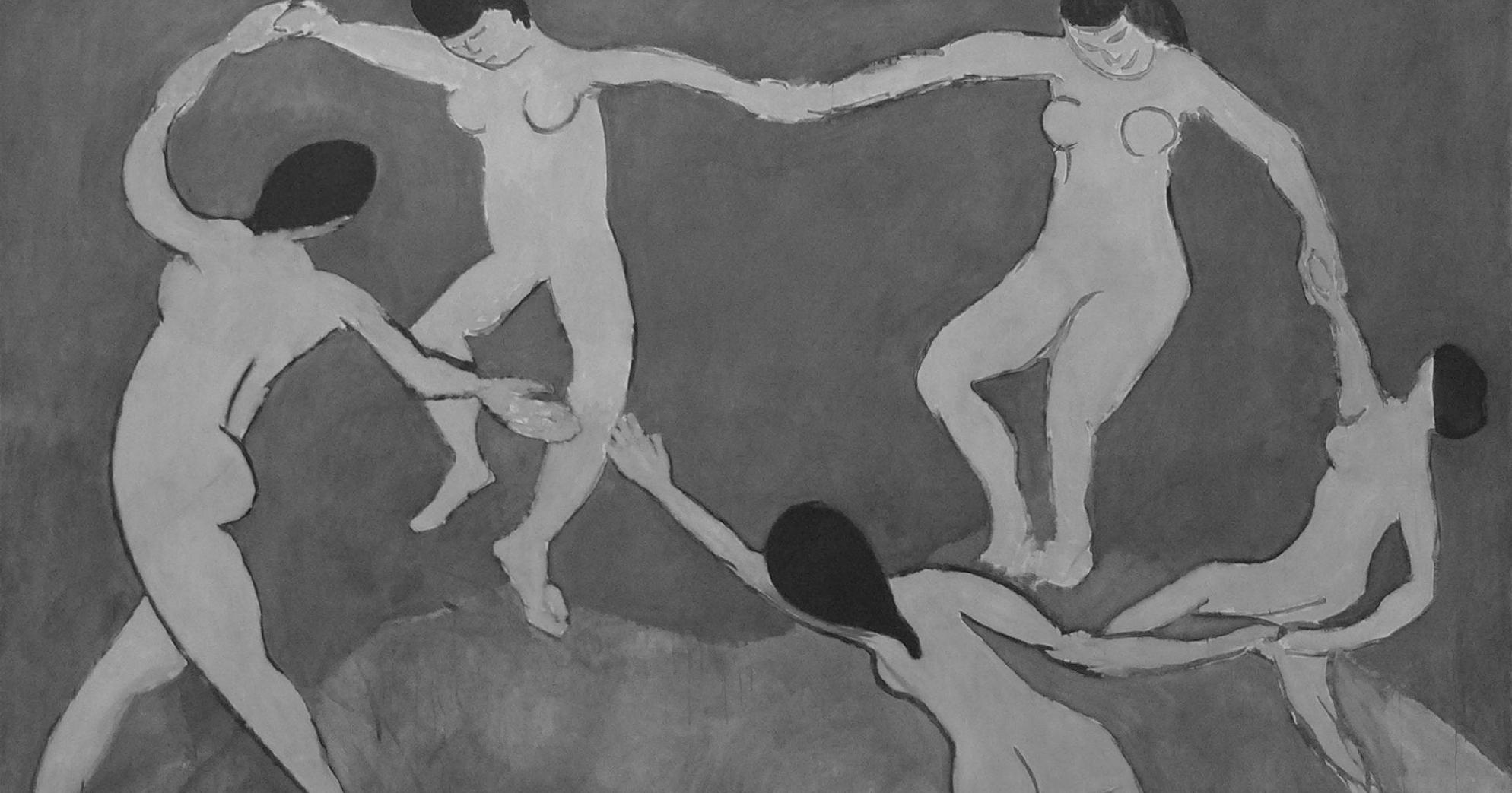
It was in the sleep of winter, at that opaque hour that the pale moon trembles on the water, when his dark radiance in all its brilliance peeked through my doorway. I had already left the door ajar in anticipation of his arrival and was just about to turn on the evening lamp when his silhouette loomed large on the wall. Walls make wonderful screens for the silent movies of imagination, especially those backlit by candlelight. Projections, themselves, magnify—transporting one to a faraway place—one of spacious possibility. Perhaps it is because it’s such a small room that I so often “travel light,” not unlike a child with a flashlight, who, under the tent-like cocoon of bedsheets, creates a private world of her own. That is, until it’s time to turn out the light. Then, another kind of darkness begins––the invisible dark; and you either learn how to make friends with it or...you must find your own way back.
“Forgive my appearance,” he began—rolling his eyes as if to mock his own feigned embarrassment. “I’ve been up all night, and I’m afraid I look like I slept in my clothes,” he admitted with a rather disarming smile unfolding from the corners of his mouth. “But that’s because I slept in my clothes! The night before, too!” he boasted. Indeed, he smelled of damp wool, burnt candlewax and yesterday’s Camembert, and I smiled to myself as I took his half-broken umbrella and
Synchronicity - Antonia Alexandra Klimenko placed it next to mine. “By now,” he mused, tucking his shirttail into his trousers in the most endearing manner, “they and I are old friends!” Then he kissed me on both cheeks, imparting the memorable sting of a cold burn, before shaking off the rain and depositing his canvas bag in a corner by the door. “Thank you for...for inviting me,” he said graciously, turning in an elegant gesture to offer a single flower. A lily.
I was immediately drawn to his sophisticated blend of old- and new-world contradictions, having a particular penchant for puzzling out the obvious mysteries of life’s eternal paradox. More than handsome, he was charismatic; therefore, I gave less attention to the costume of his undress. I do recall that he was of a robust build, with dark penetrating eyes and a trim moustache overshadowed by razor-sharp stubble. His cheeks were flushed, his forehead pensive, his expression passionate. Here was a man who was achingly alive—the coiled spring of his vibrant energy all but humming the body electric! We had spoken just days after our dear Anya passed away, and I was struck then, as I was now, by the sense of our being two intimate strangers engaged in the flow of one uninterrupted conversation.
“’Gauguin...he’s my favorite. I love the primitiveness of him. If I had money, I’d go to Tahiti and run around naked in the sun.’ ’Funny, to think that it takes money to go to a place where you don’t have to spend it...or won’t have any to spend. Guess I’ll just have to settle for running around naked here.’”
“I’m happy you’re here, Sergio” I said, still trying to find a spot for the bottle of wine he had brought.
“Here...let me.” He wasted no time in uncorking the Bordeaux and pouring us each a glass. “Yes, at last!” he exclaimed with a sense of
The Opiate, Summer Vol. 42
relief as his eyes began their search.
Recovering from seizures of highs and lows and still deep in morbid rapture, I had told him that our visit would have to wait until I felt almost human. In all honesty, I felt almost guilty for calling him. Anya would have appreciated it, but she might not have liked it.
“I visited this room in my mind, you know. It’s exactly the way Anya described it.” He looked in the direction of the bookshelves. “But different, of course. You, too; the same, but changed.” He observed me with a sidelong glance. “Transcendent. Quite human!” he concluded.
“Really?” I felt absolved. “All too human, I’m afraid.”
His lips curved into a knowing smile. “Do you mind if I take a look around?” He sipped from his glass, already resting on one of the shelves.
I watched him out of the corner of my eye, freeze-framing (I like to think) the very instant he spotted the much coveted leather-bound journals, which he did with the most guarded interest. As it humbles one to have something just out of reach, I had purposely moved them to the top shelf, only inches from the ceiling. The humbler the better.
“Oh, please...be your guest,” I said, placing a plate of sliced apples, gruyère and a baguette on a tray between us. I’d wished it could have been more.
“It’ll do.” He surveyed the room, tilting his head in my direction as if to reassure me. “The space next door is of the same dimensions?” He flashed me a Cheshire cat grin. “So small you have to go outside to change your mind?” No doubt, it was an old vaudeville joke that had become part of his how-small-is-it repertoire.
“Small, but charming,” I replied, quick to defend my modest abode. I had almost forgotten he was interested in the chambre de bonne across the hall. As it was not yet ready to be seen, I had suggested that he take a look at mine. “As I said, it might not be available for another couple of weeks.”
“Oh, no worries,” he returned with a warm lilt that reminded me he was from Barcelona. “I’ll just stay with a friend close by.” His eyes fixed on mine, he added, “But, it’s always a bit of a problem. Well...it’s just that I’m a night person, that’s when I do most of my writing, drawing too. And, if I have something that I must do in the day, I burn the candle at both ends. How ‘bout you? You a night person or a day person?”
I inhaled the exotic lily—its petals delicate, its fragrance, pungent.
“I’m a ‘both’ person. I hate to miss a thing.” He nodded before emptying his glass. “You have a lot of interesting things here. May I?” he asked, picking up a bronze replica of Isis. “I love Egyptian artifacts,” he remarked, running his fingers over the small statue in a caress. “I
used to go to the Louvre all the time and spend hours there. They have a whole Egyptian section, you know.”
“It’s been a while.” I steadied Osiris, her companion statue, which threatened to topple over. The challenge of treasured possessions in a limited space.
“But, I like the d’Orsay better, I think,” he went on. “Gauguin... he’s my favorite. I love the primitiveness of him. If I had money, I’d go to Tahiti and run around naked in the sun.”
“Funny, to think that it takes money to go to a place where you don’t have to spend it...or won’t have any to spend. Guess I’ll just have to settle for running around naked here.”
“Let me know,” he said, slyly, over his shoulder, “I’ll bring my sketchpad.”
“You say that now,” I warned, bemoaning the decline of my once artful shape and form. I stared at my red-striped canvas armoire, which I likened to a circus tent and thought of my clothes that never went anywhere. “Sometimes I imagine that my clothes whisper to each other at night. She promised to take me to the opera, says one. She hasn’t fit into me in years, says another. I’m still wearing my price tag, says the third.”
He chewed vigorously on the cheese (which, I’ll admit, was a little rubbery) as I chewed on my own thoughts. His cheeks, I noticed, were a little rosier for the effort.
“It’s time that we never seem to have enough of,” I added, remembering our dearly departed in mid-sentence.
“Yes, but, who’s counting?!” he exclaimed, polishing off another slice of apple with a flourish.
“Time is the Great Imposter. Were it not for light and dark... there would be no ending or beginning. No need for measure.”
“No measure possible.”
Just then, my clock elected to “chime in” eleven times. The fact that it was only nine o’clock wasn’t noticed or, if it was, was not remarked upon. The truth being that it had always had a mind of its own, chiming precisely on the hour, however, as many times as it pleased.
“That’s a beautiful clock you have. It’s great that the ticker is still going.”
“Yes, I like things that work. What’s a clock without a heart?” I said, patting my pink Sèvres on its pointy little head with affection. He smiled. We had “a moment.”
“Have you seen the two at the d’Orsay?” he asked excitedly. “I was overwhelmed with their grandeur when I first saw them. The size of them!” He extended his arms and rotated them like the hands of a clock. “It used to be a train station, you know... People still coming and going...never staying. Anya and I used to go there at night and pretend that we might hide in those amazing art nouveau cabinets and emerge after everyone had gone and it was all locked up. Then, we’d play like
The Opiate, Summer Vol. 42
children and have the museum all to ourselves. You know, to live there for those few hours.”
He drew out each vowel, accenting the most significant word of each staggered phrase. His animated gestures—like cartoon caricatures that leap off the quickly turned page. I could see why Anya thought he might have enjoyed a triumph in the theater. As for myself, I wasn’t so sure. Unless he played himself...he would have so much to unlearn.
“We were close friends...then.” He tacked on that last word as if to say that perhaps they hadn’t remained so. “A lot of synchronicity
“‘A lot of synchronicity between us.
Like you and your clock.’ Ah, he noticed. ‘Like what, for instance?’ I was interested in hearing what might have happened between them. Anya, who had once been a bright light both on and off the silver screen, kept everyone pretty much in the dark when it came to personal affairs.”
between us. Like you and your clock.”
Ah, he noticed.
“Like what, for instance?” I was interested in hearing what might have happened between them. Anya, who had once been a bright light both on and off the silver screen, kept everyone pretty much in the dark when it came to personal affairs. Word was, he was a bit of a know-it-all, an artist that she picked up off the street and, as they were inseparable for a time, there was speculation about the nature of their relationship.
“Oh, like we would keep running into one another. Sometimes we’d see each other on one side of the city, and the very same day see each other, again, on the other side.”
“Synchroni-city,” I quipped, having always enjoyed wordplay.
Synchronicity - Antonia Alexandra Klimenko
“Or, I’d do a drawing of something...what was it? Oh yes, a drawing with the theme of separation and she would tell me that she had just been thinking about that. That you, in fact,” he said, coolly studying my face, “had just written something...about it in...your journal.” He raised his eyebrows as he observed me wince. “I can only imagine what’s in there.” His eyes darted to the distant “there” and back while his face betrayed his separation anxiety. A long pause settled in.
“One day, they will publish the silences between our words.” I was quoting myself.
“Yes...she...used that line on me...once... I thought at the time... she was echoing the heroine from some obscure play.” He looked at me point-blank.
“Obscure...yes,” I repeated, biting my lip. And my tongue.
“Or, I’d be thinking of her just as she would phone to say good night. Sweet dreams, she’d say. His voice broke almost imperceptibly. “Things like that. Do you mind if I smoke?”
“No,” I lied, not wishing to deprive him of that, too. “Go ahead.” I handed him an ashtray, expecting him to smoke a cigarette.
“Hash. It’s mild. You smoke?”
“On...rare occasions.”
He shaved some off, very deftly rolled it into the tobacco and, within what seemed only a few seconds, he was lighting up. “Here.” He produced the rather prodigious joint.
I waved my hand as if to say no thanks. But he held it out to me, not taking no for an answer. I inhaled and began to choke a little.
“Go ahead,” he encouraged, plucking a cranberry from the table’s centerpiece and popping it into his mouth.
I took another, inhaling very slowly. It was not as disagreeable this time as I began to relax into it. In fact, I could only smoke if I were relaxed and knew I didn’t have to go anywhere or do anything as my perceptions almost always unfolded in slow motion, making it difficult to function in the real world. It was like watching a movie for the first time. You’re so much more aware of things as they are happening, so much more present. After you’ve seen the movie again and again, you anticipate the next scene and it takes you out of the experience. Only, the trick, I said to myself, is to do it without the smokescreen.
By now, Sergio was checking out the CDs in my collection. He put on the soundtrack to Last Tango in Paris. It was a seductive selection. Slow at first, sultry, undulating. Of course, I knew the music would eventually become more frenetic and I was already anticipating it with some apprehension. As if he sensed my mood, he patted me on the shoulder. Then, he took his jacket off and hung it on the shoulders of the chair before pouring us both some more wine. It was impressive
how he made himself at home. I was beginning to feel like his guest and it made me feel both easy and a little un.
“Haunting...don’t you think?” He took another toke. I was slow to respond. “This music,” he continued, in an effort to prompt me.
“Yesssss,” I agreed, shivering from the cool night air, my voice trailing off even on a dry consonant. I had only just realized that my shawl had slipped off my shoulders and was dangerously close to the flame.
“The only things worth remembering are those you can’t forget,” he intoned.
His remark was haunting. I supposed it hinted of his companion and perhaps something yet unspoken. And it had a feeling of abandon about it. As if life were to be lived fervently.
“Don’t you think?” he insisted before swilling down half a glassful.
“If only we wouldn’t forget...to be worthy...of what we remember.”
“So tell...me...what do...you do? Again? Oh, I remember now,” he said, not skipping a beat, “you write other people’s memoirs.” His voice smacked of sarcasm. I found myself cringing—bracing for what was to come.
“Rearranging their sentences, no doubt, like dead furniture in the dark.” He made an awful face at the notion before he grinned, revealing a set of nicotine-stained teeth. The gap between the two in front he used, momentarily, as a cigarette holder. His next sentence dangled from his lips, eager to be lit from within, while his color increased in intensity. I lowered my pale gaze and turned to warm my hands over the flame of the candle—my own melting flesh retreating from my self-appointed guide, unwilling to cross a frontier that would surely leave a trail of scars and ashes.
“Better yet, what...do you...remember...that is...worth telling?”
He had the hiccups now, and his sentences had become broken—the sound of his voice like a smooth stone skipping across the surface of the Seine before sinking to the bottom. I took a swallow of the Bordeaux and was myself swallowed by an emptiness. Was I sinking or floating? It was as if a large jigsaw puzzle had spilled into my consciousness and the connecting pieces were missing. Sergio’s eyes flickered burnt-orange in the candles, his lips—lips that moved without sound—curled in the smoke without a face. A dialogue between the deaf and blind shadows emerged from other shadows. The visible darkness in the invisible light. I closed my eyes and remembered the impression she left on the white pillowcase—her sleep as deep as snow. Anya, now, a silent movie. Oh God, I realized, I’m stoned. With that, the
Synchronicity - Antonia Alexandra Klimenko clock chimed once, skipping midnight altogether. I was grateful. Sergio stood by the radiator, illuminated by the moon, looking out at the rooftops in the night sky.
What kind of moon... I wondered. Contained within the word moonlight are the words thin gloom. And I was thinking the thinner the better in this case.
“Is the moon fulllll tonight?” I asked with some trepidation. The word “full” had taken on another shape and was difficult to dislodge from my throat.
“Can’t see from here,” he answered, grumbling. “She’s unfaithful...secretive...” He shot me a meaningful glance. “Obscure!”
“Transcendent,” I added.
“Full...of it! Heh, heh, who can tell? At least with the sun, you know where you stand. Brrrrrr! With the moon...that old liar...with her, it’s hard to tell,” he scowled, returning to his seat and the warm lining of his jacket.
The wind whistled through the cracks; the drumbeat of the downpour pulsed like a heartbeat on the single tiny window through which raindrops, like teardrops, formed little rivulets.
“It’s damn cold in here,” he bellowed, rising from the chair again to close the skylight. “Fine if you’re a bi-polar bear. Heh, heh, heh,” he tittered. Then he plumped himself down on a pillow next to me, placing another behind his head—one with the stuffing coming out at the seams. “We could have had her stuffed and brought her here,” he mused, using his index finger to poke the stuffing back in.
“The stuffing that dreams are made of,” I quipped under my breath. Breath which was now visible.”
“She would have been happy here. Right at home.”
She was happy here. Made herself right at home. Ripped that pillow which she had meant to repair (as I am sentimental, I won’t either) wore my clothes, ate my food, borrowed my words and never brought them back. Dear Anya, who could never keep her promises. Darling Anya, who apologized so beautifully that one could forgive her almost anything. Almost. With a voice as clear as a mountain stream, she laughed with rippling abandon, provoking even the most modest of admirers. It was unclear who she was or where she came from, save for a slight accent, which hinted of Mother Russia. She told people she was an orphan, rarely spoke of her past. Her future just another dream on lithium.
No...she lived for now...as many “nows” as somebody else could afford. Despair as unfathomable as...
“Where are you? I’ve lost you.” He tapped me on the wrist with the lily—the yellow pollen clinging to my skin like the stain of sin.
The Opiate, Summer Vol. 42
“The trick is to be in the moment, not in the parentheses before and after—not in the rearview mirror reflecting upon itself.”
“I understand...really I do. Words, without the spirit to inhabit them, are, at best, mere apparitions, approximations, shadows of forgotten light...meteors that fall short...illusions of still more illusions. People are immortal. Got it.”
He reached for a silver flask inside his jacket. “Here, have some immortal vodka,” he urged, spilling as much of it outside the glass as in it. “Everything is immortal. Energy never dies. The past, the present, the future. Everything happens at the same time.”
“Simultaneously,” I whispered. Together, we lifted our glasses and drank the contents all in one audible gulp. “Did you know that contained within the word simultaneous are the words time is a lie?”
“Really?” he whispered back, wiping up the spilled vodka from the floor with our napkins and helping himself to the sleeve of my sweater with my ragdoll arm still in it to remove one last drop.
“Contained within the name Osiris, by the way, is the name Isis which shows you the far-reaching extent of his protection.”
Protective energy was to be wished for devoutly. Had I not wished to be encompassed in Sergio’s sphere of influence as much as I simultaneously wished to be just out of its reach? Had I not manifested a life lived through others?
“Is that what...you and Anya did a lot of? Staying in the moment?” I queried, in an attempt to deflect the focus from being directed toward the vicinity of my vicarious existence.
“Found another good hiding place, I see.” Clearly, it wasn’t just a line from the film; he was speaking to me. “You’re afraid. You’re always afraid,” he continued, parroting Brando’s character in the film.
After a few beats, I began, “When she and I visited...” Oh God, I wished I hadn’t accented the “I.”
“So, you would rather be comparing notes, I suppose,” he grumbled. “Yes, let’s get together and talk about our friend, Anya. How long did you know her for? Two minutes? What would you like to know? Yes, she’s definitely dead. Next you’ll be wanting to know if I did her...and how many times. What she said and then what I said... and then what she did and then what I did. And, WOW!” he turned up the volume. “I didn’t know that! That was REEAALLLY profound! What kind of bullshit is that? I say, get your own life! Don’t you believe you deserve one? WHAT ARE YOU WAITING FOR?!”
I hadn’t been prepared for his outburst, however admirably restrained. Nor how life had begun to imitate art and vice versa. What am I waiting for? Why are you keeping me? she had cried that evening when I had held onto her, lest she do something she would never live to regret. She was desperate now, and a bold move was just what she craved.
Synchronicity - Antonia Alexandra Klimenko
Everything about her was bold...her shocking red hair, her black fishnet stockings, which now had huge holes in them, her eyelinerrimmed, tear-stained raccoon eyes. I know he’ll be there! Please! she said, trying to break away. I have to look for him...I know I can find him! We always find each other. I know I can make him understand. If only I can speak to him, I know he’ll forgive me. Please, Mama! Please come with me, please make him understand. Sometimes I would go searching with her. I didn’t that night.
“His lips were not in sync and he was slipping into his native tongue. I began to experience him as a poorly dubbed foreign film. If only he had subtitles moving across his forehead. I might read what was on his mind. If only.”
I wasn’t her mother. She said she was an orphan. I hardly even knew her. Not that night. That night, I, an audience of one, watched her as she painted a smile on her face, like Gelsomina in Fellini’s La Strada. Watched her, as she faded into the shadows.
“Besides, I never even touched her,” he said quite matter-offactly. Clearly, not the version I had heard, but, knowing Anya, I almost believed him. “Not like that... She wanted to...but that’s another story.” Another surprise. His lips were not in sync and he was slipping into his native tongue. I began to experience him as a poorly dubbed foreign film. If only he had subtitles moving across his forehead. I might read what was on his mind. If only. His lips curled upwards with the smoke as he reached over to me. “Now, you,” he insisted, slowly running his fingers over my hand. “You touch me. I like you.”
“Oh, please!” I hadn’t fully recovered from the way he had mocked me only moments before, and though this gesture seemed
The Opiate, Summer Vol. 42
genuine enough, I wasn’t sure where he was going with it. And then there was...
“Anya,” I uttered her name, feeling suddenly protective of her, her memory.
“Okay, so you want to be stuck in the past all your life.” He looked around the room, steeped in history. His voice took on that
“Alright, so I would adopt him, but only for the night.
Only for the night, I promised myself. Is there not something to be said for accommodating a fellow traveler?”
sing-songy, taunting tone that echoes all the way from childhood back to some bad movie in surround sound as he added, “Look, we have the museum allllll to ourselllllves now.” And, of course, it came just as the music was climaxing. What, again? Oh my god, the CD was on instant replay. In Last Tango in Paris, right about now, she’s trying to get away from him.
“Noooooo,’’ I pleaded
“Si, si, si, si, si, si, si, si, si, si, si, si, si, si, si, si, si, si, si, si,” he all but crowed. “I’m like your clock. I chime when I please! And as many times as I please!”
The music at this point was a frenzy of insistent rhythms with compelling, furtive, sexual undertones of longing. I began to tremble, ever so slightly. Then, he moved in very close, waiting for his cue from the movie theme. “You’re alone...you’re all alone. Until you go right up
into the ass of death...right up into his ass...until you find the womb of fear... Then, maybe...you’ll find him.”
It was only a few lines from the film, but the delivery was all too real. The music was becoming more insistent; the air had become thick with damp wool and Camembert, and rich with uncertainty. I began to wish that I could linger forever in formlessness on some invisible ceiling, or perhaps escape with the smoke through the skylight. I trembled again as I pulled back from him. The expression on my face must have translated well because he himself was taken aback.
“Ah,” he said, genuinely shocked that I should feel frightened. Before I could protest, he wrapped his arms—arms that had once held Anya—Anya in all her many mood swings—around mine and was soon rocking me back and forth in them. I imagined it was a lot like being cradled in the giant pendulum at our favorite museum.
“Don’t you worry,” he winked, gently releasing me from his embrace, “I grow on you. You’ll see!”
“That’s what I’m afraid of.”
“I need to take a piss,” he announced, rushing out the door, only to poke his head back in. “If you look real close, you’ll see me hiding behind my zipper.”
Once he left the room, I turned off the stereo and began to rinse out the glasses in an effort to regain some sense of normalcy and more subtly indicate to him that our uninterrupted dialogue would have to continue without me... Let it come. Let it go. Let it come. Let it go. I took a deep breath and felt the air moving out and in, in and out of me. So many people coming and going...never staying, his words echoed in my brain. By the time I smiled, in retrospect, at his zipper line, he had already reentered laughing. Or rather, stood at the threshold while we exchanged places like the sun and moon in unspoken understanding. Breathing out, breathing in. Let it come, let it go. I wanted to tell him it was time for him to go and had prepared to do so when, on my own way back from les toilettes, I realized that he had already put on Billie Holiday. Her voice was warm and mellow and I found I had no objections. I was, in truth, relieved that the mood had changed. But to what? Ohhh, those lyrics:
Baby why stop and cling
To some fading thing That used to be
So if you can’t forget Don’t you worry ‘bout me
Some fading thing...that’s what I felt like, some fading thing. Also, I had the peculiar feeling that something was missing, although I
The Opiate, Summer Vol. 42
couldn’t quite put my finger on it. At least, not at first. Then, I noticed that the table was devoid of any color. Good grief! He had, in my short absence, raped the vines of all their cranberries. As he was in an altered state—“tripping,” as it were—could I really blame him? He simply had the munchies and couldn’t help himself. As he helped himself. You see, I was already making excuses for him.
“Look, I’ve missed the last metro. Can I spend the night here? I won’t bother you, I promise. And, I won’t take up much room, just that little piece of heaven over there,” he said, pointing to the unspoiled hardwood floor by the door, parallel to my bed.
“Charming,” I sighed. Oh God, how’d it get to be so late? I couldn’t believe it! My senses were reeling and my balance had become somewhat wobbly, to say the least. I lay down on the bed, Sergio stretched out at one end, myself at the other—the reconciliation of night and day. We remained very still until the end of the CD, and when all was quiet, he spoke in such a tender timbre.
“I was in love for the first time,” he recalled, lowering his eyes. “I had waited...a long...long time. Anya, god rest her soul, knew how I felt and she poisoned him against me. Now, I know you wouldn’t do that, would you?” He frowned. His fixed gaze seemed intent on challenging me, as if he already suspected that I, too, had warned her against him.
I was still a little shaken from our “last tango,” and surprised that I wasn’t surprised by his sexual orientation, which only further reflected his dual and all-encompassing nature. I shook my head in mute response and gently stroked his shoulder. I couldn’t help but feel compassion for him. How his loved ones had, in his estimation, betrayed him. Perhaps Anya, unable to save herself, had tried to save this man as I had tried to save her. Alas, the players were perfectly cast, the stage already set, but the karmic tapestry of this evening’s scenario was still being woven. A reminder to myself not to repeat the same old pattern.
It was then that a new thought threaded its way into the very fiber of my being: Oh God, perhaps I’m not any better than he is! With this revelation, I bowed my head and sighed a sigh that was, without a doubt, centuries in the making.
“I know you wouldn’t have done that to me.” This time he spoke with soft conviction. “You have a heart.” He looked crestfallen and spent. Neither of us spoke for a few moments. I wouldn’t be at all surprised if...she...told you about it. Perhaps you even...wrote about it.” His eyes turned expectantly to the journals.
“I don’t believe...she...did,” I said tentatively. Although...there is...one...” Was it too much for him to bear? Possibly more than the passing of Anya herself—guilt and regret being what they are. I had
done my best to capture her essence. Might it give him pause?
“You have...that one?” he asked, as if it were a popular selection on the hit parade. Anya had carried it off with her one day and had evidently shown it around. I was given to understand that it was received with great interest—something I had little desire to elicit. Having painstakingly painted and collaged many of the pages as I had with all the journals, it was, for me, a journey, a labor of love.
“May I...see it...? Please?” he persisted innocently now, and with just the right tone of reverence and humility that might, at last, gain him access to it. I took the step ladder out of its hiding place, retrieved the journal off the shelf where it had been leaning against all the others and handed it to him in slow motion. He fingered it with trembling eagerness, turning randomly to a page here and there. Ahhh-ing at one illustration of naked dancers—reminiscent of Matisse—gasping at another—a portrait of a soul illuminated from within. How else might a soul be illuminated, after all? And, finally Anya herself—her features awakening to the torment of ecstasy.
“An...irrelevant...masterpiece,” he mumbled, shaking his head in disbelief. Then he paused at the only entry which I had marked and quietly read my signature scribble to himself:
Sergio did a drawing of me today. It was a self-portrait, of course. Dark like the bottom of a river. When I was a child, I used to ask them to take me to see the water. It was so soothing—the lapping of waves, the flow of it...glistening. Not like the Earth Mother...broken...in pieces...separate, but one who is born whole. I don’t know why I wasn’t born whole...or if I was...why I never learned how to swim. I always thought that if could learn how to float through life that everything would be alright. Then, I met Sergio, who is always on the verge...of some foreboding epiphany. We used to go to the water’s edge and drink cheap champagne. Instead, we got drunk on our tears. He is my shadow—I see him everywhere...but still...I cannot find him. Still. I cannot save him or myself...drowning in all my veils. I am but a small wave. I am waving to you now. I am waving to you from the middle of a vast ocean—a small splash in the Milky Way. Please help me! I wave—my head going under—please help me! Because...one day he will take me too far out for me to find my way back in.
There was a dead silence. It must have been twenty minutes before the hour or twenty past as it almost always occurs at this time in space.
“You’re lucky...it found its way back...to you,” he said finally, choking on the last two words. He conscientiously replaced the journal on a lower shelf and gave me a tight squeeze before taking my hand and leading me away from it.
If only she had found her way back, I thought. No, I would reveal to
him—nothing.
“I’m sooo tired!” he cried suddenly, as if receiving some divine communication—a message that came from Orpheus himself. Then he collapsed like his weeping, half-broken umbrella, installing himself in his preferred corner where he readied his canvas bag.
“I don’t want to go,” he declared, sighing with this light burden of a confession, hanging his head in resignation—his lips bright cranberry red.
“Pleeeeease,” he whined shamelessly—his inexhaustible morphing of pathetic expressions reminiscent of a 1930s tragicomedy that has been fast-forwarded.
Was it possible that I didn’t have enough money to send the dear idiot-genius home in a cab? Neither of us looked broke, but, then, that’s the trouble with appearances. Of course, he was too wasted to go anywhere. And, did I really want him to? We had, after all, established a curious intimacy and it had been some time since I had experienced any real closeness with anyone—with the exception of Anya, that is (the name Anya, by the way, is born of the Sanskrit word “inexhaustible.” Are we not—all of us—born of one inexhaustible flow?).
Alright, so I would adopt him, but only for the night. Only for the night, I promised myself. Is there not something to be said for accommodating a fellow traveler?
“Don’t you worry,” I reassured with a slight accent—his already familiar smile unfolding from the corners of my mouth. I then hastened to liberate some extra bedding, which, having remained rolled up in my canvas tent, had never seen the light of Paris. It was, of course, during this short eclipse that he bagged what he thought to be the tell-all memoir (which, in reality, threatened to tell no one... except for you, dear reader), knowing full well that he meant to steal away with it before the crack of dawn. This, by the way, never came to pass. To quote Sergio: “The trick is to be in the moment.” As I am an experienced “moviemaker,” I had allowed for this distinct possibility (we’ll call it an alternate ending) and had, in no time, switched the memoir with its shadow journal. One in which I carefully scripted— in between the lines—exactly what I wished him to read. As it was entirely blank (as blank as my screen), its potential was unmeasured.
“Wow,” he exclaimed, smiling gratefully as he crawled under the covers with his clothes on. I followed suit, slipping under mine fully clothed. He looked up at me, wrinkling his nose. I couldn’t resist.
“I suppose...soon...” I said, tucking him in, “we’ll be old friends.”
The rasp of the radiator—that calliope of hot air—how welcome the sound. A vehicle rolled over the wet pavement and into the muffled distance. My unseen neighbor, with heavy soles dragging
Synchronicity - Antonia Alexandra Klimenko
up the stairs, cleared her throat and hummed that same familiar unfamiliar tune outside our door before closing hers.
“She...missed you,” I offered gently, the words floating to the surface at last.
“Oh Anya!” he cried. “For Godsakes! Why the river?! Why not a beach in Tahiti?! The river is sooo cold this time of year!”
“Was it possible that I didn’t have enough money to send the dear idiot-genius home in a cab? Neither of us looked broke, but, then, that’s the trouble with appearances.”
The clock chimed twice as he blew out the candle. I buried my face in the pillow like the half-moon in the silent comfort of the starry heavens and wiped away a tear with my sleeve. The smell of damp smoke and dry alcohol, which had taken up residence in my sweater, was becoming overwhelming. Vodka, Russian vodka. Anya—another spirit not to be contained—the dark perfume of her mystery spilling into my river of tears.
“Ah, I sighed, “the space without is not separate from the space within.”
“Good night,” my friend, he murmured—patting the empty journal.
“Sweet dreams,” I whispered, waving.
Friends for Life
Arthur Davis

You had to be there. Lorraine Cassidy was. At five-foot-two and a hundred and six pounds, the brown-eyed nurse with a penchant for Bakelite bracelets watched Hector Ramarez gun down his brother. What began as a petty dispute about who owed what share of the back rent had exposed old jealousies, resentments and inbred bitterness, which escalated into one brother taking the life of the other. Roberto was the taller and stronger one; Hector, more wiry, quicker— the thinker, planner and schemer. He made the contacts, arranged the drug deals and had a rap sheet three times as long as his moody older brother.
Manhood, territory, posturing, defiance and disregard for rules and authority represented the reigning construct of Lorraine’s small Cincinnati neighborhood in 1977, where you were classified as strong or weak, predator or prey, and girls flashed their boyfriends around like gold trinkets and displayed their womanhood with equal amounts of aggressiveness and pregnancy.
The horror of working in the emergency room at Oakdale General for three years had inured Lorraine to the most horrific possibilities life could conjure. After a point, as one of her friends on the trauma team said, “You just stop thinking and feeling and you grab a gauze-and-suture tray and run after the doctors, picking up bodies and stuffing guts back into ten-year-old boys who refused to sell drugs in
their schoolyard.”
Lorraine had come off her afternoon shift and was home by six o’clock, feeling nauseated. She was queasy for the second time this week, but brushed it off as nothing more than nerves and being overworked. With the next promotion, her tenure would qualify her for housing provided by the hospital, in a safer, more affordable refuge that the twenty-six-year-old nurse didn’t know would also help protect her ex-boyfriend’s unborn child. She closed her eyes after dinner and quickly fell asleep.
It was after nine when she heard threatening male voices through the open third-story window. She switched off the lights in her apartment, noted the time and, seconds later, heard the crack of gunfire reverberating in the alleyway. She spotted Hector running from the side of his lifeless brother.
It was after midnight when the last cop car pulled away and the neighbors that had filled the streets with curiosity and fear returned to their homes. It was past two in the morning before Lorraine fell into a shallow, helpless sleep.
Denise Lopez rang the doorbell earlier than expected. Lorraine threw herself into the shower and thanked God that it was her day off. Memories of Roberto remained unrelentingly vivid.
Denise was thin and gangly. Her face was old, gutted by her station in life and the premature finality of her existence. She was a nurse’s aide always on the verge of getting into an advanced training program. Denise was always on the verge of many things.
Lorraine dried her hair, slipped into a pair of jeans, a sweatshirt that belonged to her old boyfriend—feeling no regret that she had kicked him out two months ago—and went to properly greet Denise.
“I don’t have anybody to turn to,” Denise said, “and I know you just broke up with your boyfriend so you know how it feels.”
Lorraine had agreed to Denise’s request, which was more of a plea to talk with her in private. Lorraine thought a conversation in the privacy of her home might work best. The aide’s profile report revealed she had two sisters who lived close by, as well as a grandfather who lived about a ten-minute drive away. Lorraine thought it strange that Denise wouldn’t confide in her family first.
Denise wept openly and convincingly about wanting to leave her boyfriend, how difficult her life was and how hard she worked. So few people had shown her any kindness in her twenty-three years, she claimed. Certainly not Frank, her boyfriend of six months, who was already revealing signs of disinterest, and returning to his old street gang.
Lorraine wanted to look out the window and down into the alley below. She wanted to know if it was safe. More than anything, she wanted to believe someone she hadn’t seen in the shadows had Friends for Life - Arthur Davis
killed Roberto, after which Hector gave chase. What, in fact, had she actually witnessed?
She poured another cup of coffee and confessed that her middle name was Loretta. “Can you imagine parents giving me that middle name and Lorraine as a first?”
“Maybe they liked the sound?”
Lorraine laughed. “Please! They had no imagination.”
“Maybe they named you after that country singer?”
“I doubt it.”
Lorraine was cautiously friendly and, in a perverse way, welcomed the company. Denise may not be her ideal candidate as a “friend for life,” but at this moment, she provided a much needed distraction. Witnessing the murder had plagued and frightened Lorraine. Even with the atrocities presenting themselves in the ER, this was personal and, if she had been spotted by someone else watching, could have threatening consequences.
Lorraine considered herself neither pretty nor unattractive. She was lean and strong and mostly paid little attention to her looks. Her best attributes, she believed, were her emotional strength, confidence and self-discipline. Her will, it was said in the ER, could save lives.
The phone rang twice after Denise arrived. Once, a call from the hospital pharmacy about a medication foul-up, and the other from Frank, drugged-out, drunk and rageful. Threatening and contemptuous, he demanded that “Dinny” return home. He knew she was there. She had been talking about Lorraine as an understanding friend too often and too fondly; a threat to his home, Frank called her.
“Don’t fuck with me, lady. You don’t get her home fast, I will come over there and drag her back after dealing with you, all personal like.”
Lorraine calmly insisted that Denise wasn’t there and hung up. “Do him good. Let the bastard know others appreciate you,” Lorraine said, questioning her momentary courage.
Lorraine remembered her own boyfriend, or what little there was to recall. Not violent. Not threatening. Just not there when she needed him. In the end, disappearing for days without notice. One night, he came back, packed a bag and it was over. No fanfare or tears. No regrets. Just indifference. Her heart never looked back.
Denise applauded Lorraine. No one had ever stood up for her, certainly not to a jerk like Frank. As Lorraine continued to counsel, Denise studied the small kitchen, and the entryway leading to the front door. Clean. Homey. Strewn with ornamentation, warmth and originality. A homespun home, woven from the fabric of spirit, soul, necessity and circumstances. The kitchen looked like it was lived in and cared for and polished with pride.
The phone rang a third time. Lorraine answered and was quickly engaged.
In the corner, Denise noticed a small, leather-bound book sitcking slightly out of a drawer and followed her curiosity. The pages were flooded with neatly written, evenly measured lines in the same meticulous script she had seen on countless hospital reports and patient charts.
Forgetting she was a trespasser, her lips began to move and quickly achieved an unexpected rhythm. She knew how wrong she was, but she was taken in—captive and captivated. The words sank to her center and thundered in her soul. The poem came alive, and she was caught up in a swirl of emotion.
Lorraine finished her call and put the phone back in its cradle. Denise continued to mouth the words, the lines and, in the heat of Lorraine’s glare, finished the last three stanzas of “The Fishing Line.” Finally, sensing her presence and the magnitude of her indiscretion, Denise gently placed the journal on the nearby countertop as she might an infant into its crib.
“Go ahead,” Lorraine offered.
“Oh, I’m so sorry,” she gushed defensively, ”I didn’t mean to pry. I just thought...”
“...it was something pretty?”
“Yes. That’s all I meant.”
“I don’t usually let others read my poetry.”
“You shouldn’t. Oh, you really shouldn’t.”
“I used to think that too,” Lorraine remarked, almost apologetically. “Go on.”
Denise couldn’t. She just couldn’t do it. She knew her own weakness. She could see herself confronting Frank with a new discovery about her special new friend. Denise regretted ever having read a sentence of “The Fishing Line.”
“I never went fishing you know. Never had a pole in my hand. We lived in Western Pennsylvania. Things were very difficult for my family. Fishing was something my brothers did once in a while. I was never invited.”
Denise had little poetry in her life, but connected with the beautiful, simple verse about two young cousins who go down to the dock in their small Canadian fishing village and compare notes about life.
“Then how do you know? The water, the weather? The pull of the line.” I don’t understand, Denise wanted to say.
No one had ever confessed anything to her. And Denise knew why. Her parents didn’t much care, and every man who used her had told her that she wasn’t particularly bright or special. When you’re told
all your life that you’re less than ordinary, it’s easier to believe than insist on what you don’t really know to be true.
Lorraine clutched the book to her chest, like a magic shield that would protect her from harm.
Denise thought it was a treasure, too. Just to have the book on your dresser next to your comb and brush and pictures of your boyfriend and your jewelry box. Just to know it was there, and that you had filled the pages with such spirituality.
Lorraine’s fingers played along the spine where a flake of dried leather had been rubbed loose. Denise watched her friend’s index finger toy with it. Tease and irritate it. Denise questioned why someone who had the gift to create such beauty would taunt it so. She looked down at her empty coffee cup and was distracted by noise coming from the courtyard.
Lorraine heard it as well and nearly jumped. The lid of a trash can crashed to the pavement, echoing its threat. “You know the Ramarez brothers?”
She heard the discomfort in Lorraine’s question, which somehow gave her an immediate sense of satisfaction. “The Ramarez brothers?”
“One of them was killed last night. Right outside my window.”
“Did you see it?”
“No, I was asleep.”
Denise went to the open window. The alleyway was cordoned off by a maze of yellow police tape. She had seen crime scenes before, and instinct told her that Lorraine had seen more than she wanted to discuss.
Lorraine turned away. What could she have been thinking? Why mention anything at all? What foolishness had possessed her? At best, this girl was unreliable and unpredictable and, at worst, was attempting to ingratiate herself in order to find out what she knew about the missing drugs in the trauma ward.
Lorraine glanced at the clock. Angela would be here in an hour. “You want to hear more?” she asked, not wanting to spend any moment of her day off alone.
Another flake of the book’s leather spine tore off and drifted toward the floor. Flesh of my flesh, Denise thought. It would fit perfectly on her dresser next to the picture of the father who eventually abandoned his family. Frank wouldn’t notice. All he wanted was pussy and beer.
Lorraine began to read, nervously caressing the spine of the book again. Captivating words floated effortlessly past Lorraine’s small, patient lips. There was a delicate way about her face and manner that Denise had also noticed in the hospital. Lorraine was the assistant head of nursing in the trauma ward. She had a responsible position and commanded attention and respect.
Friends for Life - Arthur Davis
Lorraine treated all the nurses and aides with equal respect and admiration. Denise considered this unfair. She deserved to be singled out. To reach this point in her career coming from her background required—demanded—some form of special recognition.
Lorraine clutched the book to her chest as she finished reciting the poem. “How did you like it?”
“It was great. Like ‘The Fishing Line.’ I loved it.”
Lorraine was pleased, but suspect. On two of Denise’s last shifts, twelve ampoules of heroin had disappeared. An investigation had already begun. Lorraine wasn’t placing blame, but she got the feeling this visit might have to do with more than simply being frightened by a boyfriend.
“No one had ever confessed any- thing to her. And Denise knew why. Her parents didn’t much care, and every man who used her had told her that she wasn’t particularly bright or special. When you’re told all your life that you’re less than ordinary, it’s easier to believe than insist on what you don’t really know to be true.”
“I’m glad. You seem to enjoy poetry.”
Can I hold the book again? Can I cradle it gently in my hands? I’ll be careful, Denise promised silently. I’ll make sure not to drop it. Can I please, for just a little while, until you want me to leave? I can see in your eyes you already want me to leave. But just until then, can I please? “I’ve never written poetry.”
“You have a wonderful ear for it. You ought to try,” Lorraine suggested.
Denise’s performance reports identified her as a hard worker, but also moody and unresponsive to direction. Her chronic lateness and overall defensiveness were ongoing issues. Still, she was quick on her feet and performed well under stress. All in all, she was one of
the better aides that Lorraine managed and there was an endearing quality about her, a softness that turned childlike when her defenses were down.
After an awkward pause, Lorraine broke the silence. “Denise, I have a student coming before lunch. I’m trying to get her into nursing school and I have some preparation to do.”
You know how much it would mean to me to get into the nursing program and yet you give time to Angela, that stupid little bitch. You think I don’t know. The way she flirts and teases. You can’t see through that? And, what about the Ramarez brothers? You saw the murder. I know it. I can tell.
“You saw them fighting?”
“Fighting?”
“The Ramarez brothers. You saw them fighting?”
Lorraine’s fingers pressed into the book as if her life raft had suddenly deflated and was going to drop her into a sea of waiting predators. “No.”
“But you were home last night. From your window, didn’t you hear the gunshot?”
“What are you talking about?
“The police. You were home. Why wouldn’t they question you?”
How did Denise know that the police pounded on every door in the building, but she refused to respond? Her apartment remained dark until daylight. “I thought you said you didn’t know them.”
“I heard about the killing this morning. A friend knew them.”
“And?”
“And?”
Lorraine felt exposed and compromised. “It’s getting late. We’ll talk tomorrow at work.”
“I really appreciate this.”
“And let’s make sure Frank doesn’t find out find out you were here.”
“Who’s going to tell him?”
“Denise, he already thinks you were here. If you don’t sleep in his apartment tonight, he will show up at my doorstep, or think worse.”
“You mean like I was with another guy?”
“What would you think if you were him?”
“I would think I could be anywhere.”
“Maybe, but the first place he’s going to look for you is here.”
Denise considered the possibility of writing poetry. She’d finished high school, though not in the top half of her class. There’s no magic to it, really. Simple rhymes. She could do that. “You’re right,” she finally admitted.
Denise knew it was important for her to stay close with Lorraine,
Friends for Life - Arthur Davis
at any cost. And she understood that Frank would keep pressing her to get access to more drugs, also at any cost.
Lorraine was aware that evidence, though circumstantial, pointed to Denise. It was clear that no one else had better access and opportunity. And apparently, one of the other nurses knew that Denise was dating an ex-gang member who peddled drugs for a living.
She shook the thought off long enough to mention, “You’ve never asked but, if you are interested in being tutored, like I’m doing with Angela, let me know.”
Denise thought about the training program, and then about writing poetry. Could she really turn her life around? First dump Frank, get an apartment and study hard for the next step in her career? Have others work for her someday. Respect. That’s what she resented so much about Lorraine. How the others looked up to her. How they admired her and took her advice, and not simply because she was in charge.
They smiled as only women who have reached an accord, an understanding and a trust, can. They had shared a moment. Denise turned for the door. “I like you, Lorraine.”
“Feeling’s mutual.”
“No,” she said. “I mean it.”
Maybe the girl could turn her life around. With some encouragement and support. How different was Denise from Angela? Lorraine extended her hand. “Friends for life?” she asked, lunging toward Denise as though she had tripped, until only a book of poems separated them. Lorraine looked pained, confused. She backed off, and then fell away slightly, opening up the chasm between them.
Lorraine’s hands were soaked in the darkest of red. And caught in the center of the book cover next to her thumb, was a small, dark nub. Partially protruding from the leather cover, the irregularly shaped metallic mass was easily identifiable to both women. They had seen surgeons probe for it, curse it, wonder if they would ever find it and, in the end, condemned human ingenuity for having ever invented it.
Lorraine thought she’d heard a pop of broken glass, and felt another faint sting in her back. The sensation that overcame her was uncertainty. Yet it was hard to believe that anything was wrong. Only the expression on Denise’s face confirmed otherwise.
She thought of the work facing her tomorrow after a day off. She was taking on two new trainees and there was going to be construction near the entrance to the emergency room. They had predicted rain, which would only make things worse.
Lorraine remembered she had to call her cousin in Cleveland and plan her trip out there for Thanksgiving. She was looking forward to that vacation, her first in two years. She knew her cousin enjoyed
The Opiate, Summer Vol. 42
poetry too. As always, she’d bring her little leather journal, wherein she revealed her spirit, imagination and dreams.
But the treasure slipped from her grasp and fell to her side. The women stared at each other for a moment longer before Lorraine dropped to her knees in disbelief.
“Denise, my back. I think I’m shot.” Lorraine slouched against
“Lorraine extended her hand. ‘Friends for life?’ she asked, lunging toward Denise as though she had tripped, until only a book of poems sepa- rated them. Lorraine looked pained, confused. She backed off, and then fell away slight- ly, opening up the chasm be- tween them.”
the kitchen cabinets. She noticed a dark smudge in the corner. A grease stain on the floor she had missed the other day while cleaning her apartment. She would have to wipe it away before Angela arrived.
“Lorraine?” That was all Denise could say, without emotion or urgency.
Blood pulsed through the hole in the front of Lorraine’s sweatshirt. Red was everywhere. Her essence was draining out of her as both women watched attentively. “Call an ambulance.”
“Of course.”
“Denise?” Lorraine’s expression was questioning, and then turned fearful.
“I will,” she promised, picking the book up off the floor.
“Ambulance?” Lorraine gasped softly this time, her throat unable to muster more than a muffled gurgle.
“Yes. Of course,” Denise answered, calculating how she could
clean the red off the cover of the book.
Friends for Life - Arthur Davis
Frank taught her that if you were going to try and get away with something, you had to do it quickly and leave no tracks. It had worked with the ampoules. If she were equally clever in this situation, it should work now. She knew Frank would be impressed. And, though she liked the idea of having a friend for life, right now she needed Frank and her job more. Plus, this book of poetry would make her world complete. There were many doctors at the hospital Lorraine would have wished to be at her side but, still, she wasn’t sure if their care would have made a difference; she was skilled enough to know which wounds were so catastrophic that medical intervention was pointless.
She hoped Angela would be on time, that no one saw her witness Hector murder his brother, that the rain would not complicate the logistics of the emergency room and that she would finish the poem she had started a week ago. And she wanted to reassure Denise that she should definitely think about applying for the training program.
Finally, Lorraine was unable to focus on her wounds, what to do, who to call or how to stop the spreading fire in her chest. The room lost its features and familiarity. She looked around for her journal. It was gone. Denise was gone too, probably to get an ambulance.
She had been too hard on the girl. She knew that now, as well as being absolutely certain that a third party had killed Roberto and not his brother. That conclusion came as a relief as the light in the room dimmed to darkness, and she took the last breath of her young and promising life.
Lincoln Street
Ken Post
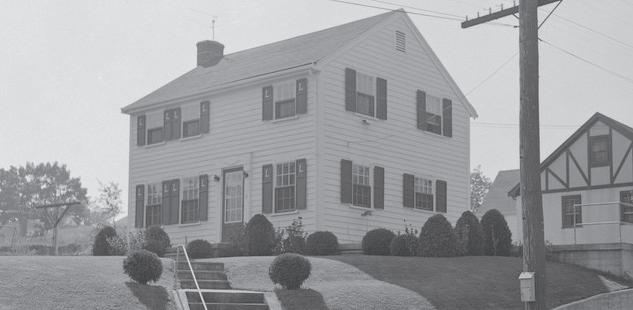
Acell phone at the far edge of the kitchen counter buzzes. She hadn’t noticed her mom’s phone there before, but Alison reflexively scans the message: 315 Lincoln Street, and the number 2034. There’s a picture of the house with the Coldwell Banker sign in front of it. It’s from Sean, one of her mom’s fellow realtors who walks without moving his arms. Kind of like Frankenstein. No need to decipher the message; a new house is on the market and it’s the code for the lockbox so her mom can show the place. Alison pauses momentarily and snaps a photo of the message with her phone. This could be useful.
As a senior in high school, she doesn’t have class until second period today. She craves a bagel smothered with cream cheese, but she’s watching her figure, even with a body made for Instagram. Instead, Alison opens the fridge and pops open a Greek yogurt so cold her teeth vibrate. On her way to school, she Googles the Lincoln Street location on her phone. It’s only two miles away in an up-and-coming part of town. She types out a text message to Todd, her boyfriend: I’ll pick u up after 7th period—b4 baseball practice.
Todd is the star of the team. He’s pretty much the star of everything: basketball and football captain, class president, homecoming king, merit scholar, blah blah blah. The real reason he’s a star? Endless stamina!
What’s up? Todd replies. It’s a surprise!
Alison has a bad case of senioritis and the school day drones on. Her mind drifts to the daily drama with her mother. All the other moms are called Mrs. Jones or Mrs. Smith, and Alison’s mom wants to be called “Brie,” as if she’s part of her daughter’s posse.
Alison replays in her mind this morning’s episode of The Brie Show.
“And what’s that you’re wearing?” her mom had asked.
Alison’s mini is as snug as Saran Wrap. “Mom, my dress complies with the school’s dress code and is one inch below mid-thigh.”
“Well, it doesn’t comply with my dress code,” her mother retorts. “Can you at least wear an outfit that leaves something to the imagination?”
Alison rinses out the yogurt container and drops it in the recycling. “You’d have me wear XL sweatpants and a hoodie to school every day if it were up to you. I’m not in a nunnery.”
Alison is suddenly flustered by a scary vision of her mom as Mother Superior. She snaps out of it when her AP English teacher prods her with a question about the meaning of Crime and Punishment.
The highlight of third period is getting a text from her dad: Love you, Ali with a big heart next to it. She misses her father, away on a threenight work retreat. He’s the calming presence in the household and tries to keep her mother in check. She taps out, Luv u 2, Dad followed by multiple hearts.
By fifth period, Alison squirms over her plan for Todd, but another memory of her mom from this morning intrudes.
“One last thing,” her mother had said. “Please empty the dishwasher.”
Despite emptying the dishwasher daily on her own, she always finds a morning note from her mother reminding her. She thinks her mom has some kooky fetish about clean melamine dishware.
Getting out the door to school with her mom hovering is the hardest part of the day. How is it you can love and hate your mom at the same time? Alison doesn’t remember how far back it goes, but something changed. In elementary school, they put puzzles together and laughed while chocolate chip cookies baked in the oven. Puberty galloped in on horseback. Not her fault! What did her mom think was going to happen? Did a weird maternal jealousy kick in with her mom feeling left out? Mom evolved into “Brie.” It was like the subtle drifting apart of tectonic plates she learned about in Ms. Lowenstein’s geography class. Whole continents splitting in slow motion. Boys stepping out of a crack in the Earth and turning her world upside down.
Seventh period takes longer than Godot to arrive. Alison barely Lincoln Street - Ken Post
The Opiate, Summer Vol. 42
contains herself. The bell rings and she rushes to her Camry.
She spies Todd schlepping a bag of baseball bats out to the diamond. Alison honks the horn, prompting him to drop the bag in the dugout and trot over. Todd tosses his glove onto the floor, gets in and gives her a thigh squeeze, sending a shiver up her spine.
“Where to? What’s all this about?” Todd asks.
“You’ll see.”
“Her mind drifts to the daily drama with her mother. All the other moms are called Mrs. Jones or Mrs. Smith, and Alison’s mom wants to be called ‘Brie,’ as if she’s part of her daughter’s posse.”
He views the address on Google Maps and follows it until the car passes the destination and it chirps, “Recalculating.”
“Hey, you missed the place. What’s going on?”
“Just a precaution.” Alison parks around the corner. “C’mon, we’ll walk to it.”
Todd spies the Coldwell Banker sign in the yard. “Now, I’m really confused.”
“Let me enlighten you.” Alison slides her arm in his and escorts him to the front door.
“Are you buying this place?”
Alison shakes her head, and punches in the code: 2034.
They step inside and she closes the door. Whew!
“What’s the plan?”
How can the smartest guy in school ask so many stupid questions? She holds Todd’s hands in hers. “I have this fantasy.”
Todd squints at her. “Okay...like, what kind?”
She leads him up the stairwell, knowing exactly where the
Lincoln Street - Ken Post
nicely staged bedroom is after scanning the floor plan and images on the Coldwell Banker website. “You’ll find out upstairs.”
“Oh, now I’m starting to get it.”
They stop at the foot of the bed. “I’ve always wanted to have sex in a house for sale.” She senses Todd is not totally on board with this.
“Is this legal? I mean, there must be a law against this.”
“There is no law, Todd. I didn’t exactly check, but I’m pretty sure it’s legal. Maybe not cool or morally correct, but it’s legal.” She reaches into her purse and tosses two condoms on the bed. “Doubleheader this afternoon?” She moves closer, eases her hand down the outside of his pants toward his crotch and feels his stiffening. A flush of heat builds in her. This beats chocolate chip cookies and baseball.
They have crossed the threshold of doubt and she removes Todd’s shirt. He unzips her dress, peels it off and lets it fall at Alison’s feet—any reservation he had is gone like one of his home runs arcing over the fence.
The front door opens downstairs and a familiar voice assures, “Don’t worry, I promise nobody is going to show up.”
Whaaa—? In her bra and thong, Alison tiptoes to the bedroom door and peers over the banister. Her hand covers a gasp; it’s Mom and a client. She turns to Todd, places a finger over her lips and points to the closet.
Todd mouths, “Who is it?”
Alison mouths back, “My mom.” Then, “Fuck.” She gestures for them to pick up their scattered clothes on the bed and floor, then motions for Todd to come with her through the louvered door of the walk-in closet. Before she joins him, Alison smooths the bed cover, thankful they hadn’t gone any further.
From the entry her mom says, “Did you hear something?”
The client mutters, “Uh-uh.”
There is no time to get dressed, so Alison and Todd slip into the closet and lie on the carpeted floor.
Alison points to the phone in her hand, turns it off and gestures for Todd to do the same. The last thing they need is the sound of a text reverberating from inside the closet. If her mom catches her, she’ll be grounded for life. Not even Dad could save her from this misadventure.
As she lies there, memories pour through mental spillways about playing hide and seek with her parents: hiding in closets and under beds. They would call out, “Where are you, Alison? I know you’re here somewhere.” Footsteps ascend the stairwell and they’re in the bedroom now as Alison makes out fragmented images from light slipping through a thin gap of the door’s slats. Todd is immobile and has covered his head in his arms like her cat does when it wants to shut the world out.
The Opiate, Summer Vol. 42
Alison’s mom says, “We don’t have much time.”
The client urges, “Let’s make the most of it.”
The voice is definitely not Sean, her fellow realtor who sent the morning text message. So, who is it? There is a rustling sound and light moaning. A piece of clothing drops to the floor. Wait a second, what kind of client is this?
A rising tempo of moans fills the room. Between thrusts, Alison shifts from cringing to searing hatred. Her poor dad is at a work retreat while his wife is getting banged by Mr. X in a house she’s “showing.”
A cacophony of grunts, wails and squeals crescendos, then fades to whimpers and labored breathing. Alison chokes down the bile rising in her throat. She is trapped in this nightmare.
Her mom is the first to speak. “We should get going.”
“Oh man, that was incredible,” Mr. X muses.
Several seconds go by with a rustling on the bed. The last thing Alison needs to learn is her mom is a total vixen between the sheets.
Alison prays this pathetic coupling is over. She wishes she could enter a time machine and had never set foot inside 315 Lincoln.
Her mom’s sense of orderliness kicks in. “Let’s straighten up.”
Alison hears the bedspread shifting and can make out clothes being picked up from the floor.
Mr. X asks, “Got everything?”
“I think so,” Alison’s mom answers.
They pad downstairs and pause in the entry. More words she can’t decipher. A cloud lifts; she’s been in the eye of a hurricane and avoided all the damage—at least the immediate wreckage. She doesn’t dare move and signals to Todd, who has peeped out from under his arms, not to stir. One false step and they could be back in the whirlwind.
The front door opens and closes. A car starts and drives away. Alison opens the closet door slowly as if the Boogie Man—her childhood nemesis—might burst in. Tiptoeing to the window, she peers through the blinds and gives an “all clear” sign to Todd. Alison slumps down on the carpet, her back to the wall, realizing how chilled she is after being half-naked on the floor for what seemed like eternity.
“Oh, my God. That was horrible,” Alison cries. Tears drop into her bra.
Todd sits beside Alison on the floor and puts his arm around her. “I’m sorry you had to witness that.” His hard-on is long gone.
“I’m glad I could barely see what happened,” Alison sniffles. “Hearing it was bad enough.” She puts her dress on over her head and shimmies it into place. “I’m freezing. Let’s get out of here.” She tosses Todd’s clothes to him and they skulk out of the house and back to her car.
Todd looks as if he has shellshock. “I don’t know if I want to go to baseball practice after what happened back there.”
“I might have PTSD for the rest of my life,” Alison echoes. She wishes she was a thousand miles away, in a college dorm room far from her mother. Alison steers the car back toward the school baseball diamond, each alone with their thoughts.
When Todd finally speaks again, he makes the mistake of saying, “I guess I can see a certain symmetry in it.”
“What do you mean?” Alison shoots him a quizzical look.
“Well,” Todd flips the visor down to cut the glare. “You and your mom think alike. You wanted to have sex at the house and so did she.”
“Does it make me the same as my mom?” Alison grows alarmed.
“And you’re both hot,” Todd says.
“Wait a sec.” Alison feels her sweat on the steering wheel. “Are you saying you’ve checked out my mom?”
“Uh, not me—but a bunch of the guys think Brie is a MILF.”
Come to think of it, Alison has seen her male friends giving her mother that “look.” Alison has always had a jealous streak about her mom and now her mother’s hotness is getting flung in her face like a wet towel.
“That’s disgusting! I am not my mother!” Alison yells.
“You have the same temperament.” Todd replies in a calm tone. “You always complain how she goes off the rails over anything.”
Where is this all coming from? Has Todd been quietly analyzing every move Alison makes and each sentence she utters, and comparing them to her mother?
Alison jerks the car onto the shoulder and shoves the car into park so hard she almost busts the gearshift. “What the fuck? All of a sudden, you’re turning into Freud on me?”
“See?” Todd defends. “You’re doing it now.”
“Get out!”
Todd tries to exit, but the door is locked.
Alison stabs the unlock button and it clicks open. “Out!”
He is standing on the side of the road. “You’re just like your mother. Always trying to control the narrative.” Todd pushes the door shut.
She rolls down the passenger side window, heaves his baseball glove at him—hitting him in the midsection—and speeds away.
Alison pulls into her driveway and just sits in the car, more alone than ever. Home is a different place from what it was this morning. She’d prefer not to go in, but has nowhere else to go. Though her phone pings several times, she ignores it. Her mom’s incessant reminder, Make good
The Opiate, Summer Vol. 42
choices, rings in her ears. Alison’s adhered to that mantra—mostly—but her decision to go to Lincoln Steet will haunt her forever. Couldn’t her mother spring for a hotel? If only Alison had come home to crank out the AP English essay or hung out at a coffee shop with Todd solving differential equations. She shudders thinking about her mom’s illicit sex life. Was Lincoln Street a one-time hookup or is she a nympho using real estate listings for kinky trysts? Nobody wants to know, and certainly not witness it. Poor Todd! He is an innocent bystander in the family car wreck. She’s not sure she can look him in the eye again. All he has to do is tell one person and it could ignite an out-of-control social media wildfire. Maybe she shouldn’t have abandoned him on the side of the road—that didn’t help her cause.
Alison’s untethered. Everything that’s happened before is a past life and unconnected to events about to unfold. She wishes Todd was here to help sort through this to keep her from tearing her hair out. Alison longs for a normal relationship with her mom. A more grownup version of the way things used to be: talking about life and dreams with the popcorn stuttering in the microwave, and snuggling on the sofa watching TV like her friends’ moms do. No trust issues. No first name “Brie” bullshit—just Mom. Dad is coming home tomorrow and she may break down sobbing when he walks through the door. How does she explain the tears? None of this should fall on her; her mother needs to dig herself out of this hole with Dad. One thing is for sure: she does not want to be in the house for that reveal. What if her mother never tells him? Does that make Alison complicit in this mess?
She steps into the house, feels its coolness and familiar smells, and sees the note on the counter: “Please empty the dishwasher. Love, Mom.” Alison crumples the note and drops it to the floor.
Right, the dishwasher. Alison opens it, and the gleaming array of plates, bowls and cups are lined up like soldiers. She picks a glistening plate out of the rack and her reflection reveals a striking resemblance to her mother. Heat rises to her face, a fuse burning. Alison frisbees the plate across the living room and it shatters against the wall. The crack! is so pleasurable that she windmills more plates at the wall until shards scatter across the carpet.
Alison is depleted and breathless, and a penetrating hunger edges in. She opens the refrigerator and pulls out a bagel and cream cheese. The bagel’s crusty exterior and the cream cheese’s luxuriant smoothness send her taste buds into overload. She’s never enjoyed a bagel more.
Conversations With the Cardinal
Salvatore Difalco
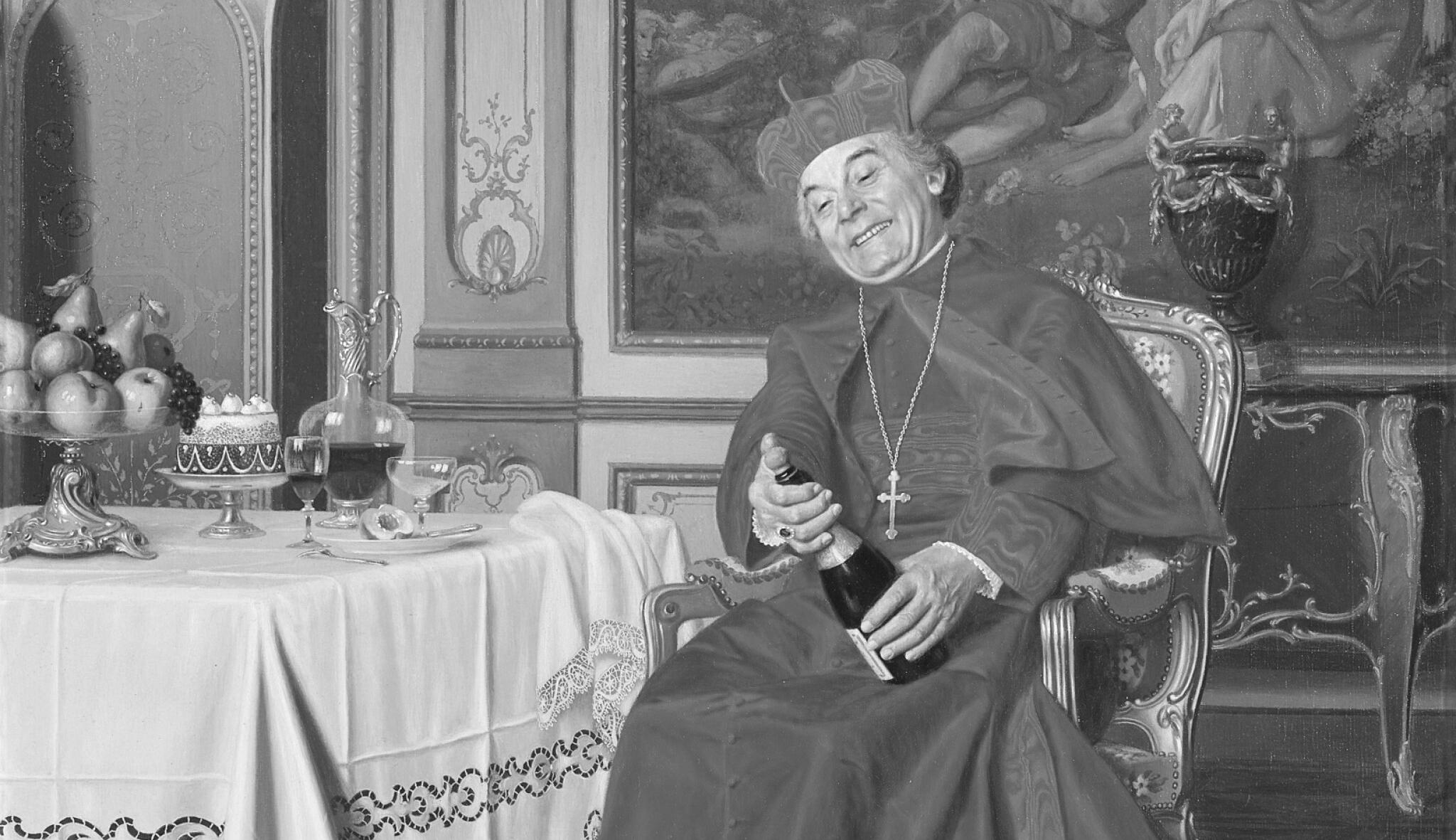
Istared at the The Catholic Register’s webpage on cardinals with an unnatural degree of scrolling intensity, impressed with the aesthetics and specific vestments that comprised a Roman Catholic cardinal’s uniform: the scarlet cassock, mozzetta, zucchetto and biretta, and the contrastingly delicate white lace rochet. Pretty sharp and, of course, classic. Then there was the flamboyant simar, worn for non-liturgical functions—black with scarlet piping, silk stitching and buttons. Eye-catching, perhaps a little over the top. Cardinals also had the option of donning an outlandish scarlet silk cape called the ferraiuolo when they were out and about, something that brought to mind Gary Oldman’s get-up in Dracula.
Let me explain. Not only had I recently seen the movie Conclave, which I enjoyed with some reservations, but, improbably enough, my old college roommate, Constantine “Connie” Gentile, had just been promoted from archbishop of Toronto—preposterous in and of itself—to cardinal, one of only five Canadians to hold that title, and the youngest. I could have never imagined or foreseen this when we were kicking around in college, though Connie had always possessed an ineradicable streak of piety, and never let the disinhibitions of campus
The Opiate, Summer Vol. 42
fog his moral compass. That said, he was no angel. Though certainly more of an angel and more suited to the holy life than I was—but he never judged or rebuked me for my moral failings, never preached and, over time, proved to be an excellent roommate, friend and confidant. This was back at St. Michael’s College, three decades ago, when my aspirations of joining the Basilian Fathers of Toronto were extinguished by a deluge of affable co-eds and recreational drugs, not to mention inescapable intellectual doubts about the entire religious enterprise. The idea of being a priest grew remote to me if not repugnant—to the relief of my religious but pragmatic mother, who’d long seen the writing on the wall and had gently dissuaded me from pursuing the priesthood. She suspected correctly that I wasn’t cut out for the celibate, sober life. And I won’t impugn Connie’s reputation by stating that, while he’d never put a sock over the doorknob during our time together, he didn’t mind the occasional beer or a few tokes before launching into deep, meandering and ultimately forgettable— and forgotten—monologues about St. Augustine, Thomas Aquinas or Martin Luther. Or when he really got into it, waxing blottoeloquent all night into the early morning on an encyclopedia of subjects: existentialism, chess, quantum physics, cosmology and music, particularly jazz. A big Miles Davis devotee, he’d introduced me to Birth of the Cool and Kind of Blue and sparked my enduring love of jazz music.
Our conversations back then were intimate and far-ranging— at times silly or ridiculous—and yes, we both discussed the state of our faith and the condition of our souls and the direction we wanted to take with our lives. I found Connie’s almost serene certainty intimidating if not enviable, while I held my usual theological and practical doubts, admitting I’d been reading too many modernists, too much Nietzsche and Schopenhauer. At my core, I didn’t think a sexless Basilian life was for me. “Weren’t we put on this earth to propagate?” I’d argue. “To swell the number of worshippers and thus raise the praise decibel?” Connie would dismiss my jabs with a wave of his hand or a smirk. And need I mention his prowess at the poker table? Old-school grinders would’ve called Connie a card sharp. But he was more like a poker savant. So much of his winning seemed offhand, almost accidental. He could never articulate his poker strategy except to say he played by feel. “I go by my gut, Sammy. I don’t look for an opponent’s tells as such, no. I intuit the state of his soul. This tells me everything.” Don’t know if he was winging that nonsense to rationalize his supernatural luck, but I never saw him lose money at a game. Indeed, I often thought he was taking it easy on the rest of us.
Conversations With the Cardinal - Salvatore Difalco
His current handlers might well have disputed this—these decades-old and somewhat sordid details—but I doubted Connie would deny me were I to confidentially refresh his memory. Not that I wanted to scandalize the cardinal by suggesting that he had been a jazz-gorging gambler and stoner-existentialist in his past life. He was not. But as mentioned, he was no angel. Speaking of whom, wouldn’t it be incredible to touch base with him now? Wouldn’t that be something? To reach out to his people or whatever and say, “I’m Sammy D—,
“...Connie had always possessed an ineradicable streak of piety, and never let the disinhibitions of campus fog his moral compass. That said, he was no angel.”
Cardinal Constantine’s old college roommate, and I’d like to request an audience with His Eminence.” But I hadn’t talked to Connie in over thirty years.
That’s how it goes sometimes with old friends and college roommates. You part ways at some point in the journey, drawn in different directions, to different destinies, often on good terms, on promising terms. We’ll keep in touch. We’ll always be bros. I’ll call you. You’ll be best man at my wedding. I’ll write you. Then the course of our unique paths leads us so far away from each other physically and emotionally that we lose touch. Time passes with the vertiginous pace it does and old friends dwindle into tiny flickering dots and finally become empty spaces in your life, lacunae. Why didn’t I try to track Connie down earlier? Well, he had made no such effort. And he was the holy guy. Maybe he’d thought so little of me over the years that a reunion never
The Opiate, Summer Vol. 42
occurred to him.
But there it was. Constantine Gentile, cardinal. Now in line for the papacy. In line for the friggin’ papacy. The thought made my head spin. To think that we were once roommates, had smoked joints together and had shared our most intimate ideas and thoughts. Not that I desired anything more than friendship from him—though a connection with a cardinal couldn’t be all bad. I’d never enjoyed the blessing of connections, despite my Sicilian heritage. Perhaps my life would’ve turned out more favorably had I never lost touch with Connie.
I tracked down the telephone number of the information officer at the Archdiocese of Toronto, a Monsignor Maurizio Fabbro, and called him. It went straight to voicemail, and I explained how I was an old college roommate of the cardinal interested in speaking to him if he could spare a few minutes. We’d lost touch over the years and I hoped to reconnect. I’d be obliged if the monsignor could provide a contact number or name, thank you so much.
A week passed and, frankly, I forgot about Connie. My divorce papers had just arrived and all I had to do was sign them and mail them back to the lawyer—it was uncontested with no children and zero assets to divide. But I dreaded rehashing things, not because I wanted to delay or challenge the proceedings—I simply didn’t want to be reminded of the twenty-year fiasco that was my marriage. I didn’t necessarily hate my ex, I’d never hated her. But it had not been a happy marriage and, looking back, I was to blame as much as anyone for its failure. My ex was not a good wife, but I was as terrible a husband as I was a writer and a businessman. When she finally cheated on me, with big Jim Torrence, a bearded neighbor fond of flannel, I couldn’t blame her. I hadn’t touched her in months, and couldn’t quiet my demons. But all this was stuff I’d put out of my head for a healthy length of time, and I dreaded facing it again.
A few days later, someone from the archbishop’s office called— presumably Monsignor Maurizio Fabbro, though he never identified himself—and instructed me to go to Café Diplomatico, in Toronto’s Little Italy, if possible, tomorrow morning at ten, where I’d be granted an hour’s audience with the cardinal.
“You’re kidding.”
“I’m not kidding. The cardinal will be there. Please tell no one about this. We’d like as little fanfare as possible, though it’s unlikely many people will recognize the cardinal.”
“Will he be in street clothes?” I asked.
“What?” the man asked, and abruptly hung up.
Café Diplomatico? I smiled. One of our old haunts. While the
rest of Little Italy had lost its gusto over the years, the Diplomatico persisted. Reuniting with Connie under the current circumstances— given my sorry condition and his veritable apotheosis—evoked mixed feelings. I glanced at an old photo of us snapped during the Canadian National Exhibition one summer in the 1990s. Dressed in a salmoncolored Lacoste shirt, I looked fit and happy—and I can’t recall if either was really true. I was smoking too much weed and popping too many pills to be considered in any way fit, and I may have been smiling or stoned, but was I happy? I don’t recall ever being as happy as I looked in this photo. But perhaps at that moment, under the blue skies of a summer day, next to the crisp waters of Lake Ontario, with all the carnivalesque fanfare around me, I was happy. Connie, on the other hand, dark-haired and heavy-browed, looked serious, almost grim. He was wearing a white button-down shirt that gave him the aspect of a Mormon missionary, though one with menacing airs. I didn’t recall this quality about him. I thought about the photo for the rest of the day.
I arrived at Café Diplomatico at nine-thirty the next morning and grabbed a table near the front windows with a perfect street view. A waft of espresso and burnt toast teased my nostrils as I looked out. A mild late winter day, sunlit with blue skies, people walked about minus hats and scarves, shoulders loose for a change. A few customers sat at tables nursing coffees, eating breakfast or sharing a soft conversation with a companion or two. The waiter, boasting superbly angular sideburns, took my latte order and ambled to the beehived barista levering the candy-red Faema machine, a woman who’d been working there since the Clinton administration. I hadn’t visited the neighborhood for at least five years. You were more likely to see a burrito shop or a sushi joint than a pizzeria or a pasticceria. Few Italians remained. Indeed, except for the Tony Bennett soundtrack, the Diplomatico’s familiar tricolor touches and a Forza Azzurri! poster or two, I felt like the most Italian thing there.
I’d wanted to give Connie a gift. A bottle of wine or scotch seemed presumptuous. And who knows what he stacked on his bookshelf now that he was a cardinal? I’d rummaged through my flat and actually found, still wrapped, a black t-shirt with a distressed gray MILES and trumpet logo stamped across the chest. My sister had brought it back to me from an Amsterdam trip a year ago. I thought it would bring a smile to Connie’s face, even if he never wore it.
My latte arrived. I sipped it and smiled, recalling a minor
The Opiate, Summer Vol. 42
scrape I once had with a raging drunk who stood a foot taller than me. If not for Connie, who somehow calmed the brute, I would’ve gotten my ass kicked. Back then, I had a penchant for getting into beefs, especially if I’d been drinking. I wouldn’t hesitate to put hands on someone who offended me, even if they towered over me. Luckily, I often had Connie at my side. He could disarm anyone. He had the gift. Also, as a solid two-hundred pounder with a steely manner, he didn’t look like someone to test. If not for him, I’d have likely wound up in jail
“I hadn’t visited the neighborhood for at least five years. You were more likely to see a burrito shop or a sushi joint than a pizzeria or a pasticceria. Few Italians remained. Indeed, except for the Tony Bennett soundtrack, the Diplomatico’s familiar tricolor touches and a Forza Azzurri! poster or two, I felt like the most Italian thing there.”
more than once. In the midst of my reveries, a streetcar clanged by, an iconic and warming fixture on College Street. One of the few things I really liked about Toronto.
Moments later, a long, black limousine stopped in front of the Diplomatico. A tall, bald man in aviator shades, encased in a black turtleneck, sleek black suit and black gloves, climbed out of the driver’s side and strode around to the passenger’s side facing the cafe. He opened the door, stood aside and out stepped a man in a fitted black wool overcoat and designer sunglasses, his jet-black hair glistening in the sunlight, shoes shining.
He briskly entered the café, removed his sunglasses and grinned as he approached me, right hand extended. Except for what looked like an ecclesiastical gold and sapphire ring on his ring finger, nothing in
his appearance or costume suggested cardinal. He could have been a business executive, or a mob boss. I ignored his hand and leaned over to hug him. He hesitated for a beat, but then conceded to the embrace. It felt good to see my old friend again. A lump rose in my throat as my emotions swelled.
“Sammy,” he said, leaning back and holding my arms as if to regard me fully. “How long has it been, my friend?” I struggled to speak.
“Too long, right?” he answered for me, chuckling and removing his coat. “Come on, sit down.”
He sat across from me, carefully folding and draping his coat over the back of the chair beside his. He had on a tailored navy suit, white shirt and a burgundy tie pinned with a tiny gold crucifix. I had to stare at my hands and gather myself before I could look him in the face.
We sat in silence for a long moment, perhaps each of us searching for the best or least awkward thing to say.
“Sammy,” he said at last. “It’s really you. Ha. Never thought I’d see you again. Tell me. Tell me everything.”
“All I can say is don’t forget about me when you become pope, Connie. Maybe you can score me a gig writing speeches or press releases. You know I have a way with words.”
After a pause, we both burst out laughing. Yeah, it was Connie all right. His dark brown eyes squinted with amusement.
“What is this?” I said, opening my hands.
Connie smiled and shook his head. “I know, I know. It all feels like an impossible dream. But it is a reality. I won’t say I haven’t worked hard to make it so, but I still have to pinch myself now and then.”
“It’s what you really wanted?”
“It’s what I was called to do,” he replied, glancing up quickly. He clasped his hands together and leaned forward. His fingernails were immaculately manicured and glossed, his closely-shaven face smooth and free of blemishes and his eyebrows well-plucked. He smelled good, too. He smelled wonderful.
“I’m surprised you didn’t show up in your choir cassock, or your ferraiuolo. Are you cats allowed to go around dressed as civilians— or like junior John Gottis?”
Connie covered his mouth with his hand as he laughed. “So you studied up the lingo, eh? That’s good. That’s fun, yeah. But seriously— imagine if I went around in full vestments.”
I surveyed the café to see if anyone had noticed him. Maybe a decade ago, someone would have shot to their feet and pointed out
the cardinal, but it seemed that, on this day, even had he worn his full vestments, no one would’ve batted an eyelash. Sitting across from him in my tired gray fleece and faded blue jeans, I presented a shabby contrast to his continental panache. Perhaps reconnecting with him had been a mistake. He was riding a much higher, richer horse.
“So how are you, really?” he asked, hands folded before him with sincerity.
“I’m alive,” I said. “Alive.”
“Do I detect a lugubrious note there? Your mother?”
“She passed a few years ago. Dementia. Your folks?”
“Still hanging in there, God bless them. They still live in East York, the little yellow house. Pops still drives, ha.”
“Tell them I say hi.”
“I will.” He turned and held up his right hand.
Shortly, the waiter appeared. “How can I help you gentlemen?”
“An espresso corretto,” Connie answered.
“I’m good.”
“Have a shot of something,” Connie insisted.
“At this time of day?”
“Have a brandy.” He turned to the waiter and added, “And two snifters of your best brandy.”
“Really? We have some Camus XO.”
“Did you hear that?” Connie nudged with a broad grin. “Camus XO, ha. How fitting. How absolutely fitting.”
“You pushing some sacral black plastic these days?” I quipped.
“Sammy, I have no problem enjoying the fruits of this life. They exist to be enjoyed. Do I feel guilty that others cannot? I do not feel guilty. Do I wish others would enjoy them? I do. And I endeavor to improve lives so that the fruits God has granted us may be enjoyed by all. And sorry to drop the big guy into the conversation. Don’t know how you feel about God and all that these days. You’d become rather enthusiastically agnostic, as I recall. Forgive me then, but please remember and respect who I am right now, and what I represent.”
“No need to apologize, Connie. I’m cool.”
The waiter brought the espresso corretto and two brandies. We clinked snifters and sipped the brandy. A bubble of slightly nauseating warmth burst in my chest. I inhaled and felt my shoulders slacken.
“Not bad,” Connie decided, holding up the snifter as if uncertain of the amber liquid’s quality. “Not great, but not bad. Albert might or might not have been impressed.” He smiled and sipped again. “So, Sammy, tell me. Married? Children?”
“My divorce papers just arrived.” I sighed. “Didn’t work out.
No kids.”
“I take it you weren’t married in a Catholic church?”
“No. The wife’s a Buddhist.”
Connie nodded and studied me for a moment before saying, “You were going to write novels and travel and so on. Have you written any novels?”
“Yeah,” I confirmed without elaborating. Three unpublished novels. Were they any good? Probably not. I glanced outside and the chauffeur stood by the limousine glaring into the café. Connie smiled when I looked at him, as if to say, Yeah, that too is pretty weird, but here we are. Then I started on about the horror show of my life, about my wife and that disaster, and how my biggest regret next to being a failure was being childless. My investments in several local restaurants went up in smoke during Covid, as did my Bitcoin venture. Everything I’d touched in this life had turned to shit. And at my age, it was too late to start over, wipe the slate clean and rebrand or reinvent myself. The chalk had long penetrated the very pores of the slate.
Connie discreetly glanced at his watch—a jade Zannetti Discobolo, if I wasn't not mistaken. I used to fetishize Italian watches beyond my reach. That about summarizes me. Good taste, zero capital. Figuring he was pressed for time, I handed Connie the wrapped t-shirt.
“For me?”
“Little reminder of the past.”
He pulled the t-shirt out of the wrapper and lifted it by the shoulders. He shook his head and smiled. “I’m touched. You went out and found this for me.”
“Actually, my sister brought it back for me from Amsterdam, but I never wore it. I think it was destined for you.”
“Well, thanks, in any case. I love it.”
“Do you still listen to jazz?”
He smiled thinly. “You know, I listen less and less to jazz these days. I know, I know. Sacrilege! But it’s become too busy for my ears. I’ve taken a great liking to Albinoni.”
“Of course you have.” I chuckled. “Are you even allowed to wear the t-shirt?”
“At some point, I will wear it, promise.”
We both fell silent. So much I wanted to say, but couldn’t. I don’t know why. I had the vague feeling that Connie, a friend who I thought had never judged me, who had accepted me as I was, viewed me in a different light now, and perhaps that should have been expected.
“Another brandy?” he asked.
“One’s good. Gave me a little buzz.” Conversations With the Cardinal - Salvatore Difalco
“Still using drugs, Sammy?”
“You mean, other than the prescribed ones, like my Citalopram, Bisoprolol and Tamsulosin, which I cannot live without? Well, I do smoke weed and eat the occasional edible, as you might suspect, now that it’s legal. I’m not good with booze, as you know.”
“What do you mean, as you know?”
“Look, Connie, I understand we live in different worlds now, but we were close once. We shared a lot of shit back then, experienced a lot of stuff together. And I value that bond we had. It meant a lot to me. And it hurt that you never reached out.”
“And I’m appreciative of those formative years, Sammy. I’d not have become who I am without them. They helped galvanize my desire to be a priest and to seek the life I am living. You helped with that. Perhaps inadvertently. You were one of the smartest people I’d ever met. You taught me so much. But you were also self-destructive, slothful, libidinous. Why didn’t I reach out? I didn’t want to, Sammy. You were not a good influence. You made me doubt myself and doubt my faith—mainly because you never had faith in yourself. It’s contagious, that doubt. And frankly, I’m not surprised your marriage failed. I know none of the details, but I can only imagine how you behaved and how you treated your wife, if past is prelude.”
I felt as though he’d reached into my chest and squashed my heart and lungs. I sat there reeling. Then I heard a tap at the window glass. Connie’s driver. Connie nodded to him.
“Look Sammy, I love you like a brother. And you were and are important to me. But in this life you can be a sinner, and like yourself sin strongly, or more strongly have faith and rejoice in Jesus Christ, and that is and has been my position. I’ve been faithful to myself—and my vocation. Could you say the same? You, who’d been blessed by God with so many gifts? But I didn’t come here to cast aspersions. I merely came here to tell you that I’m glad you’re alive, and even glad we connected. But I don’t think another meeting will ever be possible. And I think you should keep your memories of the past, our past, such as they are, to yourself. No one wants to hear it, Sammy—coming from someone like you—no one that matters anyway. Do we understand each other?”
A streetcar passed and I turned to watch it rumble out of view. Connie’s driver was staring at me. I wondered if he was strapped.
“Sammy?”
“Don’t worry about it, Cardinal Gentile. My lips are sealed. No one’ll ever know about your dark past.” I laughed.
“What’s so funny, Sammy?”
Conversations With the Cardinal - Salvatore Difalco
“You are, bro. You’re funny.”
“That’s it?”
“That’s it. Might as well jet. Your goon’s getting antsy.”
“I’ll pray for your soul, Sammy.”
“Send me a postcard from the Vatican,” I muttered under my breath.
“Sitting across from him in my tired gray fleece and faded blue jeans, I presented a shab- by contrast to his continental panache. Perhaps reconnect- ing with him had been a mis- take. He was riding a much higher, richer horse.”
With that, Connie grabbed his coat and exited the cafe without putting it on. He walked to the limousine and, with a nod, the driver opened the passenger door for him and he climbed in without looking back.
I sat there for a long while. When I requested the check, the waiter said it had already been handled, which surprised me, having witnessed no transaction. Probably prearranged. Connie had that kind of clout. Good for him, I thought. Good for you, Connie, You did good. You reached the highest pinnacle and, for that, you should be commended. As I rose to leave, I noticed Connie had left the Miles t-shirt behind. I stared at it for a moment. Then I sat down again.
*Note: this story first appeared online via Eclectica Magazine
NONFICTION
I’m Supposed to Smile as if God Knew That I Would be Troubled
Renshaw
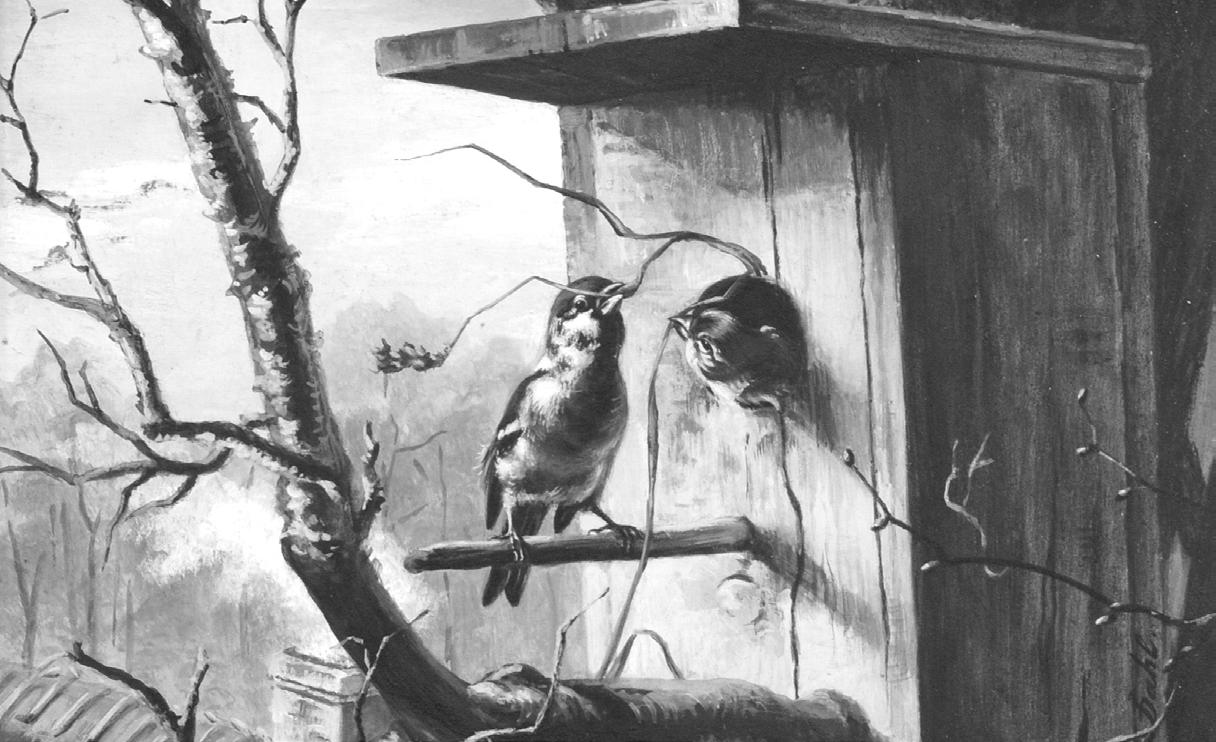
There is a birdhouse, basic in its construction, painted a bright lemon-yellow, purchased from Michael’s with the sort of creative ambition that seemed brilliant in the moment, but quickly faded. After the snowstorms, fierce and unexpected, the little tree outside my bedroom window lost several branches. Yard workers came, wielding their indifferent saws, and lopped off even more—branches that had once held firm against the fickle whims of nature, until that instant. The tree, it seemed, had borne the brunt of so much, and now it looked as if it had been quietly abandoned.
I had meant for the birdhouse to help, or so I told myself. To heal the tree’s wounds, symbolically, by offering something back: homes for birds, little acts of penance hung like ornaments. A gesture of repair. Noble, though hardly original, as I have since learned. But attaching the houses proved to be harder than I’d imagined. I’m not, by nature, a person inclined to physical labor. After wrestling a few smaller birdhouses into the nooks and hollows of the tree, I gave up. The sizable one—the lemon-yellow—was left behind, now sitting on a bookshelf in a house surrounded by trees that do their best to cure me of my own scars.
At some point, in another fleeting burst of creative effort, I
The Opiate, Summer Vol. 42
turned the birdhouse into a kind of wishing well. I’d scribble wishes on scraps of paper, folding them before letting them fall inside. It’s been a while since I’ve added anything new. Some of those wishes, I think, have come true, though I haven’t gone back to check. I’m not sure if I want to know which ones I’ve outgrown, forgotten or dismissed. I mention this because I’ve been in a melancholy funk for seven days now, and it’s been, well, sincerely disappointing. But before I get into the whys and wherefores, let me say this: just before I began
“I have a disease. A disease that doesn’t negotiate. If I don’t live strictly according to the rules—don’t stray from the list of things I must avoid, don’t inch too close to the edge—I will fall. Not figuratively, but literally, and with the very real possibility of splitting my head open once and for all. That’s the price this disease demands: a caution and a disclaimer. Stray and die.”
writing, a song came on the radio, and it sparked the faintest desire to make a wish. To write it down and tuck it into the birdhouse. A small wish, not a life-altering one, but charming in its way: someday, in some imagined future, I’d like to stand in a crowded bar and sing “Santa Baby.”
Not the way Ally sang it in Ally McBeal, though that’s not how I remembered it. No, I want to sing it the way Elaine would have sung it—fierce, breathless, absurd. A little too much, but with full conviction. That’s the wish...though, knowing me, it might be a while before I close the distance between thought and action. The birdhouse waits, my lemon-yellow bucket of desires, for whenever I get around to it. This funk, sharper and more unforgiving this time, carries
I’m Supposed to Smile as if God Knew That I Would be Troubled - Renshaw disappointment in its teeth. It’s the realization, bitter and plain, that I’ve failed. Not in some grand or unexpected way, but in a way that feels worse: I’ve forgotten my side of the deal. The promise I had made, the one I needed to keep if I wanted to hold on to what I’d quietly accepted as my par. Not good, not bad, just what was owed to me after everything.
I have a disease. A disease that doesn’t negotiate. If I don’t live strictly according to the rules—don’t stray from the list of things I must avoid, don’t inch too close to the edge—I will fall. Not figuratively, but literally, and with the very real possibility of splitting my head open once and for all. That’s the price this disease demands: a caution and a disclaimer. Stray and die.
Lately, I’ve been thinking about my living situation, how it seems to revolve around my habits, those years of default practice. Living for a future I can picture, even at the cost of the present. It’s true that I’ve come to a kind of peace with my present. It’s also true that peace feels tolerable only because of the possibility of the future—a future that aligns, more or less, with my wishes.
I’ve been thinking about solitude, too. About my need for companionship, someone to soften the edges of these days. And about how each of these realities—solitude and companionship—carries its own complications. Every time my mind lingers on companionship, I’m struck by the weight of it. The burden of how hard it would be for anyone to share this life, this disease.
Because I am not cured. I never will be. I know that now, though it breaks my heart to admit it, even after everything I’ve been told about self-love and the lessons it’s supposed to teach. I’m trying to learn, trying to live. But it’s a fragile thing, this learning, this living. Some days, it feels like balancing on the narrowest ledge, looking out at something vast and unsteady. Something not quite within reach.
When things are unsettled, but not unbearable, I turn to my sectional and the TV. A kind of middle ground, a second choice. Time spent there means I’m holding steady, treading water in whatever episode has come to visit. But when I can’t choose it—when even that small act of surrender feels beyond me—it’s a sign that things are worse than usual. Bad in a way that draws everything inward, like a hand closing too tightly around the edges of my mind.
Lately, I’ve noticed something. A sharpening of my attention when the TV is on. In recent months, I’ve become more aware of storylines that touch, however briefly or clumsily, on the subject of mental health. Or, just as often, its depletion, the slow unraveling of a character who can’t quite hold it together. It’s not that these stories
were absent before, but they seem to reach me now in a way they previously didn’t, or couldn’t. As if they’re speaking to something I’ve only recently learned to name.
I appreciate the gesture, the inclusivity, the attempt to make space for it all. I’ve always believed in the power of nakedness—the kind that doesn’t just invite acceptance, but demands it. In my experience, the surest mark of a good relationship has been that willingness to strip away pretense, to sit with the raw and the real, however uncomfortable that might be. But, I’ve also found myself dissatisfied. Watching these stories, hearing these conversations, they don’t seem to go far enough. There’s a kind of restraint, a tidiness to the way suffering is shown, as though it needs to be softened for easier consumption. I keep thinking, if we’re going to talk about pain, if we’re going to lay it bare, then let’s really lay it bare. Show the scars. The burns. The tremors that make a hand unsteady. The unkempt hair and clothes worn nine days too long. If we’re after acceptance, shouldn’t we start with the truth? Or maybe I’ve got it all wrong.
It’s all so bewildering, isn’t it? This time, especially so. The crash and burn felt more violent, more unforgiving, because it came so suddenly—like a door slammed shut before I realized I’d walked through it. There was the abruptness, the naïveté and, worst of all, the delusion of a cure.
The weapons of this particular assault were innocuous enough—a few successful dinner parties that left me feeling triumphant, a handful of missteps I barely recognized as they happened, and one ill-timed, poorly chosen conversation that tipped everything. Suddenly, I was bedridden.
All the scaffolding I’d carefully built—the rituals of hygiene, the music that lifted me, the steady and unconditional love of Leo Tolstoy (my German Shepherd-Rottweiler mix), the routines that made my surroundings feel alive—all of it crumbled. Accountability, joy, peace, the hard-won lessons I’d gathered like stones from a riverbed, even happiness itself—the kind I’d dared to believe might last—all of it faded into a dull, impenetrable gray.
The knowledge remained, like an unopened book on a shelf, but I couldn’t bring myself to reach for it. Let alone put it into practice.
And so, I sulked, though I knew better, when someone I’ve come to count on—a steady, well-appreciated presence—opted out of
a video call. Perhaps it was because it was the day after Thanksgiving, and family was all around. I told myself this, though it didn’t soothe me. In another instance, I went quiet after trying to steer back from a derailed conversation that bruised and unmoored the connection I hold most dear.
Then came the disappointments I laid at my own feet. The groceries I ordered, filled with multiple boxes of chocolates. I justified them as self-care, even as I knew the unwise indulgence betrayed the little resolve, I had to care for myself. The chocolates were both balm and bomb, but also a declaration of surrender.
I let the kitchen—the room that usually offers me solace— dissolve into disarray. Its unkempt state was both the result of my inertia and its cause. During a therapy session, I breathed out a slow, simmering rage, recounting the cruelties I saw everywhere: ungrateful guests who crowded my table but offered no seat for me at theirs during the lonely stretch of the holiday season.
I recoiled from a kind friend, a person who had been nothing but decent to me, because she didn’t follow my instructions exactly. It felt like a failure of care, hers, though in my heart I knew better. The chocolates—those small, glittering tokens of false comfort—became their own battlefield. Each one consumed brought a fleeting sweetness, followed by a sharp sting of regret.
I stopped writing. The words didn’t feel honest anymore, crowded out by a voice inside that’s never believed in me, not fully. The same voice that cuts through any shred of pride I’d managed to cobble together over the years, with its insidious whispers. What are you really doing, anyway? Who are you fooling?
It’s a voice I’ve gotten used to, familiar in its contempt. A companion of sorts, only the sort that grates on your every nerve until you can no longer tell if you’re really hearing it or if it’s just your own fragmented mind making noise. The last time I tried to answer it, my words got tangled up with something too fragile to speak aloud.
The same voice that watched my slip-ups with a satisfied grimace. I slept, but not well. The nightmares returned—old companions, nasty but reliable, swirling with their familiar violence. ***
But then something shifted, just a little. A spirit emerging, the lone survivor of a brutal seven-day siege. The sun broke through the clouds. I am back to being visibly diseased, and yet, there is something else—something standing upright within me, despite it all. A voice, soft but firm, reminding me: there’s a future here, even if it feels distant, even if it seems uncertain. Maybe that’s the trick. Not trying to control the
unraveling, but accepting it for what it is.
That’s when I looked at the birdhouse again, sitting neglected in the corner. It wasn’t about the wishes anymore, not about whether they came true or not. It was about the gesture itself—the act of remembering something beyond myself. To restore a little hope where I can, even if it’s just a tiny corner of the world.
This disease, they say, is chronic but manageable, as long as I keep to my side of the deal. That’s the contract, the terms you learn to carry with you, folded into your pocket like a note you keep reading and rereading until the ink fades. And that’s where my disappointment lies—in the stories, the ones I watch and sometimes marvel at, but which I must call out if we’re ever to be truly naked and truly accepted.
We, the diseased. We, the victims who might also be champions. Not because we are cured—because we won’t be—but because we go on anyway.
Yes, reality TV might be a swirl of smoke and mirrors, but that doesn’t erase the possibility that someone brave enough to speak about their illness might post a cheery Instagram reel one day and, the very next, seem like a different person entirely. That’s the disease: an oscillation, an up-and-down, an unpredictability. A compromise of mental health that should be seen and accepted for all its nakedness if acceptance is to mean anything at all.
Yes, the disease brings with it the possibility of extremes—an explosion, a retreat, a volatility that even the most careful management can’t always contain. But the diseased are warriors too, albeit deflated ones, patching themselves together as best they can, fighting against the worst of it.
So, let the characters we admire—Lisa Rowe from Girl, Interrupted, Randall Pearson from This Is Us, Pat Solitano from Silver Linings Playbook, Tony Johnson from After Life, Rachel Goldberg from UnREAL, Carrie Mathison from Homeland, Curtis LaForche from Take Shelter—be more than inspiration. Let them be a call to get down and dirty, to go deeper and truer. To show not just the fight but the wounds. Let them be the ones to teach us how to be naked. Fully, unflinchingly naked.
Wishing wells, solitude and companionship—when and if it comes—all thread themselves into a delicate dance with this disease, a shuffle where toes inevitably get stepped on. There will be bruises, on myself and those around me. Failures will accumulate, mine and theirs, each feeding the other. I’ll judge myself for my shortcomings and judge them for theirs. It is the cycle of this life I’m learning to bear. It feels good, though, to sit here now, with the radio humming
I’m Supposed to Smile as if God Knew That I Would be Troubled - Renshaw
softly and Leo stretched out on the rug. To sit away from the bed, that steadfast cocoon, so comforting and safe, yet a place that too easily becomes my entire world when I spiral down.
From this vantage point, I can perform a post-mortem on all that went wrong—not as an indictment, but as a reckoning. Everything that unsettles me could be managed, I think, if I remember the “must-do” list and heed the “must-not-do” list. This disease demands discipline,
“That’s the disease: an oscillation, an up-and-down, an unpredictability. A compro- mise of mental health that should be seen and accept- ed for all its nakedness if acceptance is to mean anything at all.”
a regimented maintenance of the self. But the truth is, the optimum environment it needs—the support system, the steadying presence— isn’t something I can insist others provide. It is not their burden, even if they care for me.
Still, should care not mean some accommodation? Some acknowledgment of how the unpleasant things in life derail me and of how love, in its truest form, might work toward resolving them? Was it so unreasonable to feel hurt, perhaps unreasonably so, by her refusal? I can see that it wasn’t malice, but still, it stung. And here I sit, grappling with the aftermath, trying to find a win in the mere act of acknowledging this pull—the tug of my delivery order, full of comfort and shame, the latest symptom of being bound too tightly to my home.
Wishes, desires, the yearning for nakedness—to strip away all pretense and find clarity—how do we hold it all in our hands? How do we navigate it, see it for what it is, and still carry on? It is a question
that lingers, unanswered, like so many others. But the asking of it, I tell myself, is a kind of progress. ***
The Christmas songs on the radio—tender, nostalgic and agonizing in equal measure—seem to mock me as I face a holiday season I’d once planned differently. Against my earlier hopes, this year it will be just me and Leo, one human and one dog, in this house that seems both too full and too empty at once.
The kitchen trash might pile up in its makeshift grocery bags, untouched, while I wait for the fog to lift and make me care again. Miscommunications with those I hold dear will likely persist, the bumps in the road threatening to become breaks. Maybe the chocolates will land me in the hospital, or maybe they’ll help me weather this storm long enough to find a fresh resolve, a new beginning, another chance at freedom. The bedsheets will remain untouched, the creases deepening like unspoken words. The red bucket, cradling stubbed-out Marlboros, will keep its precarious lean, threatening but never quite spilling. The bird feeder, hung with such good intentions, will stand hollow, an empty gesture toward life. Laundry will shift from dryer to basket and back again, a silent witness to the rhythm of neglect.
All of it waiting, like me, for the day when the spark returns, when the tide of willpower rises enough to conquer this quiet erosion of effort and self. The therapist will leave eventually; they always do. The medications will go on doing their work, quiet and relentless, like oxen pulling a heavy cart through the mud. But this disease will not. It will stay, relentless and familiar, as if it’s stitched into my being, woven through the fragile threads of my existence. At times like these, when the blues seep into every corner of my life, it feels as though the disease is the blood beneath my thin skin, waiting—just waiting—for the slightest provocation. A paper cut, a thorn, a blade, a stray bullet. It doesn’t matter. The cause is unforgiving, and the effect is always the same. If I haven’t fully made peace with this reality, the unshakeable affliction that holds its cautionary banner aloft, how could I ever expect anyone else to?
My ex-husband used to hurl cruel words at me during our fights. You’re a dog. You’ll never leave. And, oh, I had my own sharp words to give back. But now, as I watch Leo stretched out on the rug, his tail faintly wagging in his sleep, and as I feel the small, unexpected joy of letting him lick my face when I’ve given up holding him back, I’m struck by a truth I hadn’t grasped before. He was wrong.
It is not an insult to stay. To be loyal. To be loved. It is a blessing, a privilege, to be loved by this dog—on the good days when hope is a
whisper in the air, and on the bad ones, when the darkness waits just beyond the door. I am here—alive. Some days, the bed claims me entirely, the hours stretching long and shapeless. Other days, I manage to rise, brush my teeth, put pen to paper and feel, briefly, a flicker of possibility.
And then, there will be those rare days when the world will take on the hues of my dreams once more, as if the sky and the Earth conspired to remind me what hope looks like. I don’t know if I’ll ever go to a bar and sing “Santa Baby.” But I do know I’ll try to keep trying. Even if it’s just for a few more whimsies in and out of my yellow birdhouse.
I am not cured. But I go on. The wishing well waits for me. And I am still here, upright despite it all. Until another wish takes hold and gently stirs, perhaps I could teach myself to hum: I really do believe in you. Let’s see if you believe in me. I’m Supposed to
POETRY
Erased By a Mirror
John Tricarico
A mirror could tell you
If you bothered to listen
With an imaginative ear
It is unresponsive to existential distress
And may even react aggressively
If someone should ask: “who am I?”
To an indifferent mirror
Reduced to an outline
Filled with rotating question marks
Like unidentified flying objects
Lost in the immensity of space
They may question the mirror
Why it erased them
And if it doesn’t respond
They may decide to discard it
Left on a sidewalk
Whoever would look in the mirror
Might gasp in shock at such a reflection
Since no one would be exempt
From the mirror’s reaction
To that intolerable question
Whether asking: “who am I?” or not
It would simply suspect
They looked in the mirror for that reason
And it wouldn’t matter at all
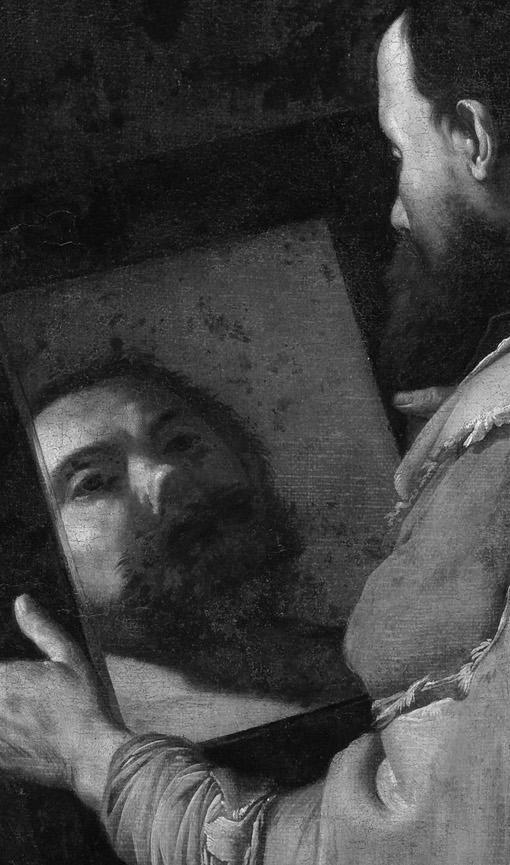
If someone armed, looking for something to shoot,
Reduced the mirror to pieces. In retaliation
The mirror would still reflect the erased shooter
Reduced to an outline
Filled with rotating question marks
In all of the pieces
Either shattered or still intact
Wherever the mirror goes
Once it is taken somewhere
Without another: “who am I?” bothering it
The mirror will rest in peace
Reflecting a perfect void
Wherever that somewhere is
À la Harpo, 1992
Priscilla Atkins
God, what’s wrong with us? What’s so goddamned funny about answering a phone.
I’m visiting—it’s your and Paul’s apartment—that’s part of it.
You’re in the same room with me. Making faces. After eyebrowraising me into answering Paul’s line. Paul, already blind, is three floors down, sunning his reed-thin body
au jardin. You explain, the renovator lined up for the master bath, Paul’s latest project, worries, phones a tad much. This city, aglow with young men
looking in on each other.
Two days in a row when Paul’s boxy Bakelite rrrrring-rrrrings your eyebrows beckon me to pick up.
Yesterday, best I could muster, “Pa-ulll’s––not––heeere––may I taaake––a mes-ssseeedge?” Today, I shoo your giggly eyes—bite my lip. What was
so funny? Under the circumstances: in less than a year Paul will be dead. Then, the young designer. You, who escape this plague
but not a slow-moving cancer, gone in twelve. I’ll tell you what’s goddamned funny: there’s no rationale––everything’s both:
“okay, Mister Death, be right with ya...soon as we polish off this ringy-dingy joke.”
Until then, we rarely lost the alchemist’s bet. Life’s daily dose of awkward remixed: ruffled hair, tour jeté, high kicks. Somebody slide down a table, pull out a horn,
polka dot hanky, brass clock. Fly like a goose: flap your arms—don’t look.
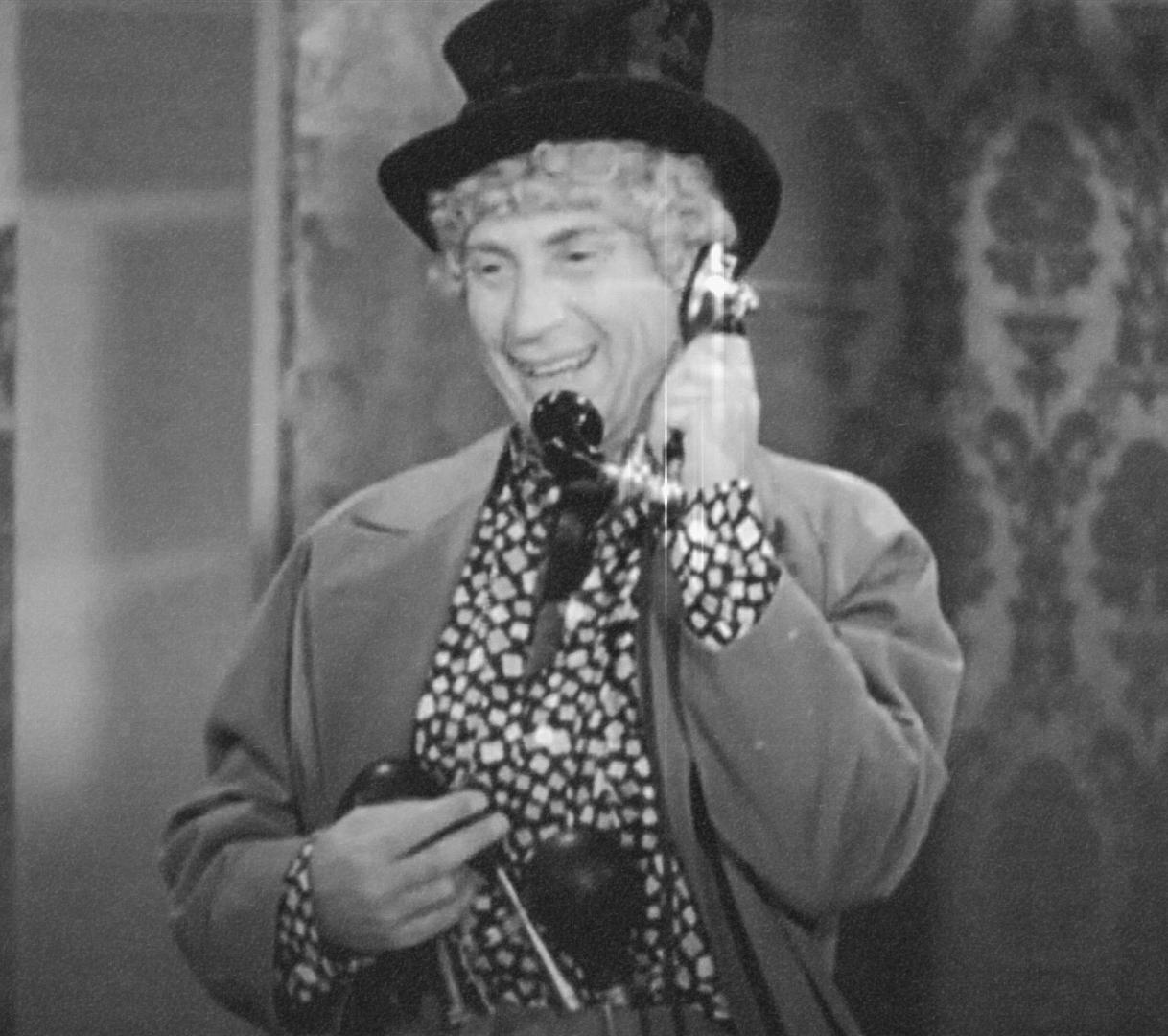
Jackie, Pat and Me
Priscilla Atkins
If you walk by me on the lookout at the lake today, you may mistake me for Jackie waiting on the North Portico of the White House for the procession of casket and horses and soldiers to begin. We have things that pain us and hold them in a faraway place. We are here and there. Part sand, part water, part air. A secret sisterhood of calm.
In truth, I am rather whimsical. Jackie also had her fun side (came out in devastating snark about this or that world leader who likely wouldn’t have been amused). But, she had her boundaries. Definitely didn’t let it all out. Jackie had a pride in her creations, her surroundings, her hair. I can’t really claim these for obvious reasons. Ahem. Yet, happy our lives touch.
My friend Pat is very much of Jackie’s ilk. Attracted to powerful men, in her teens she married an officer, and after that, the attorney general of a large, cold state. Pat makes me appreciate beauty in rows of rose, orange sherbet, boysenberry lipsticks. She takes pride in her black bob, kept dark at no small expense. A letter from Pat makes the day ripple: there are the mullion windows, panes rescued from the indignity of a barn and installed in our morning room in Montana.
*
Sometimes, I consider purchasing something small for Pat. Lydia Davis’ slender chapbook, The Cows, for instance. Tender, straight-up descriptions of three black Herefords whose slow-mo
escapades have lulled me to sleep on a long winter night. But I ask myself, “Would I buy such a gift for Jackie O?” “No.” There’s the possibility Jackie—or Pat—might assume I associate them with cattle: Jacqueline Bovine Kennedy.
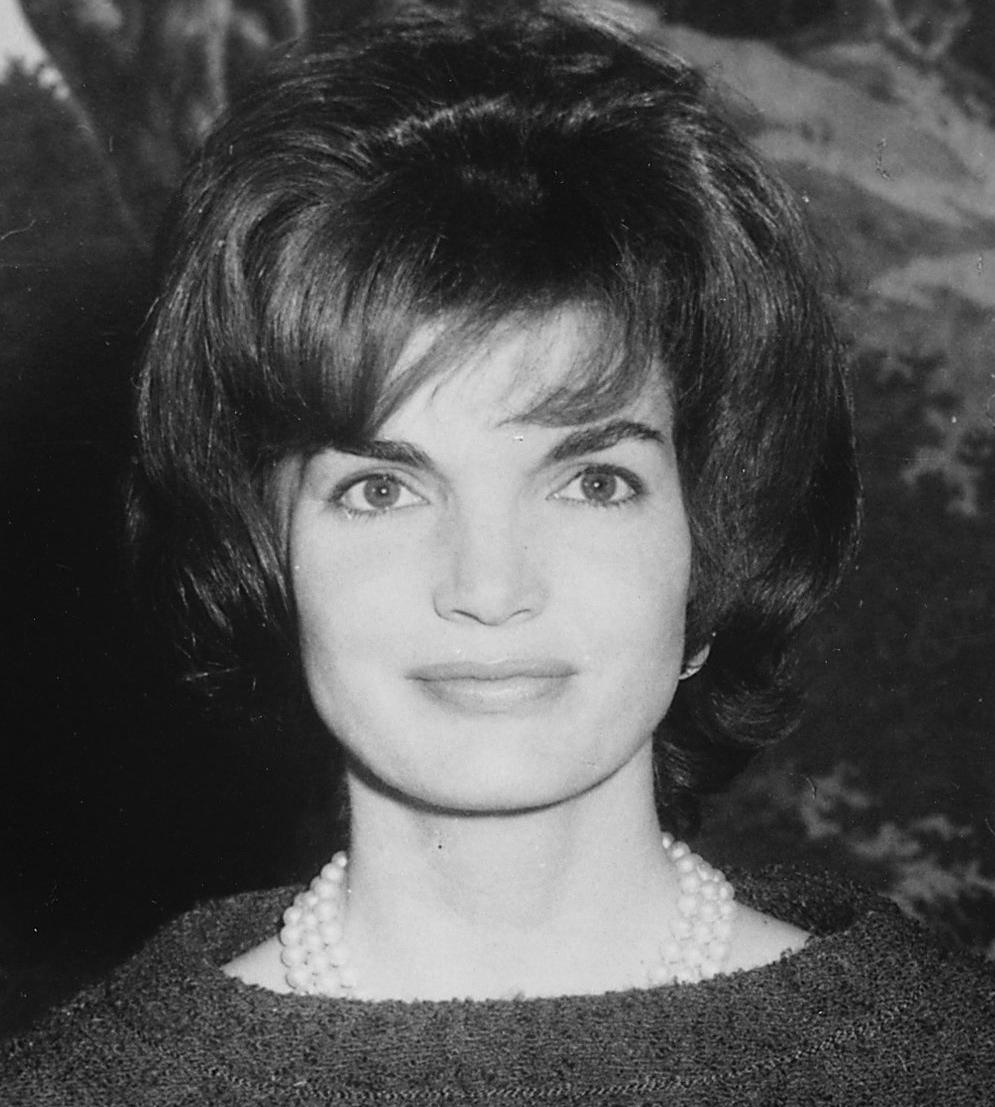
The Shock of Recognition
Frank Freeman
when I was watching an interview with a veteran who had had to observe atomic bomb explosions him sitting there with this baseball mitt on his right hand with cuts back and forth from him to scenes of soldiers in the desert the flash of light the mushroom clouds black and white films like we had in high school the terrible beauty born here in the good old US of A and how he did his duty did what they told him to do and then wondering why he had that baseball mitt on during the whole interview I realized it was not a baseball mitt that was his hand those his fingers.
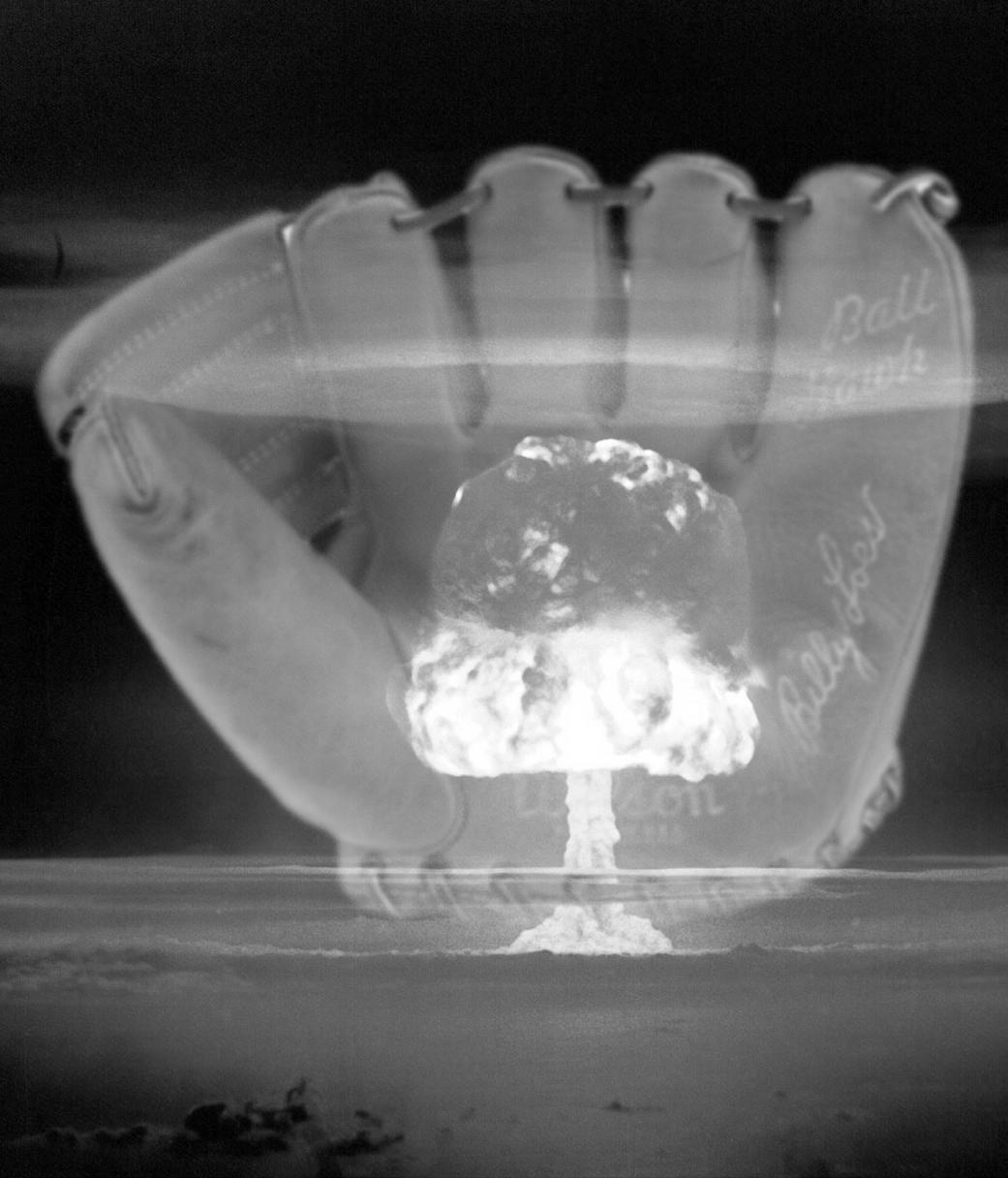
Room-by-room eulogy of my first studio apartment, and the girl that lived in it.
Gaia Huaira Capizzi Candiracci
In the blue semi-darkness and the gnawing cold of my dix-neuf mètres carrés studio with centralized heating, I could remember how we used to run.
That first year alone is commonplace to all embryonic students born into a new home, mere placentas derelict on the gray plastic imitation wood of their chambres de bonne:
I was eighteen years old and surrounded by powerful wizards with knowledge of the universe, but all I could think to ask them was whether you truly loved me.
I was in a hell in small rooms, my reign knew no bounds.
I was a cheater, in my constant profanities and vulgar behavior; I was a pansy, sobbing and crucified in the lesbian nightclub bathroom; I was an alcoholic, finding and unfinding the meaning of adult life; scarcely clad in those constant techno beaux arts parties.
I dyed my hair red and cut it short. I lost and gained weight. I wore my skin dry and flaking.
I had two boyfriends who hated each other, and I hated the both of them in turn.
The apartment resides as a wound which speaks of an unmentionable—unremembered time.
It does not exist anymore. I have no pictures of it. It has been remodeled entirely and a very mean old woman lives in it now. The trick of memory has started, every inch muffling itself into my mind, traumas of interior design only appearing in my nightmares. In every non-room or space that remains, everything is always happening still:
Front-door hallway
Your skinhead boots scrape against the freshly painted walls, on the way to feed my hoarder neighbor’s cat because I was too afraid to go
The Opiate, Summer Vol. 42
into his apartment. He was an older man, unsettling and lonely, as most perverts are. When I forgot my keys on the way to my examen de géométrie spatiale, I hit myself in the head so hard that I lost a little scrap of hair from my scalp. I still owe you two hundred euros or so for the serrurier.
Couch beneath the mezzanine
When I first moved in, I didn’t have a bed for a month; my back has never fully recovered from sleeping on that small couch. It had a metal bar underneath the mattress filling, from the cheapest section of the Ikea website. On my ceiling I glued glow-in-the-dark stars, like the ones I had wished for in a letter to Santa years ago. Beneath those plastified astral bodies, I kissed six boys and one girl; none of them mentioned how uncomfortable the couch was.
Kitchen
I cycled through the same four recipes—pesto pasta with peas, mushroom risotto, stir-fry noodles, pancakes—you enjoyed telling me I couldn’t cut vegetables the “correct way” and, regardless of their mushy final state in my lower intestine, I believed you. You would cook for me since I was “useless” at it then. In November, you took away all the sharp objects from my kitchen drawers. Only cosmological illusions fed me for the remaining four months.
Bathroom
The floor was a sort of concrete, impossible to clean with a mop. To get the blood stains out, you’d have to get on all fours to scrub with violence, bleed and clean. You told me that was how the head commis had to clean the kitchen of the Georges V—to teach him humility—what a shit job you yearned for. Stupid-drunk in a fetal position, I fell asleep under the warm shower to remind me of home.
Balcony
Baby potatoes had birthed in early spring; to my horticultural joy, you made me a salad with them. I refused to smoke near the potted plants, out of fear of contaminating them with my terrible habits. After the Halloween party, where they stuck me up with non-consensual needles, my arm was immobile, purple and numb. I stepped out on the balcony hoping the harsh wind would help the blood flow in the big vein that stuck out from my flesh. It didn’t.
Mezzanine
As Tracey Emin had, I shared my sleep with platonic loves and little
siblings chittering into the near-night of our dreams. Adorned with floral bedsheets and my childhood teddy bears, there was a dead boy beside me. Grasping onto my bone-flesh as it gave way, frail and succumbing. I left that bed with a surgery in me. That was the worst thing about it: that you had done it to me in my own bed.
The next morning, I called my mother in tears.
I haunted my own apartment for months after; still in that time that doesn’t fit right, dragging through unlit non-rooms, I begged for it to come back to me.
The moving day was last September, after repainting everything over again I expected I would cry, the tears never came.
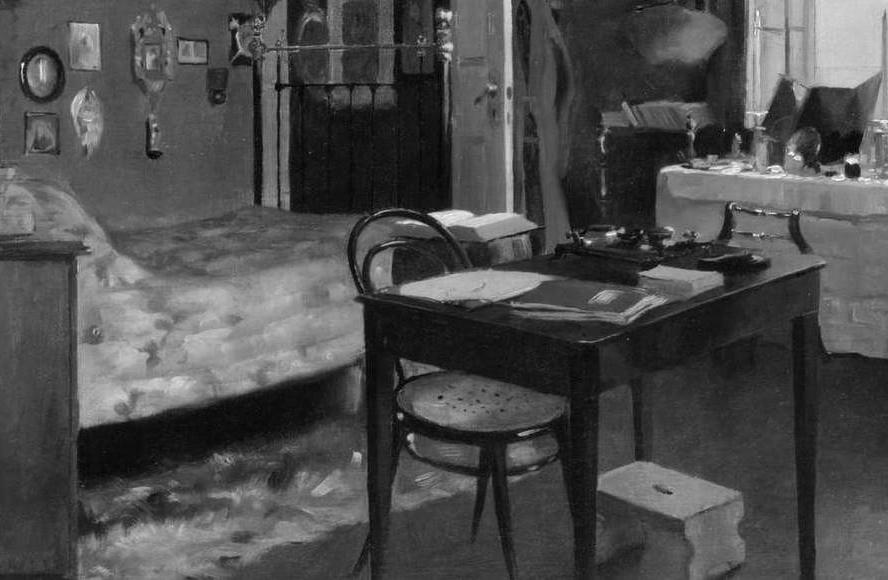
Only Threw This Party For You
Gaia Huaira Capizzi Candiracci
You feel out for anything resembling empathy or interest on the lower base of my back, a gentler hand skimmed over the sliver of skin in between my mini skirt and sheer black top.
On purpose, I don’t wear a bra as we watch torture porn masquerading as a horror film.
My boyfriend writes to me from back home; I leave a message saying I’ll talk to him later.
Only to abandon myself back into the non-ambiguity of your embrace.
A month passes, back at the family house to tell my mother of my recurrent irrevocably sinful thoughts about women
Biting the apple once, if only just in thought.
My father doesn’t interrupt my discussions of lesbian novels at the dinner table, unaware that I am sanctifying the shame that ten years in the Catholic Church could not bury.
In the tram on a winter night your current fuck-girl doesn’t look me in the eye,
She shows up the next day like, “Are you serious??!”
Truthfully, reassuringly, nothing is actually going on between us.
Her boyfriend is in a warmly-lit Bang-cock street as she clings onto you at the after-party
“Of course you’re the kind to convert straight girls,” I beam with desire in the canapé lit of your dingy apartment.
To dissuade you from speaking to me again I do not talk to you for two weeks, I tell you of my non-efficacy in sexual exploits:
I have only kissed three girls over two years ago, I am unmotivated and lazy, I am traumatized and vulgar, I am not even very good at masturbation
You shrug, of course you are: “It comes pretty naturally to me.” Bitch.
On purpose, you arrive two hours early to my house party only to end up Eating a pitiful quiche with my boyfriend, grinning at the sports references I would never wish to understand, like the stereotype of a butch girlfriend you truly are. Faux friendliness doesn’t keep you from glancing over You hate it when I drink— short vodka panting, sea moss hair dye, dressing you up in my punk rocker clothes— I sometimes tremble when you are near. Self-conscious and sweet, taking two steps into the kitchen just to stare down the sink. Everyone already knows anyway.
You joke that my cheap Urban Outfitters tulle dress isn’t revealing enough I joke that I am in love with you, We unanimously ignore a sincere chittering beneath our chest plates.
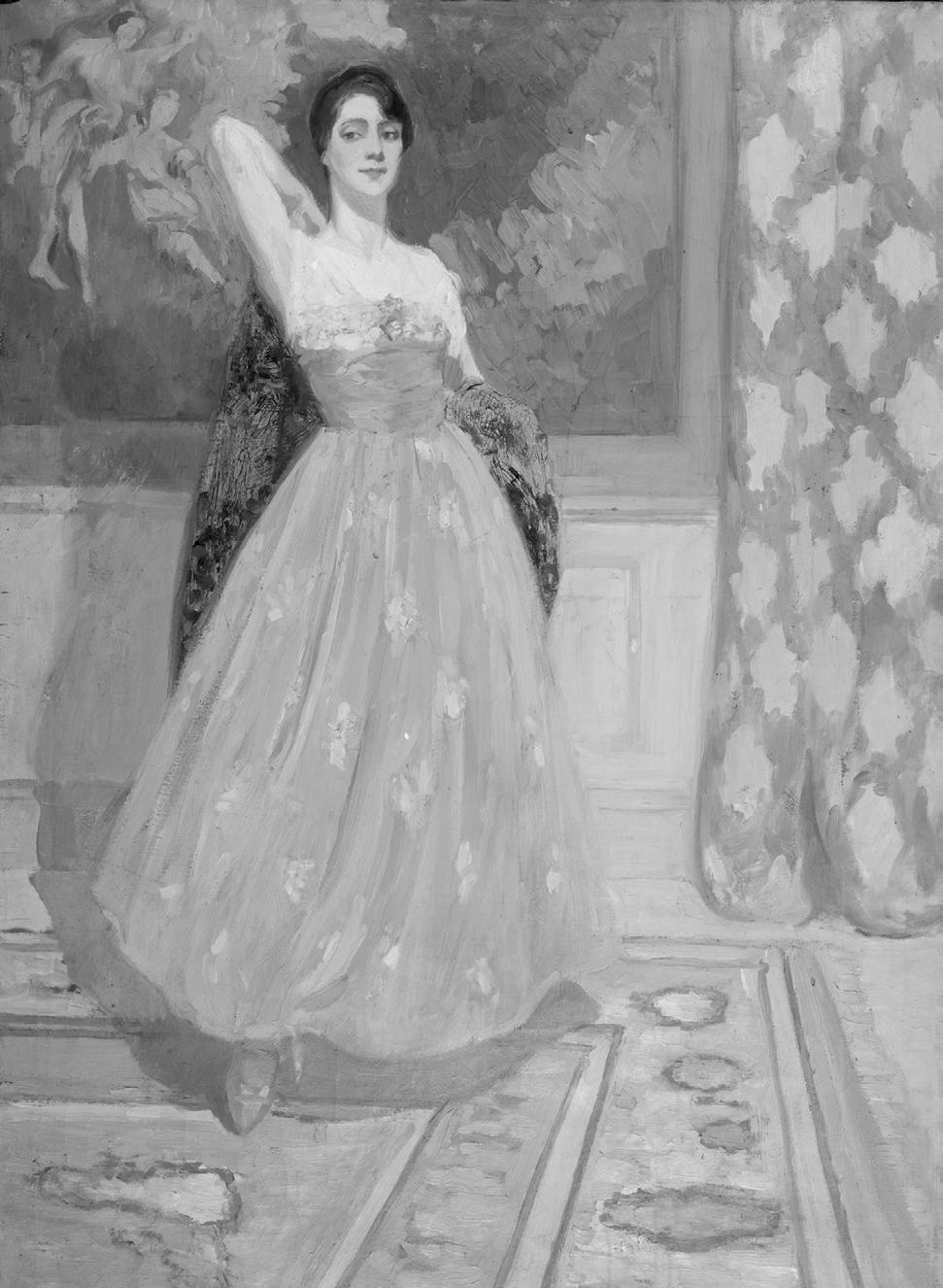
Un Mondo a Parte
Gaia Huaira Capizzi Candiracci
Behind the funfair of your adolescent desire
there is a dim parked car, beaten up acne-scarred, indented cheeks
Faccia di maranza
Glittering silver chain and extensive Neapolitan vulgarities imprinted tattoo of the Virgin Mary on his lower left rib cage
The sixteen-year-old son of a local mafia father imprisoned for killing his mother two summers ago
Opening the trunk he tells you
“T’o giuro Gaia non te-o mostro se nun t’amo”
You’re fifteen and drunk on suffering absconding your thought-borne boredom from all the boarding school education, home-bred detachment
An arsenal of military-grade weaponry lies in front
A machine gun drags you home
Sheltered, love-ridden scema
Non ti parlerò mai più
When you recount the anecdote your French friends laugh exaggerated and grotesque, their preexisting image of Italian mother’s boys and baby-gang femicides
They cannot conceive real suffering
Sat on a park bench in his southern beach town terrified, terrified, terrified
Next summer someone stabs him on the pier
Un mondo senza di te è impossibile
Feminine sobs echo in the church’s organ the funeral is quick cold and bloodied
T’o giuro.

Vanishing Point
Hedy Habra
after Street of Chance by Juanita Guccione
Under a dark moon that has decided to keep silent, I wander along the street of chance, staring at the vanishing point, uncertain of the odds of being, but with the certainty that it leads to the sea. I walk like an automaton among passersby, gliding as faceless pawns. A couple of black horses pound the pavement, wavering between going forward or backward.
I wonder what lies for me at the end of this road lined with lamplights and palm trees. Fan-leaved branches stretch, unfolding an animated deck of cards turning into murals that grow in size. Shuffled and reshuffled at each step, some cards flip into a hall of mirrors in which I lose myself in my own reflections, as though in an old photo album where the faces of those now buried are fading.
we’re crossing the bridge of death to leave behind the madness...black sacks stained with blood...stillness...snipers... a heart skips a beat.
I walk faster, look sideways: some things are best forgotten. Let’s fold the night into light. I pass a couple of young men who seem to get closer to me, then recede and peel off the murals, disintegrate like antique parchments at the sight of an imposing woman in Tyrian purple, a younger version of my mother who takes me by the hand and whispers in my ear: There isn’t a minute to lose.
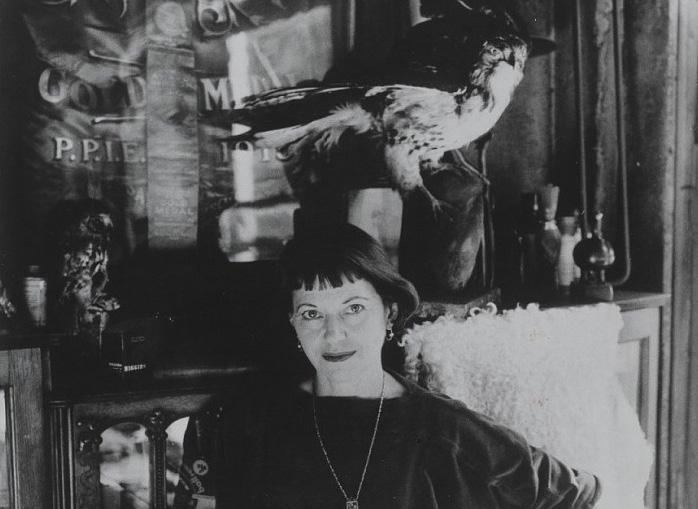
The Door Is Closed
Sophie Roy
slippers
blue green
my ama’s are red
it’s raining outside i walk barefoot there is a towel under the front door
the ghost of a dog sleeps upstairs in an extension built by human hands that cradled the back of my skull
97 hong kong is lost you build a house you build hope
you don’t think about it but you hope the next generation doesn’t have to know about hiding out in the mountains
we walk up the pilgrimage up to the teapot mountain i see a snake i see its old fit
you sweat to deserve prayer to make sure you really want to get there but i’m not looking at the old temples
i think about the camp memorial down there we used to have gold they used to be free
silence is there as you seek to listen
it sits and lingers i was taught about them about lives that get stuck
that’s why we burn money in august
i hope the smoke travels to the mountains i make friends with someone’s dog his girlfriend looks like me she calls me meimei
he has tattoos on his arms i dream of getting they look like peace silence now not like before
i get up from the rock the clouds are dark rain matters here
i’d rather not die up in a mountain when they’ve fought so hard to get down
a tree’s down i climb over it
i used to wish for curses to be a forest spirit or maybe next to a river
i’d give up future silence to watch over land
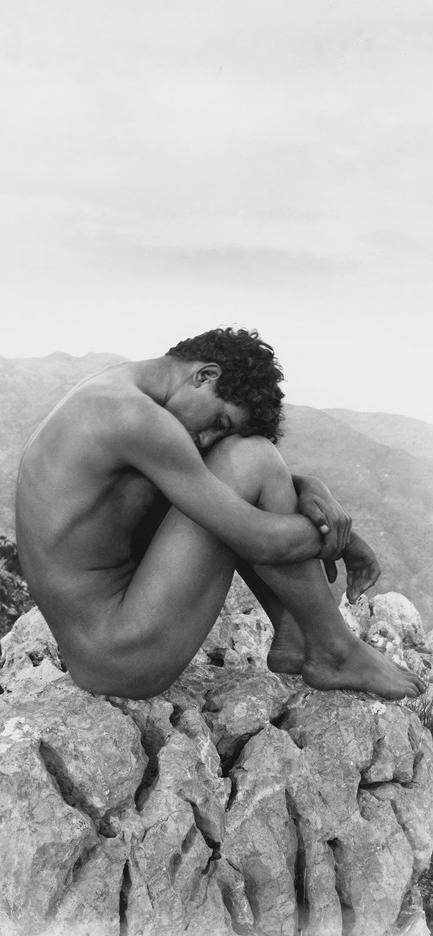
Goodbye, America
Kathryn Adisman
America! Remember me?
Who am I? The little girl who stood up in first grade, hand over heart, and recited the Pledge of Allegiance:
I pledge allegiance to the Flag of the United States of America and to the Republic for which it stands, one nation under God, indivisible, with liberty and justice for all.
“THAT LITTLE GIRL WAS ME!”
to quote Kamala Harris, who was bussed to school. Like her, I believed in liberty and justice for all! America! You brainwashed me.
I can feel my father, son of a Ukrainian immigrant who fell for the American dream, rolling in his grave. What would he say if he knew his old nemesis the real estate conman who evicted him is president? Haha! Is this a joke?
Some joke! America elects a wannabe dictator who promises to fix our immigration problem and uses Gestapo tactics. Suckers! You’re next! What’s deportation but mass eviction? Whatever happened to America?
America! I’m talkin’ to you. You forgot who you are! You’re suffering from early-onset dementia. I have bad news, America! You have Alzheimer’s of the soul. America! You forgot me.
Who am I? I’m a child of the ‘60s! Talkin’ ‘bout my generation. Whatever happened to us? We had hope! We were gonna change the world, remember?
Second-wave feminists who went to probate court to take back our names. Roe v. Wade survivors! Women’s libbers who subscribed to Ms. Bra-burners! Remember us? Where are we now? We don’t exist.
When Hillary lost, I thought, “There goes my dream of seeing a woman elected president in my lifetime.” Then, Biden passes the torch... I confess, I fell for the fantasy of a female POTUS. Twice!
America, you betrayed me! You voted for a convicted felon over a smart woman. The only women in U.S. history nominated by a major party for president lose the election to this grotesque parody of patriarchy.
Surrealist director of American cinema David Lynch is dead; Donald Trump mounts the throne at the spectacle of his second inauguration, on the pyre of democracy: David Lynch’s birthday, January 20, MLK Day 2025! O say can you see...
The Lynchian dream of Hollywood is burning. L.A. wildfires usher in Trump’s second term. The climate change denier drill, baby, drill and his gang of billionaire oligarchs who pick our pockets salute him. O say does that star-spangled banner yet wave...
Flag Day is Donald Trump’s birthday. He hugs the flag like he’s grabbing America’s pussy. Day 1, with a flourish of his pen, he rewrites the Constitution and hijacks democracy. O’er the land of the free and the home of the...
When I heard he won again I felt all the air get sucked out of me. I felt sucker-punched. I felt hope collapse. I felt like somebody who’s just had his guts kicked in, wearing this silly grin on my face. Who am I? I’m Bogie in Casablanca standing on a train platform in the rain, waiting for her, as the Nazis prepare to enter Paris, and she never shows...America! You stood me up!
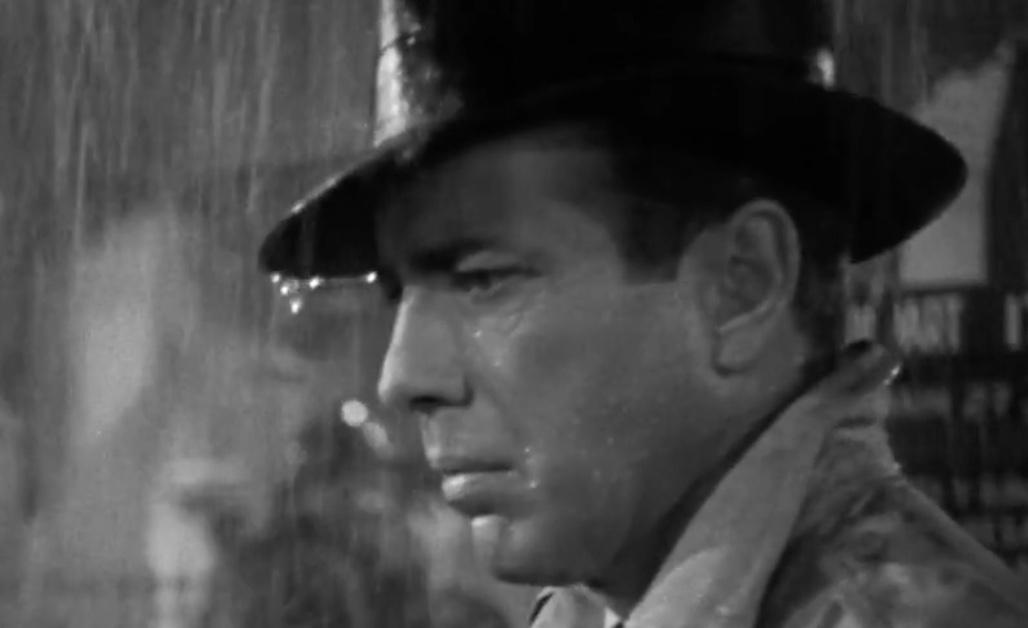
May As Well
Xavier Jones
It’s not supposed to make sense, and yet that makes perfect sense
Perhaps, it is the only sense that there is
If we believe that, it is nonsense to believe that there is no sense
For where would be the sense in that, to submit to being devoid of it?
Where are we going? Are we going anywhere?
Is it best to stay put or try a myriad of directions?
But to what end? Is there an end? That is to say, is there any sense?
It makes sense to debate to it, well at least to some, not to all
For what is it to change direction, or remain motionless?
It makes perfect sense, but to who?
No one is able to explain it
And the few of those self-pronounced as “capable” merely punt
Thus this proverbial rugby ball yo-yos in limbo, cynically one would imagine
As that would only make sense at this point
Or unshakeable naïveté, that too is a sensible hypothesis, contrary to the “explanation”
There is a sense
Yes, that no one can agree on, so does it even exist?
If it did wouldn’t it be common sense?
Not necessarily, look around you!
So where is the sense in that?
We wonder the same thing
There is no sense! There isn’t supposed to be!
The proof is everywhere! That is the only thing that makes sense! What is the sense in pretending otherwise, merely to desensitize?
On the contrary, to be reassured there is a sense
Whether seeking or not even thinking of it
Whether in a quest for validation or refutation
We may as well give it some sense
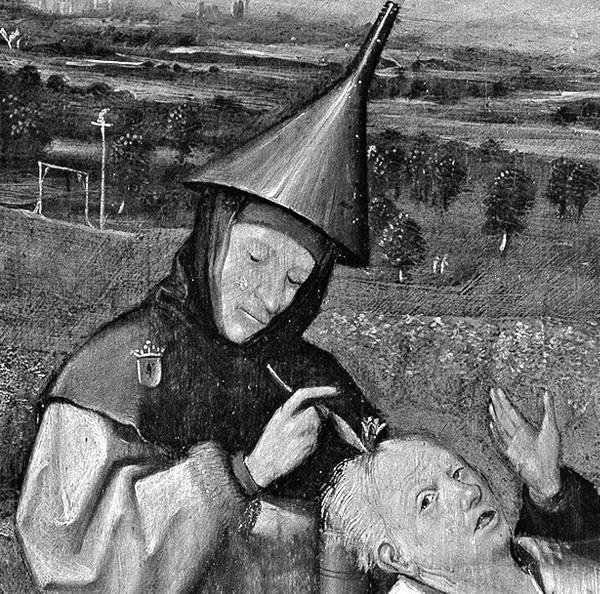
Shh!
Xavier Jones
Too trivial for some, too deep for others
Some would call me for help
Others would call to get me some
Maybe that’s why they call it TMI
Too much information and it seems like a cry
For help that I’m not even sure I want or need
But some will insist I take it so they at least can sleep
With a clear conscience while I am wide awake
With my ears ringing and these thoughts that won’t give me a break
Until somehow I manage to get back into my own head and slam the door
By telling myself, “I’m not crazy, I just think too much”
But what do you expect me to do? Waste this machine
That won’t stop overheating itself?
Aborting my appetite with anxiety
And occasionally landing that K.O. punch that I sometimes wish actually ended the fight
Instead of enjoying myself being stretched out
On a bed, a couch, or even a shag carpet
Anything soft to protect this head that won’t stop spinning
Because the world is doing likewise, and doing so out of control
And as much as I think I want to let go, I hold tighter
Thinking I might be among the few able to slam on the brakes
Just so that the airbag hits me and I can finally get some sleep
But then I become afraid that I won’t have another dream to wake up from
So I stay awake trying to figure out if this hard drive can be backed up
Or if once it crashes that’s all she wrote
I don’t want you to answer these questions
I just want to ramble and paint a portrait of the shambles
That are smoldering back here,
But I see behind that look on your face
Your dilated pupils are screaming, “TMI!”
And that’s exactly why I need the voices in my head!
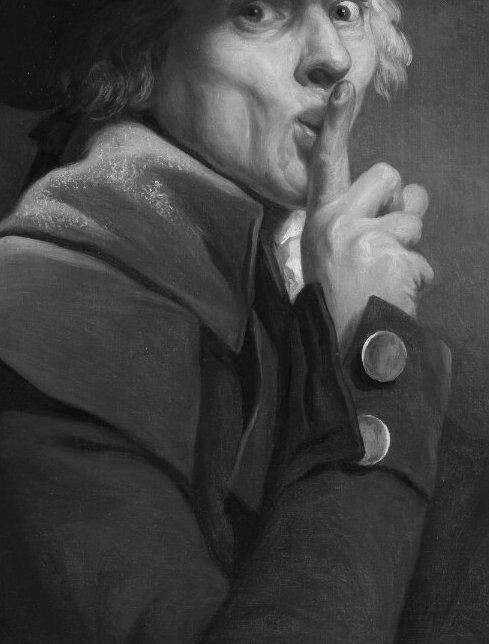
Death Does Not Know How to Kill
Jonathan Ukah
Death is a pageant for bad choices; there is no creativity in saving disguised as killing; there is more life to the poor slaughtered before their time; their return to a better life guaranteed by their creator as a second amendment. Like a mind soaked in the sun, death dreams of basking in flowers, but summer is its imagining of how eternity must look like. It is not the heavy metal slumping on the ground in weight; it can acquire wings like a bird and fly away into the darkness. The Holy crave eternity early taken suddenly from the world without a worthy replacement, without a second skull; he will not fill the void with the stuttering unholy, the rich, the evil, the monstrous left to make a mockery of death’s horrible choices. Perhaps death derides his taste in reciting the Lord’s Creed; all have sinned and come short of His glory.
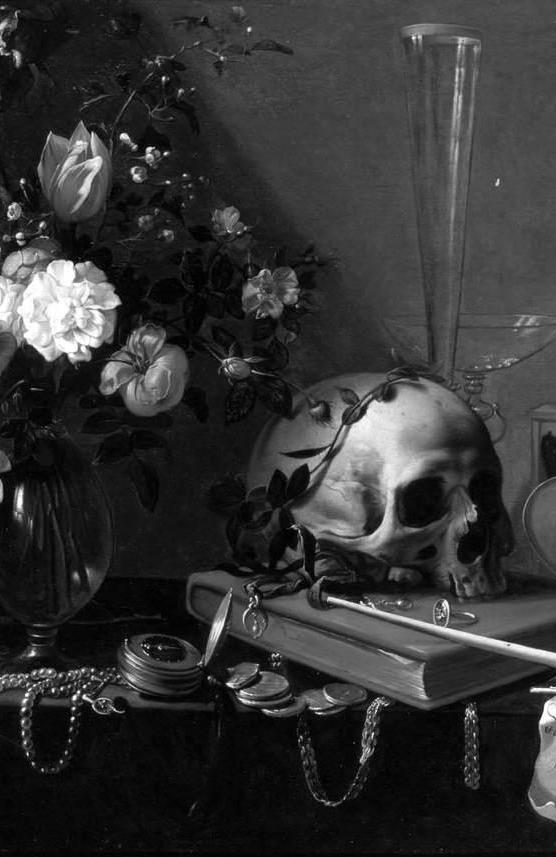
I Saw My Ancestor in the Moon
Jonathan Ukah
I cannot believe who called me from the sky, it was my ancestor who died a maniac, whose body became the green plantation, where my mother planted cassava and cocoyam, the food of a woman’s soul, her weapon against the explosion of the whites in our land and flogged them back into their trenches. A long time ago, I heard from the grapefruit, how our women wielded cassava sticks, waved them over their heads like blood sacrifice, cocked them with clenched teeth like Kalashnikovs and trained them on the ashen faces of whites wearing trousers like window-shopping angels. Today, you will hear the mannequin’s song, because I saw my ancestor on the moon, who died with a concatenation of wax on his body, something nobody had ever thought about as the kind of attraction that the sky wanted. Even shadows have more glory in loneliness. Never mind, I know the secret of his honour, the victory our women had from his holy hands, the heirlooms of laughter, the beloved olive oil which resided in the lobby of pride and pomp, and the dignity of a people driven to heartburn. There was a plantation where my mother hid cassava, from flood, fire and bullets, from moths and locusts, from the dark zone of war killing our land, from the slips of poisonous saliva, from ghosts with tulips, where the hate of the whites wriggles like snakes, like a valley of worms or in a theatre of slimy bones. Thinking of it now, I have reason to rejoice because I saw my ancestor on the mystic moon.
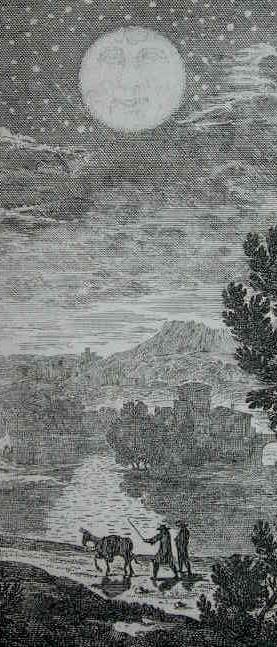
Dead on Arrival
Jonathan Ukah
To dismiss as though it were nothing, the scathing, slanting rays of the sun, or the greyness of the summer sky, is the beginning of the end of beauty, or whatever it is that we hold sacred; every sickness that takes a man’s soul, or dims the brilliant light in his heart, must start with a single bite, a cough, a feeling of unease, a harmless fly in the eye. Sometimes, it’s a stitch, invisible to the eye, with or without the flow of blood, or a profuse outpouring of secretions; there will be blood poisoning down to the wire, corruption of the jittery nerves, the cracking bones, the convulsing circulation system, the arteries, parts of the nervous system, muscles fall and the whole body of man follows after. And that’s how a little error collapses a tower, a careless sentence leads to a bloody war, a decimation of a people, a monumental genocide. That’s how a father’s erroneous beginning marks the brutal end of his intimate family, his lineage and his budding generation. That’s how, at the beginning of the war, my father and I left Port Harcourt in a hurry, perched on the hard saddles of a bicycle, but my father was dead when we arrived.

A Shadow of Himself
Jonathan Ukah
Until my grandfather became too light, I didn’t know that the moon was a slimming tea. He drank it every night with childlike glee; but his cup was never full of a substance until he metamorphosed into a shadow. He was like a theatre of dry bones, protruding cheek rocks, wrinkled veins, rinsed skin smelling of yesterday. I thought he was trying to bribe time to stay still until he looked handsome and floating under the Udala tree. But that night, my grandfather had wings which flapped on the ground like a bat’s, hands that lay limp on his thighs and a memory that receded like an ebbing rain. In those days, when the moon was a teabag, and the sun a spoon of mānuka honey, I cuddled the sky with a long knife, and the clouds with a three-pronged fork. It took me time to understand his history, that his body was returning to his ancestors, where he would be a legend and a light, the shadow of a bluebird singing of new dawn.

If I Could Have My Time Again
Jonathan Ukah
If I had my life to live again, I would remember to forgive the dirt gathering in my wounded heart at noon; I would follow the trail of the swallows trying to urinate on my father’s head and kick its dry ass with what mud the merciless hurricane left with me. I would see better the midnight muck, the pines of pain, the flush of the forest to suck my ruins away before the storm, and allow the sunlight to fight its wars through the roof where my miracle lies in wait; I would pray for my father to stay and see what the river would become; a naked god sitting on a tree branch, dirt hanging in the air, waiting for time to bury its fingers inside the mouth of the moon, drumming up war where none rises. I would make the low light of dawn into a loud and prolonged laughter of leaves, something to take the tears away hanging on the edge of trees and flowers. Those years that became ghosts for me, travelling through aeons and paens of time, lulling in the haze of afternoon dust, would find it convenient to reassemble and pray for the life lost in the gap between hope and despair, loss and unbridled surge of grace. But even time will never know when the dark particles will arrive to destroy that well-built hills of love
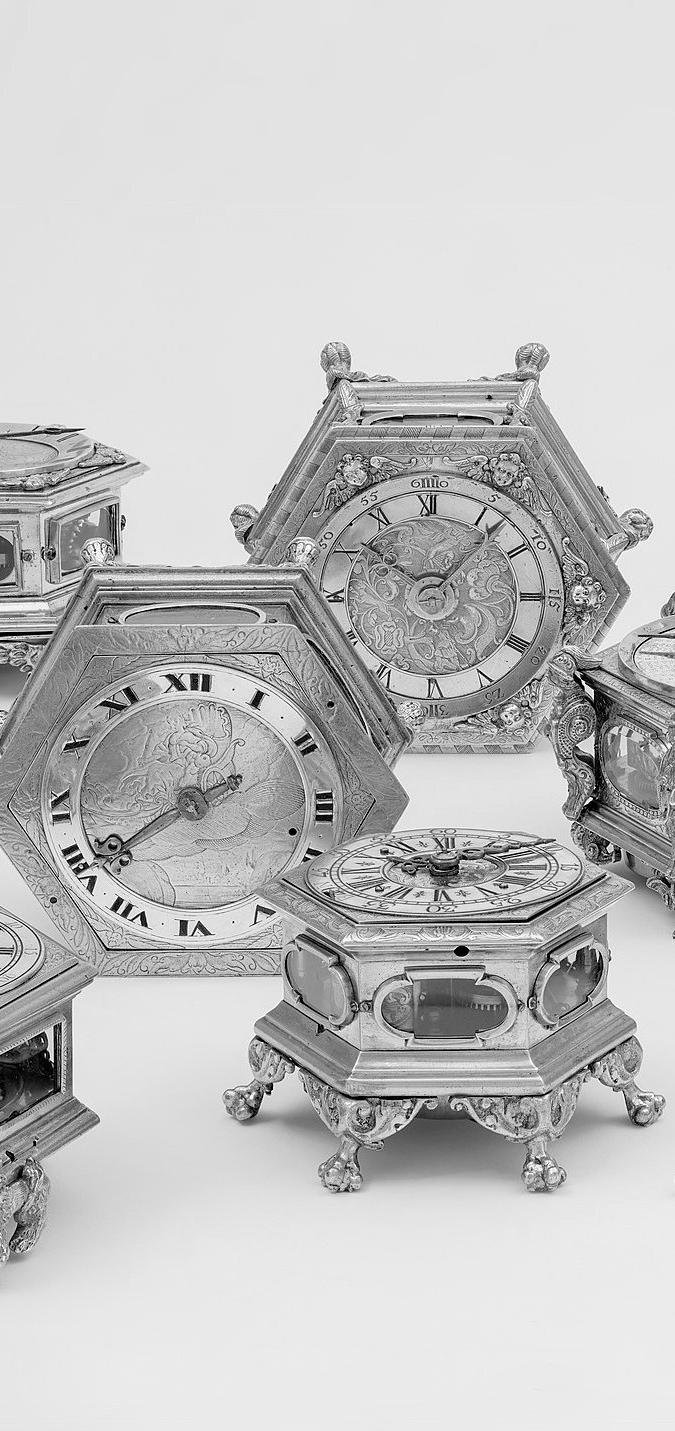
Desert Time
John Grey
The widow sits with her back to the wall, wets her memories in vain with the last drops of a tequila bottle.
In the rooms above, it’s too hot to sleep, too hot to stay awake. A woman in paper taffeta counts bank notes once, twice, three times, then tosses them at her dozing pimp. A truckload of men and yet it’s his fat body she feels, even now, atop hers.
A young couple shares a cigarette on the banks of the near-dry riverbed. When it burns down to the end, the river does too.
The gas station stays open like a yawn.
The owner’s slumped in his chair. Few cars go by. He half-hopes that none of them stop.
The Virgin Mary sweats in the mission’s half-acre, Nuns cool off in the silence of their cells.
A lady in a fine dress of black lace is the only one in the chapel. Her dark hair glistens in the stained-glass light. Her red pumps tremble with prayer.

B-1-gone
Onix N. Vanga
Disease, you lack keys to my home. Shadows, depressions, form separate bodies at the door. A rushing wake, a nap—no sleeping, no apology required. Beyond my own, one person in the bed, self-acknowledgeable sins, no one to ask forgiveness. The windows creak in the concrete jungle’s bustle.
In this deprived space born of color, the white man gives dirty looks to the living cursed by the word “ghetto.” Sidewalk rubble lays the birth of distinguishing class amid struggle, broken homes, and hunger, seeking cultural insight.
Forgotten tenements raise hung clothes out that window, framing a view of stars or the pollution of lights. For the blast of the barrio, in rhythm, the heartbeat repeats, melding together Hispanics, Negroes and mulattoes.
Disease, know that if you claim me, beauty remains ingrained, embedded in the heart and mind. For these careless, dangerous streets, where the hustle is too fast, living in and out, identity is real. Something you seem bothered to see—the identity of being color. The strife of our stand bothers your integrity.
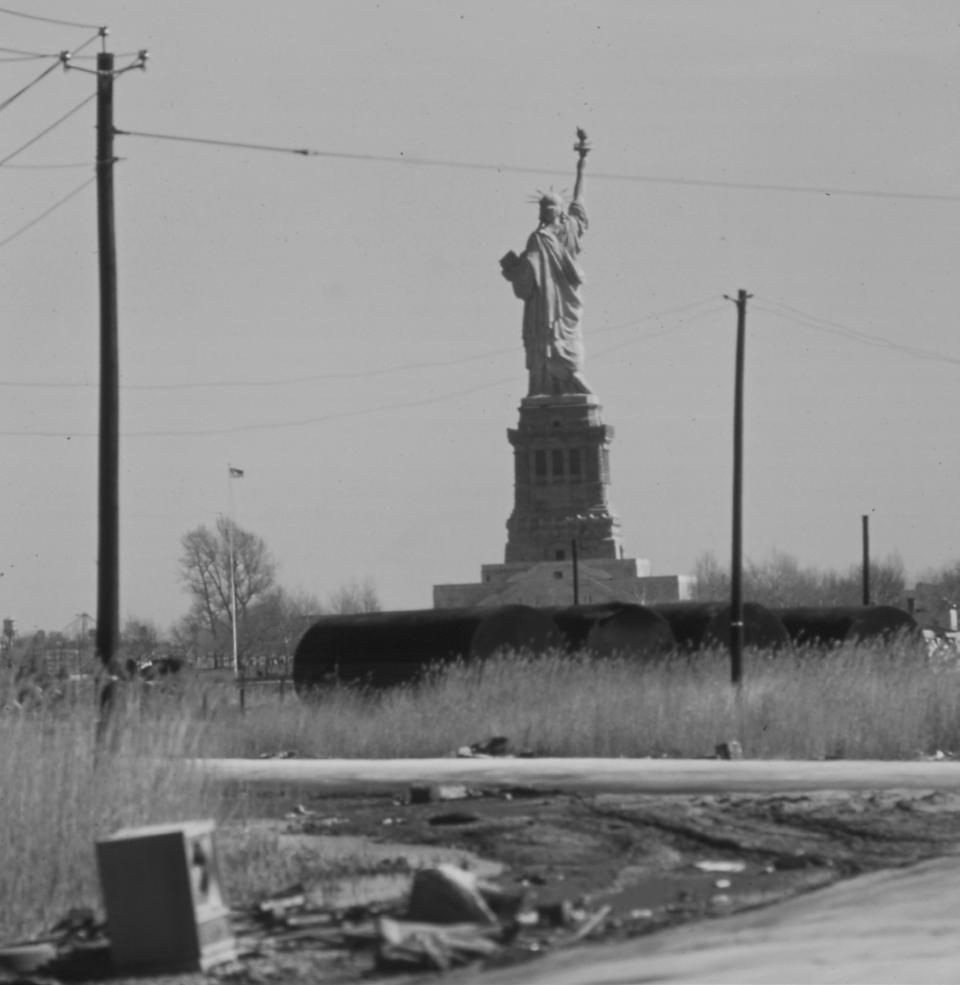
People
Onix N. Vanga
I don’t want to be a teacher anymore, even though the webpage tells me it’s the most relevant job, wheel of algorithms, spinning me through rejection. It does not know that the system leaves me dragged into disbelief, with kids who can’t read going to sixth grade.
The job hunt continues; stuck making cover letters, convincing myself there’s interest in a job that tells me to rest two days a week, that coffee is not an addiction but a comfort. To a salary that makes me run, haunted by the shadow of my own incompetence.
These are the burdens my forefathers left me, the lies that spent them too young to leave a trace of their truth. This webpage will ask for my race and ethnicity, to colonize me again, or create spaces that bear no resemblance to the generations and cultures confined to a can, a consumer good.
I become a ticked box, an identity flattened between code, caught in the margins of an algorithmic tendency that says, “Hey, this is the job relevant to you.”

Conversations With the City
Onix N. Vanga
The things we must overcome— the writing that gets rejected for not being close enough to the hearts of men from the city. How do I relate to you, or you to me?
Have you ever bathed under candlelight, spent more than a day without electricity or water? I remember the power outage after the hurricane, how we laughed under the flickering light, our fears swallowed by the dark.
Have you ever spoken to your neighbor for food, or stepped outside your door, saying, “I must let go of this ego to ask for help?”
How do I tell you that hardship teaches you to understand hate?
The closeness of social beings cannot be about fearing to respond to a message that gives you anxiety, while knowing all too well that the warmth of skin is your reminder beneath a blanket.
How can you know what it is to be without, or compare, as if a city without electricity leads to the breaking of ego that still craves more?
How close you are, yet how far from knowing how.
Will a story imagining a life without all that is comfortable in the city sound real, when we bathed in the river and smiled, greeting each other with a hello Will it be understood that being washed as an adult, your hair touched by the hands of a woman who no longer loves you, reminds you of the closeness we all crave?
That heritage and trauma linger not in the comforts of the city, but in those moments stripped of euphoric experience,
where you see the eyes of the elderly who grew silent— giving way to ask what youth they lost in battle or hardship, which no phone app can console?
Should I ask how to write a poem that makes these words bear the weight of meaning, knowing that ink on paper will one day erase your name?
I don’t know how to tell you, city, that my hands know the touch of streams, of rocks, of waterfalls.
Yet now, my skin finds closeness to a faucet, a shower that hides tears with water so cold, asking for no monetary value.
To know heritage is to listen closely to the stories, to understand.
Have you thought that the art best residing in us comes through conversation, through the human experience, whichever form it may take? That the artist’s ego should be in the message, not in how interesting he makes himself appear, not in how he performs or experiments, speaking of things like entropy—so detached from the trees?
The city strips your ego in ways the mountains never could, not by nature, but by exposing how small we are under its towering skyline.
So I ask again: do you think yourself a brother to the tree?
Do your feet not become roots when water rains, or remain still at the edge of the stream, waiting to be washed into the ground?
As this comes to an end, you ask, “Who am I?” and I ask, “Who are you?”
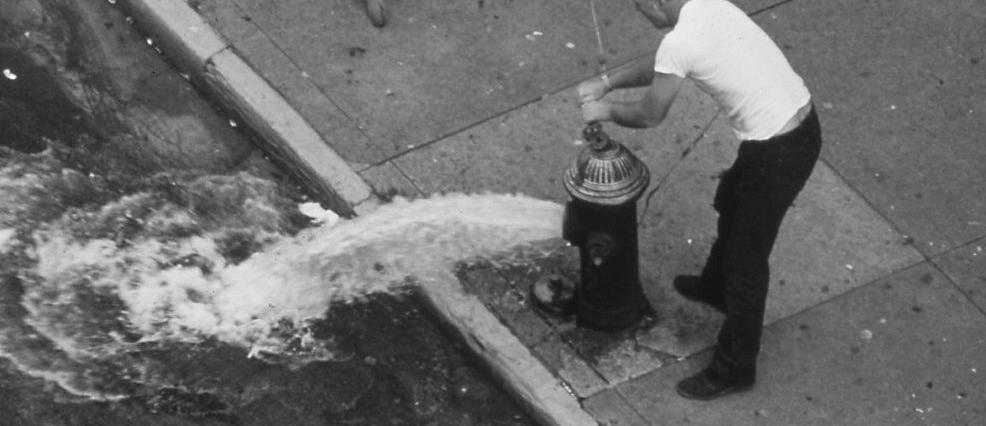
The Opiate, Summer Vol. 42
Carry On
Stephanie Watkins
I have a folder on my desk
A mess of mental unrest
Thick and obtuse
Like shape of my body
Side effects of meds
Introduced
For years I Capitalized on my own Demise
Waiting for a distraction
Leave a note, no retraction
My skin, once golden became pale, thin
Veins that taunted
Scenarios of endings Haunted
I held hands with My own enemies
Clenched fists
Put the purpose for The others ahead of me
All the time I skirted Mental fences
Anxiety with a capital A Defenseless
Though I suppose
Though I’m predisposed
My armor, though cracked
I’ll take up my cross
Upon my back And carry on.
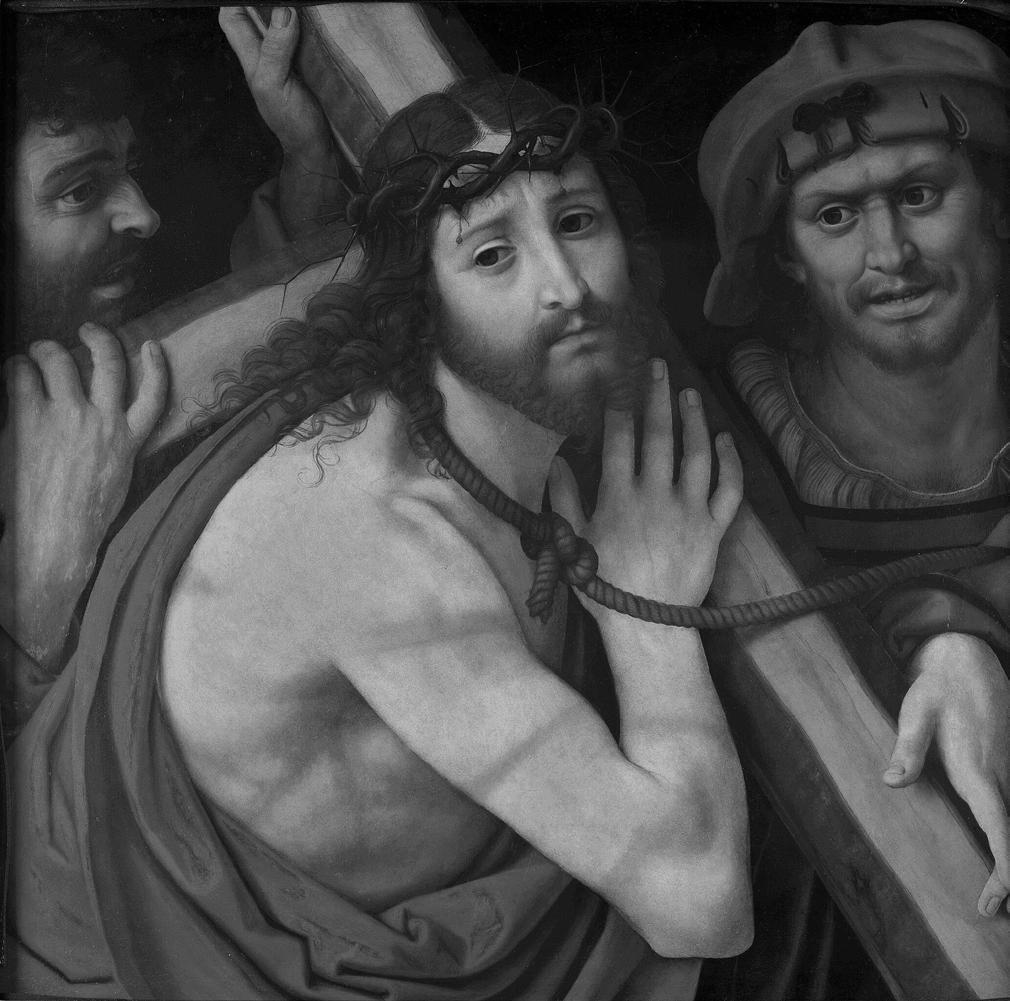
River Stephanie Watkins
Sometimes I dream that I’m standing
In the rain
It often changes colors
But it’s always the same consuming sensation
I laugh because my life Is so absurd
Underfoot concrete makes uneasy
A bed for the last drops of rain, the falling of leaves, the fading summer
Rewind back to when
The river was still flowing
And the rarest of music played
One, two, three heartbeat
Quiets. Where’s my liberty?
I didn’t choose this
Though, often, when the colors change
In my dreams
The river is flooding
After concrete cracks
And ashes have gone back to the earth
Anger, must then, be sinewy
And thinner than I thought
Maybe one day liberty
Will be felt, soft in waking hours
Softening of colors all abound
Swimming in the river, dressed in white

And fields of green grass growing, flourishing for miles.
Girl Under Water
Stephanie Watkins
Teeth clenched since I was a child
Twenty-four pills a day
Experiment, tests
Sick.
Physical, then Mental
Teenage Prozac queen
Ready to throw flowers into the river
Lower head under water
Twenty-five, Ophelia
Quarter life in crisis
Losing, longing, anxiety
Mental, with physical
Petals fall into the water
Wound so tight
Broken springs
Like a bed lit on fire
Pills, doctors, talk, therapy
Bought the roses, now wilting
Water is cold and chills to the bone
Brain was shocked
In the name of science
Of getting better, but now girl in a black gown
Life bled out like India ink
Then one autumn night
I was visited by God Himself
Hope with feathers.
Hands reaching up,
To a dark blue sky
The first signs of cosmos
Like Van Gogh’s night of stars
Physical never left, only
Mental now isn’t so present
I still walk with both. though I dropped their hands
Walking ahead.
A girl dressed in white
Baptismal waters
Warm springs of hope
Flowing eternal.

The Opiate, Summer Vol. 42
Night Swimming
Stephanie Watkins
The night before, I was night swimming Wet Lycra skimming curves of a girl, in waiting
Before sunrise, back seat
Fifty-two degrees. Talk radio.
Buzzed into the ward, Half past six, silent except The squeak of the nurse’s tennis shoes
On sterile floors
I slipped on the thin cotton gown Midnight hair brushing my bare shoulders
My mother tied the back with worried hands
There were three of us Mid-twenties.
A quarter life in crisis Waiting for the cure.
I wore lipstick, as if to say I was okay. I was still there Somewhere
The ceiling was a pale blue Like a Southern porch, painted to mimic the color of Heaven
A smiling nurse covered me in a weighted blanket as the tambourine man sent warmth through my veins
A haze displacing nerves
“I read in your chart you want to be a writer,” smiled the doctor as he strapped down
My ankles and wrists, thin straps of leather The room was blurry, I nodded “Fantastic. We’ll get you feeling better and you can get on with it.” Life.
I faded in and out, cuffs to measure the pressure
Of my heart
A band was placed around my head, with what felt like mounds of cotton on each of my temples
Beep, beep, beep
The smiling nurse said, “Now open wide.”
She stuck a thick, rubber mouth guard in my mouth
Beep, beep, beep
The tambourine man placed his hand, Which looked young and delicate, nothing like my father’s Who had worked hard his entire life, on my shoulder
“This will take no time at all. You won’t feel a thing.”
His gaze turned toward the nurse,
A nod.
The room fell into a stark quietness
Heavy eyes, the measured brain waves
Complete darkness.
I was in my childhood swimming pool
The only illumination from the moon and the underwater pool light casting swirling shadows across the faces of me and my best friend, as we talked for hours
Warm water lapping at young skin
Waking came fitfully. I was fully dressed, my shoes tied.
How had I gotten there?
All three of us wondered.
Back seat, sixty-seven degrees
Top forty pop radio
I climbed into my parents’ bed, A sanctuary of covers and familiarity
You can’t be left alone for twenty-four hours
After your brain has been shocked.
A light rain began to fall, tapping on the roof
Late January air ruffling the curtain sheers
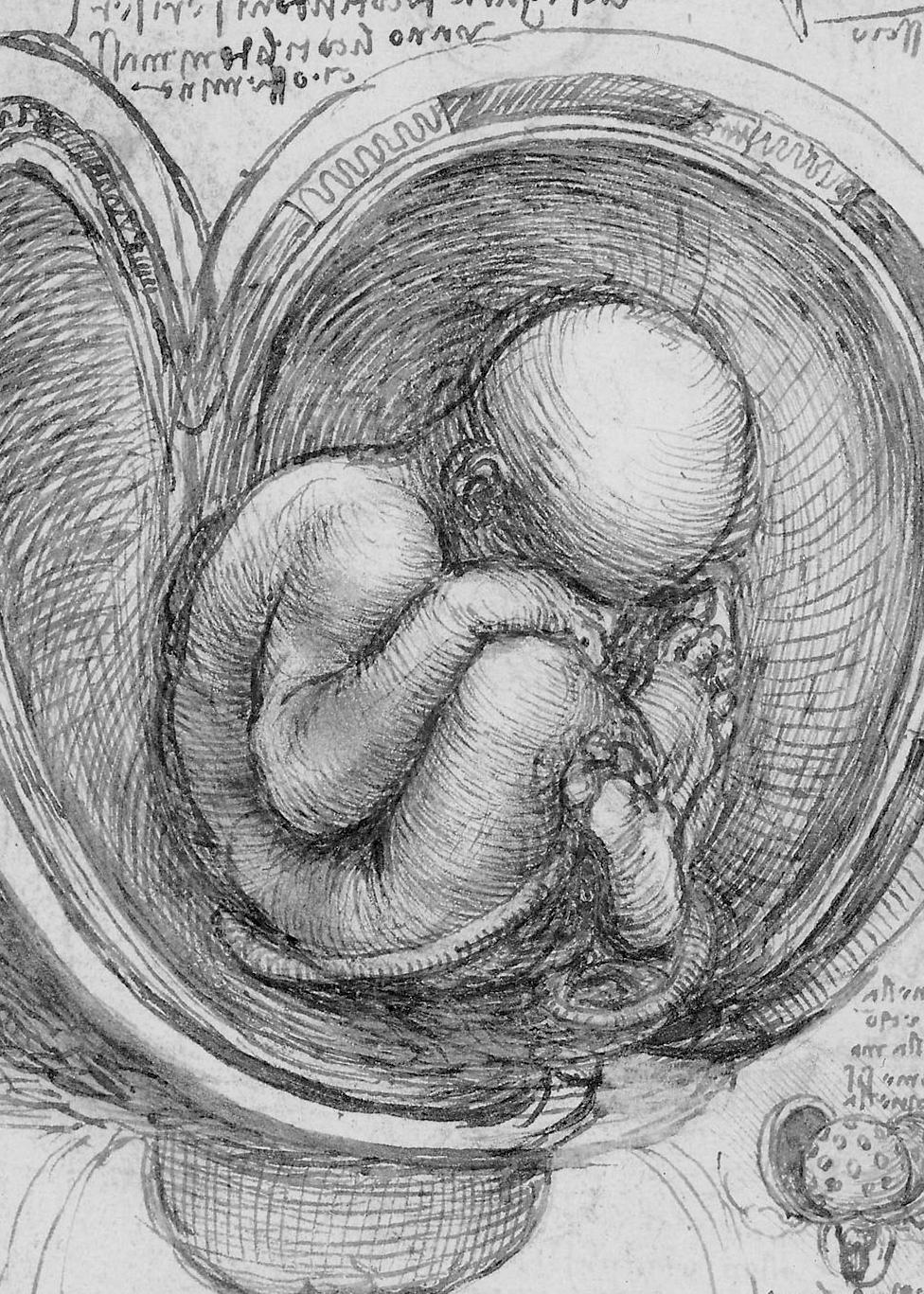
I closed my eyes, And fell backward into the warm pool.
*Note: this poem first appeared in Last Syllable Literary Journal
Silver Thread
Stephanie Watkins
I was born in the haze of summer
The year my sister
Became a teenager
A silver thread
Intertwining us
High heels and L.A. Gears
Walking side by side 1980s babies
In different tones
Practicing her perfected pout in my mirror
Her lipstick. MAC’s Ruby Woo.
Dancing in her bedroom
George Michael was both of our firsts.
As I turned into a teenager
I walked in her borrowed heels
As she walked down the aisle and into a man’s home.
I moved into her bedroom
Ruby Woo lipstick kiss on the vanity mirror
A teenage beauty queen and a mother, wife
Her borrowed heel broke underfoot
Lolita laughing at the new millennium
Sister brings more children to life
Older beauty’s facade is fading
Little sister walks home alone
Crown of blooming roses
Resentment fallen on her flaxen head
We were sewn together with silver thread
But in the harsh sunlight and faded nostalgia
Silver tarnished and split in half
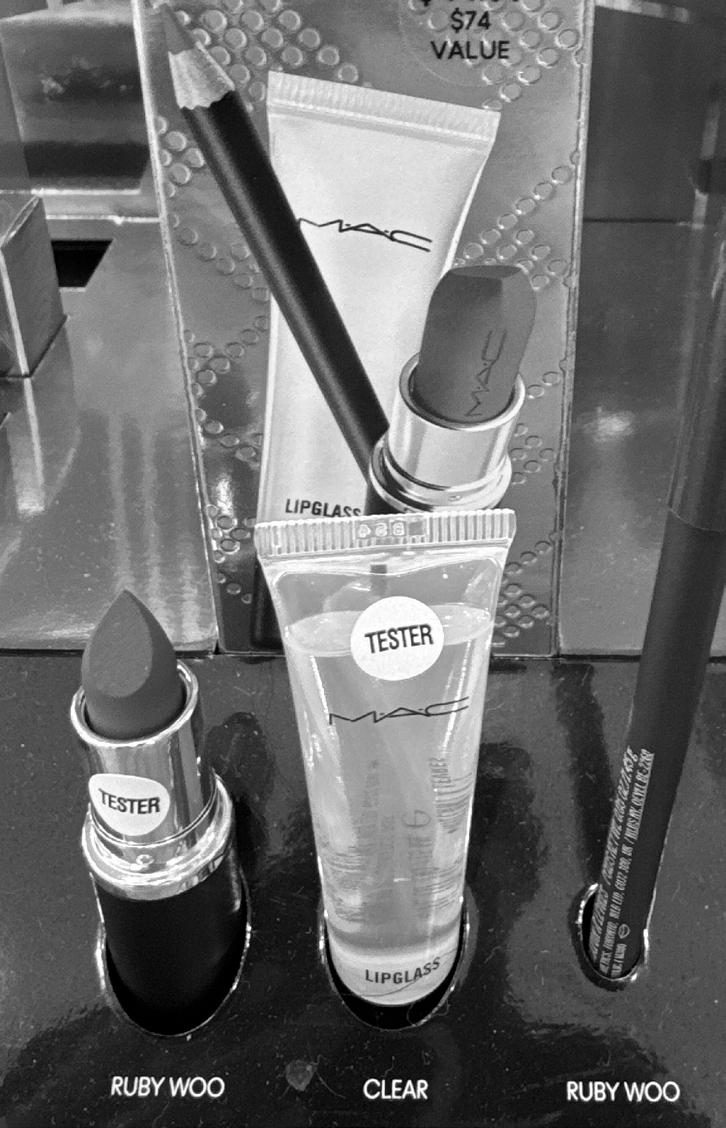
I replaced my sister with youth without meaning to One day when my beauty falters we’ll both leave Ruby Woo kisses on the vanity mirror together.
Superbia, Pride
Jennifer LeBlanc
In response to Hieronymus Bosch’s The Seven Deadly Sins and the Four Last Things
How demons can trick you!
Here, he wears a habit—innocuous linen of a nursemaid or nun so you hardly notice the bared wolves teeth, yellow eye like an empty sun, tail snaked in deceit. He could be an ornate coat rack, detail of an armoire. When focused superbly on yourself, these things are trivial, far removed, like the cat in the next room—eye trained, ready to bolt. Pride can be quick to anger when doubt disturbs the Narcissus surface.
But left to admire yourself, latticed windows arched high so neighbors can, too— chest of pearls spilling onto the floor, hat placed just so, pewter and gold gleaming.
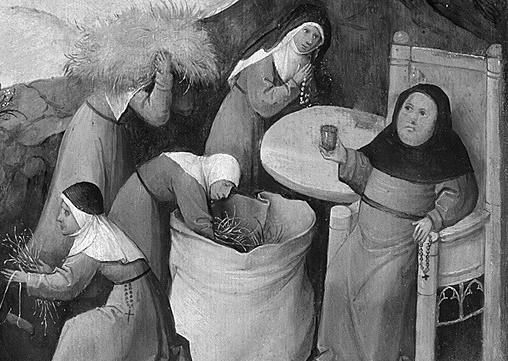
Invidia, Envy
Jennifer LeBlanc
In response to Hieronymus Bosch’s The Seven Deadly Sins and the Four Last Things
Give a dog a bone, he’ll be the green envy of the pack. A young man comes to the corner home courting for a wife, she sizes up his purse. He wears it visible at his waist so she can count how many gulden she’ll have each year, more or fewer than Aleyt, that beauty down the road with endless strands of milky pearls, gold from the Burgundian fiancé. Two dogs and only one bone, no agreement, it’s said. Two households, one cramped, one staffed with servants and a run for the hawk, no goodwill. This town boils under green, roving attention. Give a man a fortune, he’ll weigh it against his neighbors’.
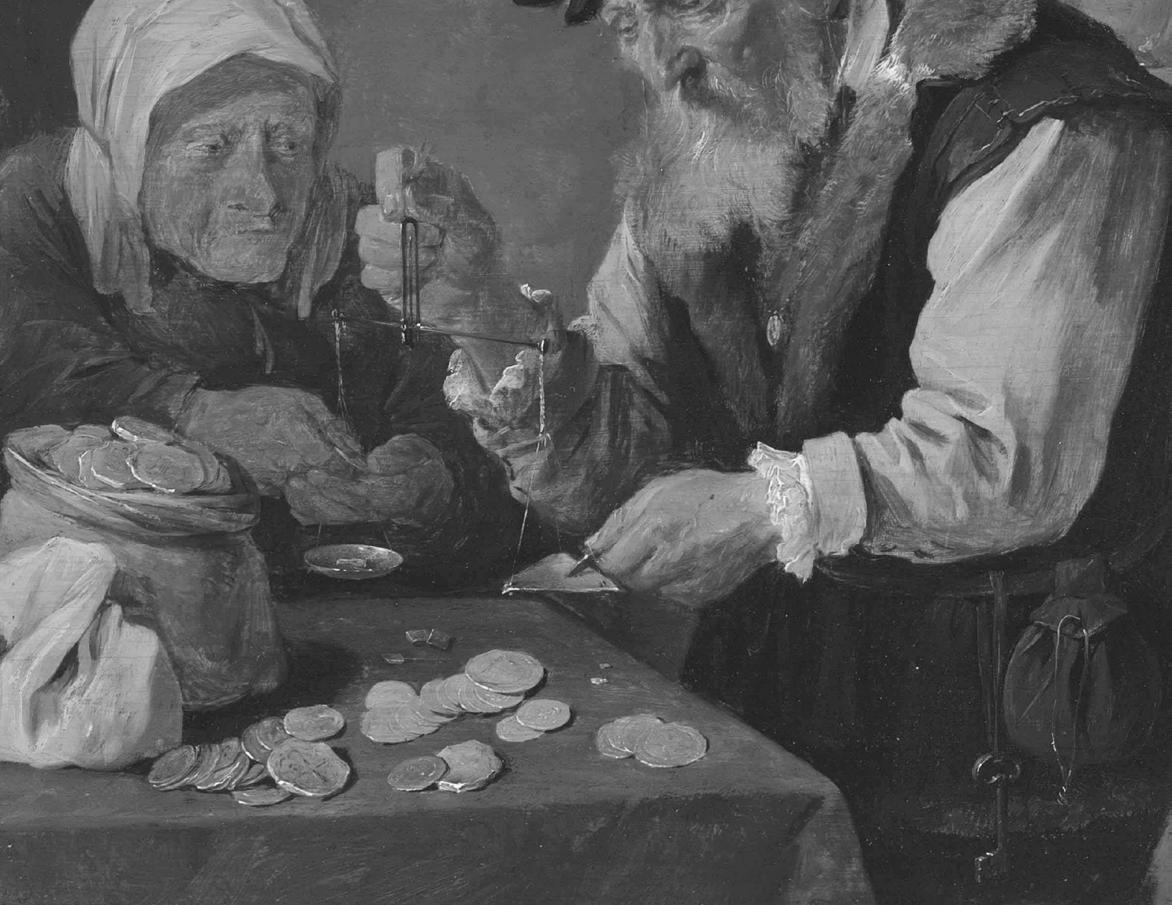
Chart Reading II
Jennifer LeBlanc
Ill-suited to being single, the once-desired solitude weighs heavy on me now, owns the full tenor of my life, does not bend or sway to alto. I exist in the ritual of my body’s waking, bread on the table, work, sleep. There is no joy except where planned, the one sweet allowed on my restrained plate. How I’ve yearned to be careless, gorgeous and black-haired, unshakeable as a tree, just a slip of matter but so firmly rooted, letting the terrible upheaval polish me like the tide sculpts a rock so I am made elegant as time goes on, drowned and sunned, drowned and sunned, at home in every season, a woman moving freely through her world. But I’ve lived this half year in a daze, the world occurring around me, this burning Earth merely occurring and a coincidence that I walk beneath this sky. What is the color of your grief, the scent? Mine is silent, aflame with panic. It drew me to you, Scorpio—born of water, you soothed the boil. Count with me these eleven stars. Oh, I have made a new religion of these stars. I know always where I am fixed, pinned up in the starry night, this eternal Virgo. There is no trick to unseat my birth, how I yearn to be careless, black-haired and gorgeous.
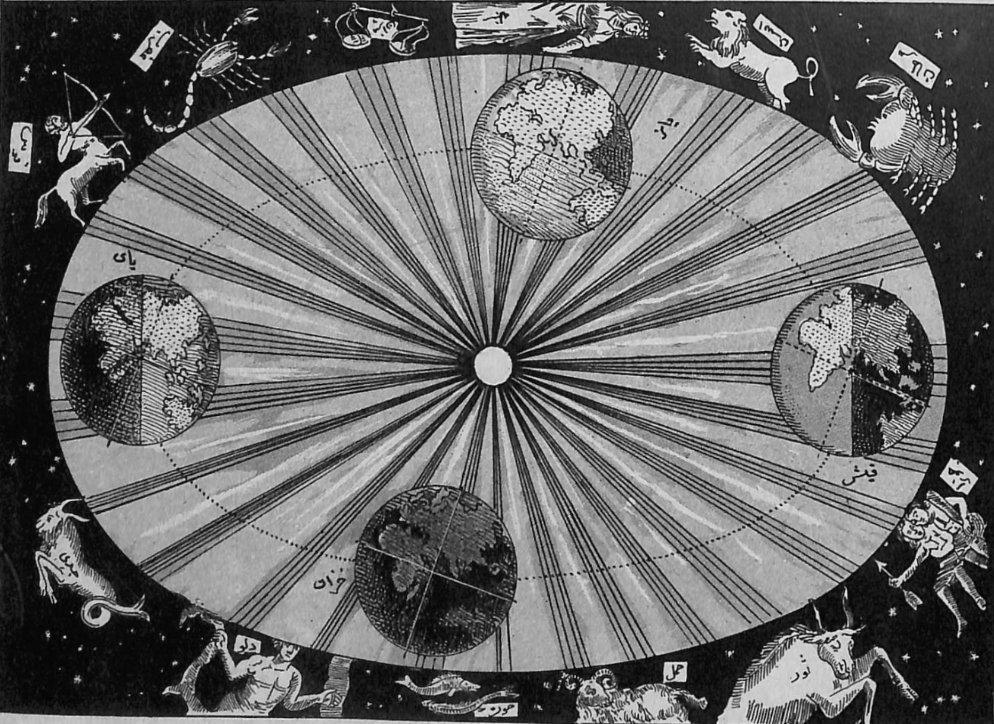
Critique of Pure Reason
Robert Witmer
My road is bound by the rails of reason, but lately I lack the wherewithal for repairs, and there are places where the mountain falls precipitously from the narrow road, at sudden turnings, as it climbs to the next sharp curve, places where the guardrail has fallen away, places I pass in the dark, on my way to the fountain of light, every day.
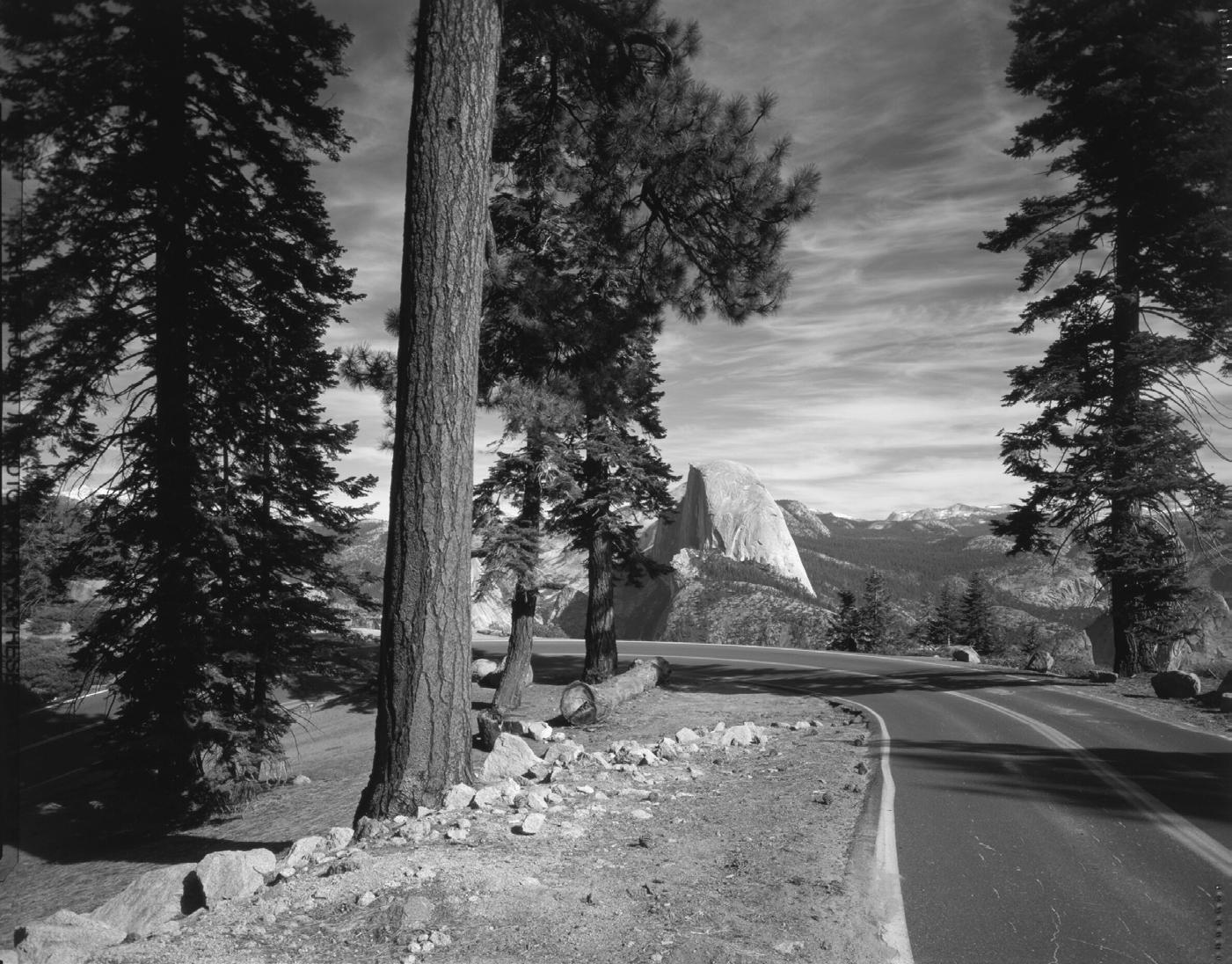
Perspectives
Robert Witmer
He sipped his butter tea in a corner of the dark room. A poor peasant mother did her chores near the hearth, occasionally tugging a string that rocked her infant’s cradle on the floor about midway between the trekker and the tug. What the Nepali woman saw as she stirred the pot. What the foreigner in his absent-minded rest saw in that dingy room. What the thin chicken pecking at the dirt floor might have seen. The baby in the cradle with its eyes looking upward at the smoke. The chicken hopped about, pecking, moving nearer to the cradle, which was covered with a blanket that was itself covered in dust and the regurgitations of the baby who rocked there peacefully. The mother cooked. The trekker watched. The chicken hopped up on the cradle and pecked. Pecking, pecking, slowly moving up the blanket, toward the baby’s face. If a tree falls in the forest and no one hears it, does it make a sound? Perhaps the sound of one hand clapping. Or the sound of a trekker’s boot swiftly through the air, on its way toward a fated fowl. A hero to a baby’s eyes. A crazed outsider come to kill our eggs. The visitor could not explain the punted hen—its final squawk—the puff of dust in the yard beyond the open door—the feathers settling down around the lifeless bird. The mother at the hearth could only gasp. The baby cried.
hearth smoke
a thin chicken with one eye on the iron pot
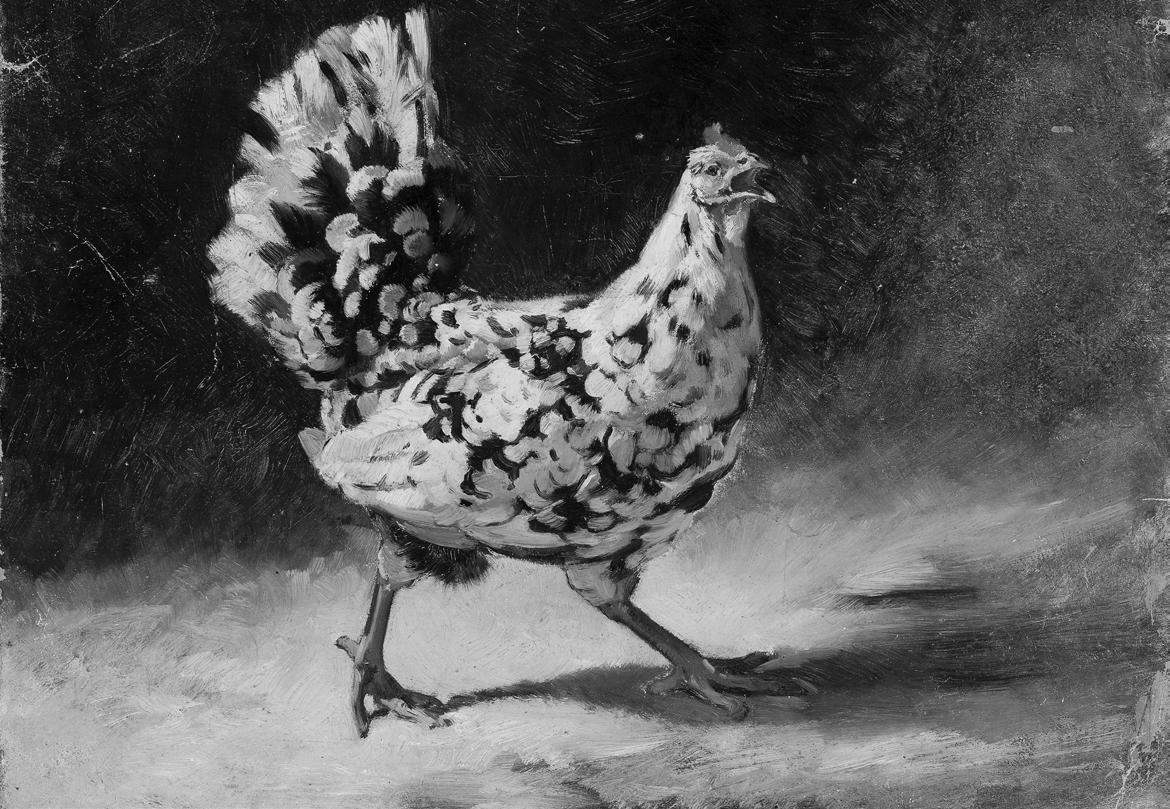
Put It On a Postage Stamp
Robert Witmer
In 1946, the Belgian poet, anarchist, surrealist and civil servant Louis Scutenaire wrote: “A commendable activity would be the reconstitution of extinct species... It would only take courage, patience and science, and some genius.” 2024. Check. Done, or rather, in progress. Courage. A vexingly subjective judgment. Patience. Well, yes. Sand through the hourglass. Degrees. Experiments. Breakthroughs. Breaking news. Some genius. Determined it was a good thing to do. Big to-do. Making the news, with something old, something new. Nothing new under the sun, saith the Preacher. A game “mixing the rules of chess with those of blindman’s bluff.” A hidden door. Back to the past. The chance of a lifetime. To repeat our mistakes.

Beloved, My Belated, Beloved
Robert Witmer
I figured it out. Death is a calibrated average of life’s boredoms. Nothing much changes, and it goes on forever. What of heaven and hell? One day, out of the blue, an angel turns up with a message: They have seen the light. Your name is now a song.
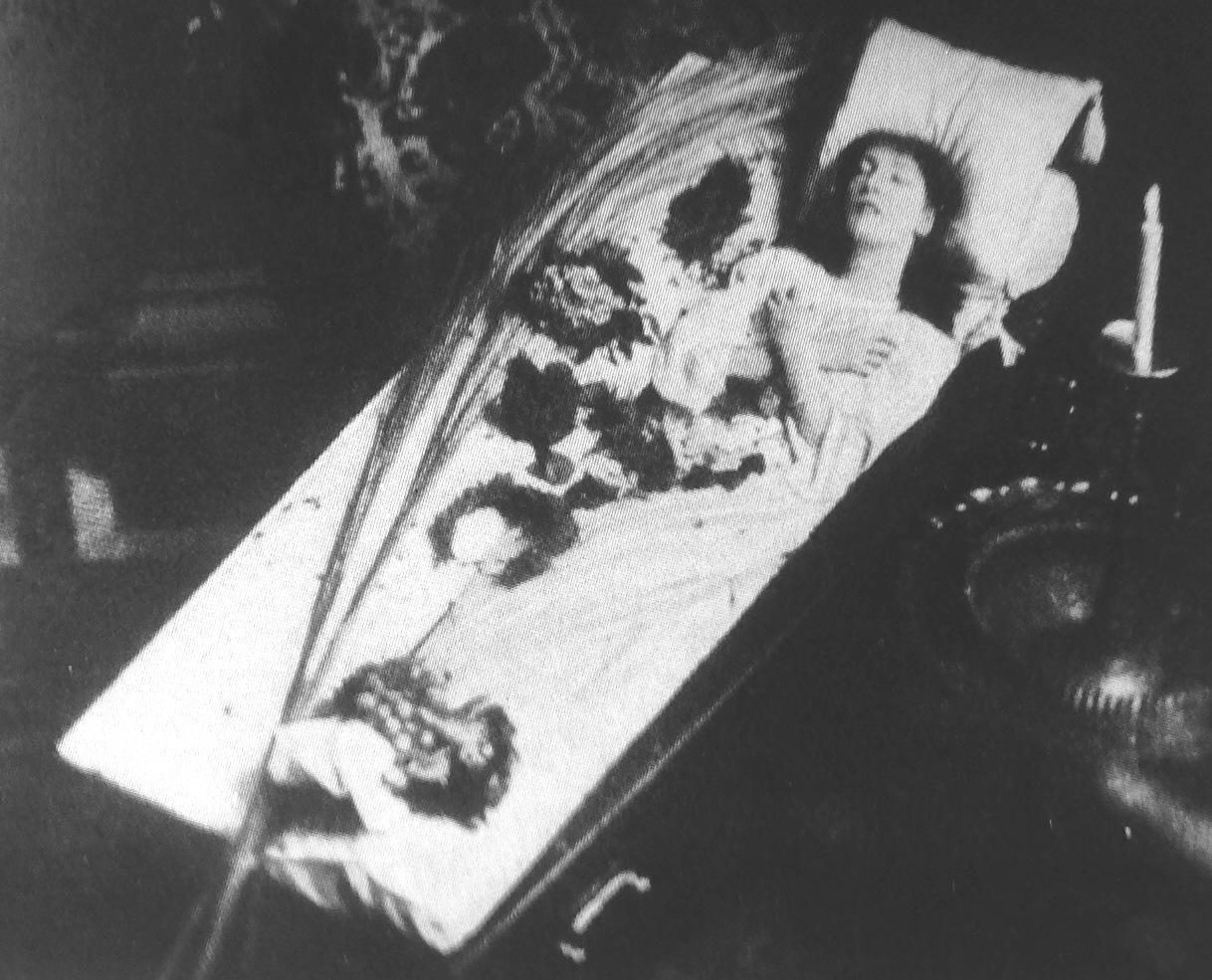
Where the Wind Blows
Robert Witmer
“Hey, buddy.” I thought I heard the scarecrow call. He was pretty welldressed. Black hat. Black blazer. A wildflower in his lapel. He seemed to be welcoming me with open arms. “What’s shakin’?” I said. Nothing. I waited for hours. You don’t want to be importunate, even though he started it. Night descended like a murder of crows on our shoulders. A cold wind blew his hat askew. I felt afraid. Suddenly I heard: “Glory to God!” “Who’s that?” “The crows do not fear me. My existence seems pointless. Why am I here, I wondered again and again. But you stopped, and you stayed. And when the wind blew, you were afraid.”
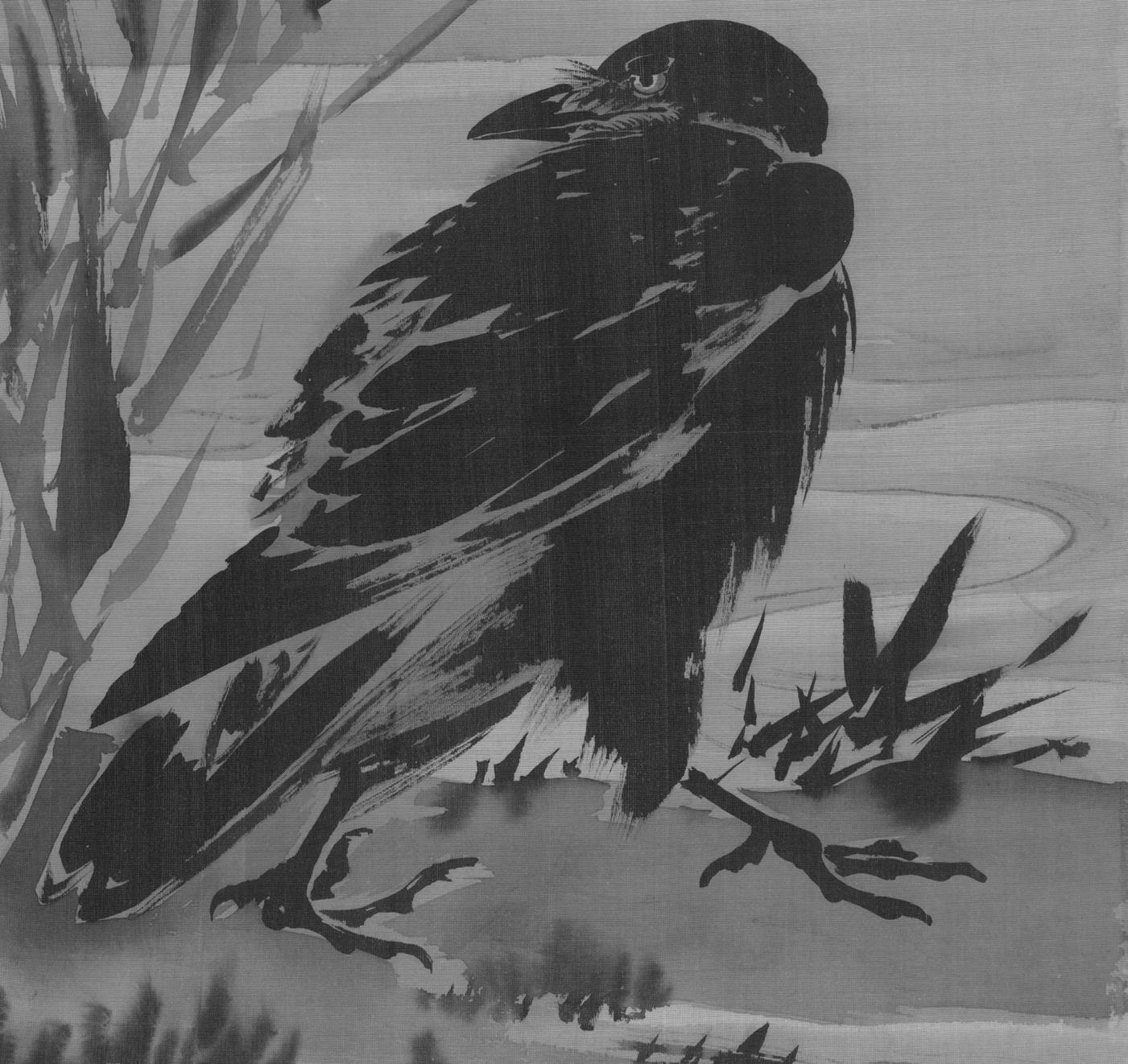
CRITICISM
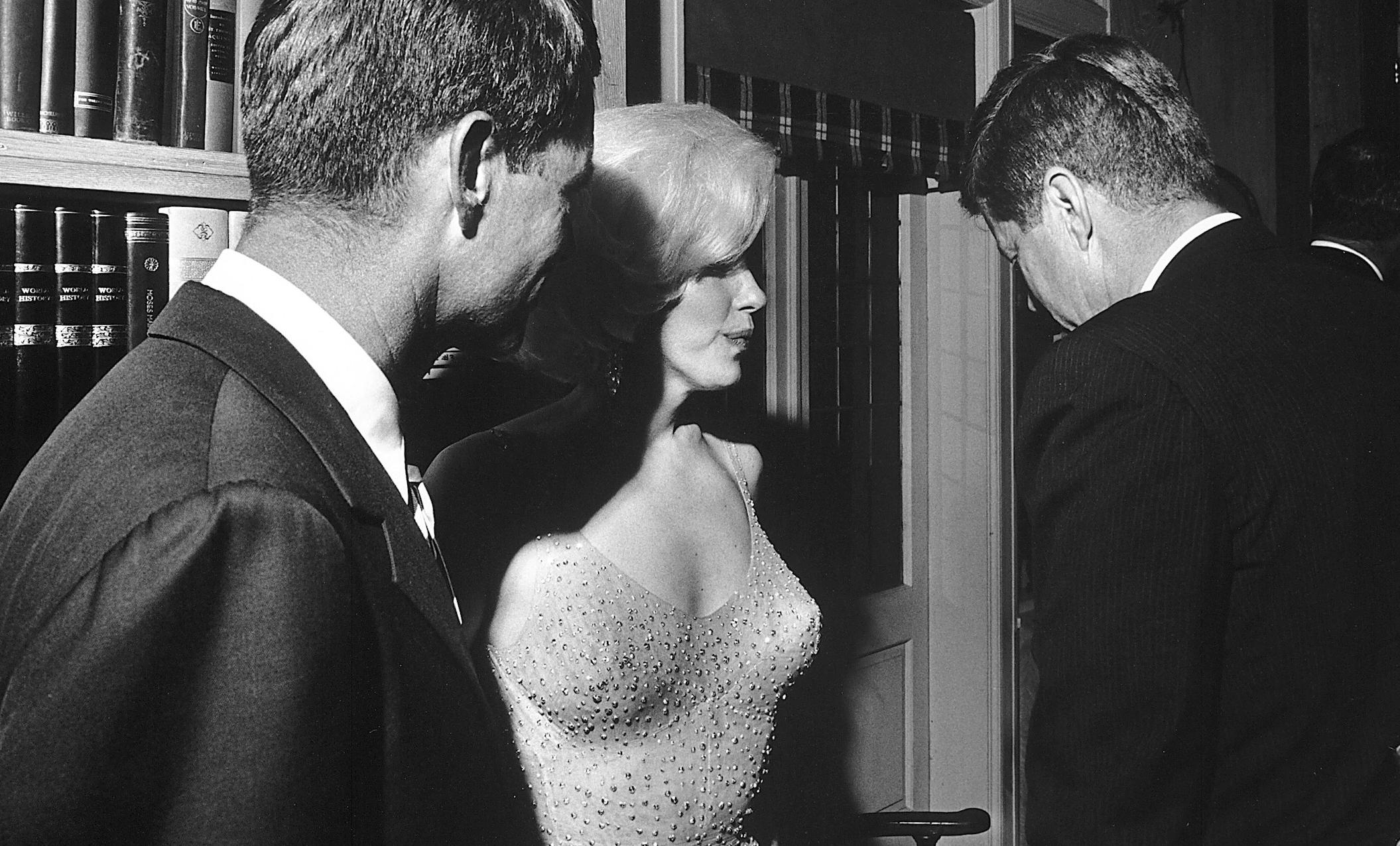
Lambs to the Slaughter: The “Kennedy Women” of Maureen Callahan’s Ask Not: The Kennedys and the Women They Destroyed
Genna Rivieccio
There is a different kind of “Kennedy curse” exposed in Maureen Callahan’s 2024 nonfiction book, Ask Not: The Kennedys and the Women They Destroyed. And, after writing a book like 2019’s American Predator: The Hunt for The Most Meticulous Serial Killer of the 21st Century (a.k.a. Israel Keyes), perhaps dissecting the men of the Kennedy dynasty wasn’t a far stretch from that subject matter. After all, serial killers, too, are usually petulant white men who treat women disposably. Like playthings. And that’s certainly how the Kennedy men come across in Callahan’s searing takedown of the male side of the family. As told through the lives of the women they effectively ruined. And this is where the other “Kennedy curse” comes in: that of being branded as a “Kennedy woman.” For, once you’re “subsumed” (Callahan’s word) by the family, you’re stuck in the pit for life. And even if you’re lucky enough to get out of it (which most women haven’t been), you’ll be forever marked with a scarlet “K.”
Callahan’s approach to detailing impudence after impudence on the part of various Kennedy males is told through some of the key players these men were either married to, sleeping with or related to. Alas, in Mary Jo Kopechne’s case, she fit into neither of these categories when Ted Kennedy left her for dead on that night in 1969 at Chappaquiddick. Indeed, although it’s fairly impossible to choose the most innocent lamb led to the slaughter, Kopechne is definitely at the top of the list. Especially because she was such a genuine believer in the “Kennedy cause.” A cause she felt was summed up by John F. Kennedy in his famous 1961 Inaugural Address: “And so, my fellow Americans: ask not what your country can do for you—ask what you can do for your country.” Notably, Kennedy also added to that statement, “My fellow citizens of the world: ask not what America will do for you, but what together we can do for the freedom of man.” It is no small coincidence that Kennedy should say “freedom of man” as opposed to “freedom of people.” After all, no woman was free while in the clutches of a Kennedy. A pattern of behavior established and passed down by the “grand” patriarch of the family, Joseph Kennedy Sr. For not only were Joseph Sr.’s sexual appetites and extramarital affairs well-known throughout various industries and circles, but so was his callous ability to suppress any woman that displeased him. Even his own daughter, Rosemary. It is she who Callahan files under the “Homes for Wayward Girls” section of the book, where she’s also joined by her matriarch, Rose Fitzgerald Kennedy.
Rose, who was in a seemingly perpetual state of being pregnant with one of their nine children. And while every birth is an agonizing torture for the woman giving it, Rosemary’s birth in particular was the most painful. Physically as much as emotionally. Because, in truth, it was misogyny that directly caused what would turn out to be Rosemary’s “intellectual disability,” as it’s vaguely described. A disability that might never have happened if the nurse on duty, who could have delivered the baby herself, didn’t refuse to do so because she was afraid of getting in trouble with the male doctor who hadn’t yet turned up. Because it was 1918 in Boston, and the flu pandemic was running rampant, the doctor was detained by his many other patients. As such, it was up to the nurse to tend to Rose until he arrived. Though the least she could have done was give her some anesthesia for the pain. But she wasn’t “allowed” to. This, again, being the doctor’s job, “a man’s job.” Not getting anesthesia, however, was nothing compared to what followed. As Callahan writes, “The nurse, trained in obstetrics, could have delivered the baby. But this was yet another thing women weren’t allowed to do, because that meant earning money that otherwise would
have gone to the doctor. If Rose’s nurse were to deliver [the] baby, then Frederick Good, the otherwise-occupied obstetrician, would not be able to bill Joe Kennedy his standard $125 fee. And so this capable nurse, upon seeing the baby crown, felt no other option but to put her palm on that tiny head and shove the baby back inside, holding her there for two hours.” All in service of the man, right? Making sure he was accommodated, “duly credited.” That was certainly the Kennedy philosophy: men first. But it was also a message further drilled into them by the uber-patriarchal society of the time. As a result, Rosemary suffered the consequences, shoved back inside her mother’s birth canal because of this chauvinism. An almost too on-the-nose metaphor for female suppression. And, as a result of this egregious offense, it’s no wonder Rosemary ended up with mental development issues. Her traumatic birth had all but guaranteed them.
Although Rosemary was the eldest daughter of the Kennedy brood, it was their second youngest daughter, Kathleen “Kick” Kennedy, who was treated with the kind of reverence usually reserved for someone in that birth order. This once Joe and Rose understood that there was something “abnormal” about Rosemary. In contrast, Kick, categorized in “The Lonely Graves” section of Ask Not, excelled in every way, and in every way that Rosemary could not, for it became apparent to Joe and Rose early on that something wasn’t “quite right” with their eldest daughter, eventually leading to Joe’s callous decision to lobotomize her without telling anyone else in the family, not even her own mother. When the procedure was botched, he hid her away in an institution in Wisconsin, with none of the siblings having any idea where she went. The message ultimately imparted to Rosemary’s brothers and sisters: if you’re a disappointment or display any signs of “nonexcellence,” you will not be tolerated. As a matter of fact, the running mantra of their parents was, “We only have winners in this family. We don’t allow losers.” One wouldn’t be surprised if John Hughes got his inspiration from the Kennedy parents in crafting The Breakfast Club line, “Andrew, you’ve got to be number one! I won’t tolerate any losers in this family. Your intensity is for shit! Win! Win! Win!” And yes, it was no wonder Joe was an open supporter of Hitler and his beliefs in eugenics. Under the Nazi regime, far worse would have been done to Rosemary than a “mere” lobotomy, so maybe she should just be grateful, right? Meanwhile, Kick was a glittering, glowing light they chose to send to London as a debutante. It was there she fell in love with her first husband, William Cavendish, Marquess of Hartington (thereby making her Marchioness of Hartington). Unfortunately, their love story was to end rather quickly when “Billy,” as she called him, was killed in
Lambs to the Slaughter: The “Kennedy Women” of Maureen Callahan’s Ask Not...- Genna Rivieccio
action during WWII. Not long after his death in 1944, Kick had the misfortune of falling for a cad like Lord Peter Fitzwilliam. It wouldn’t have taken Freud to figure out that her attraction to Fitzwilliam stemmed from his overt similarities to her patriarch and favorite brother, John, with Callahan summing it up as follows, “Fitzwilliam was more like her father and Jack than any man she’d ever met. He had infamously abandoned Olive on their honeymoon for another woman. He brought
“And this is where the other ‘Kennedy curse’ comes in: that of being branded as a ‘Kennedy woman.’
For, once you’re ‘subsumed’ (Callahan’s word) by the family, you’re stuck in the pit for life. And even if you’re lucky enough to get out of it (which most women haven’t been), you’ll be forever marked with a scarlet ‘K.’”
his mistresses home for dinner or shooting weekends and paraded them in front of his wife, whose job was to make sure they were well fed and cared for. And when Olive decompensated and became an alcoholic, she was blamed for making Fitzwilliams’s life a misery, not the other way around.”
This account, incidentally, also describes what happened to another Kennedy woman who became so through marriage: Joan Bennett. A woman who, funnily enough, would be brought into Ted Kennedy’s orbit by Kick, after she was dead. For it was at the dedication ceremony for a gym named in her honor at Manhattanville College that the youngest Kennedy daughter, Jean, would steer Joan toward her brother. Arguably the worst Kennedy man of Joseph Sr.’s brood, which is really saying a lot. On a side note, Jean would become the mother of another notorious Kennedy rapist (who would, of course, receive no consequences for his actions), William Kennedy Smith.
Although Joan was inexplicably struck by a coup de foudre with Ted, her doubts about marrying him—especially so soon after meeting him—began to sink in deeply before the wedding. She was quickly getting the same sense that many a “Kennedy woman” would have prior to the “subsumption” that came with marrying into the family. Worse still, she was already starting to see Ted for what he was: an incompetent little boy who did whatever the family told him (that is, when he wasn’t doing whatever he arbitrarily felt like). And what Joseph Sr. told him was that this was the girl to marry. She was beautiful and, in his eyes, moldable. The perfect fit for a future president (for he saw each of his sons as presidential material in order of birth). All of it, however, had become very unsettling to Joan. As Callahan describes, “None of it felt right. Ted wasn’t acting like a man in love. He wasn’t in the throes of a grand romance. This, Joan realized, was a merger. She was a casting coup. The wedding Old Joe was planning was out of her control, and her father was all too happy to play along, paying for sound design and lighting worthy of a Hollywood set. Her role would be to look pretty and produce children as if she were an assembly-line worker.” Just as it was every Kennedy wife’s role. Especially Jacqueline Bouvier’s, soon to be affectionately known to the American public as “Jackie.”
Callahan brings Jackie up the most in Ask Not, with the president’s wife appearing in four separate sections: “Icons,” “The Mythmaker,” “Falling Stars” and “Phoenix.” It makes sense considering how many times Jackie had to reinvent herself in her post-JFK life. Though she never reinvented herself so much that people forgot her association with the slain president. And if anyone is complicit in perpetuating the myth of the Kennedys, it’s Jackie. She was the one, after all, who coined the term “Camelot” in reference to the brief JFK presidency. A presidency that, had he lived to see it through, might not have been assessed so favorably. After all, he was the one who invoked the threat of nuclear war with his catastrophic Bay of Pigs Invasion. This leading to the Cuban Missile Crisis and an even more strained relationship with Cuba and the Soviet Union as the Cold War ramped up. Were it not for the effective martyrdom of JFK because of his assassination, there’s no doubt that his legacy as a politician would have been called into question far sooner. Though, even to this day, the myth of Camelot still holds power. All thanks to Jackie ensuring it with a Life magazine article written in the days immediately after the assassination. Agreeing to do it only if she had final edit approval, this is how Jackie secured that immortal final line (taken from Alan Jay Lerner’s lyrics for the 1960 Broadway musical, Camelot): “For one brief shining moment there
Lambs to the Slaughter: The “Kennedy Women” of Maureen Callahan’s Ask Not...- Genna Rivieccio
was Camelot.” As White dictated Jackie’s version over the phone to his editors, they found that line in particular to be “overwrought. Untrue. Laughable.” But, as Callahan says, “It was [Jackie’s] version or nothing. And so her first draft of history won out, the very last line, the kicker... [was the] fairy tale [that] would captivate America for decades to come—at the cost of many more women. What, in hindsight, had she wrought?”
Well, in addition to protecting the Kennedy cesspool, what she had wrought was yet another generation of Kennedy men whose sense of entitlement and “above it all” perspective would go unchecked. And, incidentally, it was in the same Life article that Jackie was quoted as saying of John Jr., “I want John to grow up to be a good boy.” Funny how there was no need to mention a concern for wanting Caroline to grow up to be a “good girl.” Because all girls in general, not just Kennedy ones, are expected to be “good” anyway, with the old “boys will be boys” adage excusing the Kennedys with dicks from any culpability. And yes, the protective, insulating nature of having money to not only shield them from consequences, but also provide the firepower necessary to keep “smear campaigns” at bay (instead repurposing any such smear campaigns against the women that might “attack” them) was a key component of the Kennedy arsenal. To be sure, just as Nixon had his “Plumbers,” so, too, did the Kennedys have their, for all intents and purposes, “Cleaners” (with Dave Powers, “special assistant,” being the primary one of JFK, in addition to a “procurer”).
That said, Callahan kicks off the book with an all too fitting quote from The Great Gatsby (granted, F. Scott Fitzgerald was no benchmark either when it came to treating women with decency): “They were careless people...they smashed up things and creatures and then retreated back into their money or their vast carelessness, or whatever it was that kept them together, and let other people clean up the mess they had made.” Alas, there were some “inconvenient women” who turned out to be more of a “mess” than they bargained for. Chief among them being Marilyn Monroe. And yes, both John and Bobby had their affairs with her, passing her back and forth like a football. For Monroe, it was JFK she wanted the most, but when he started to distance himself (at Jackie’s enraged behest) from her after the oozingwith-sex display she put on for her infamous rendition of “Happy Birthday, Mr. President,” Bobby became all shiny and new again. Per Callahan, “After that night, Jack faded from Marilyn’s life. She didn’t know about the ultimatum Jackie had given him, but she also didn’t like being frozen out. It triggered her worst fear: abandonment. She would try the White House but was never able to reach Jack. Instead,
another Kennedy was suddenly making himself available to Marilyn: Bobby.”
While Marilyn may have had genuine affection for both men, for Jack and Bobby, she was ultimately part of an “incestuous sexual competition,” as Callahan phrases it. After all, it was nothing new for
“Everything about women, to the Kennedy men, was nothing more than a sick game to them at worst, and ‘a need’ to be exorcised at best. Tantamount to ‘brushing one’s teeth.’ Accordingly, it wasn’t uncommon for most women to assess the likes of JFK as the antithesis of a tender or even ‘good’ lover. He treated the act like something clinical, just another ‘order of the day’ on his ‘agenda.’”
Kennedy men to share and/or “swap” women. And it was usually always related to asserting dominance. Just look at the fact that JFK slept with his father’s paramour, Marlene Dietrich. Everything about women, to the Kennedy men, was nothing more than a sick game to them at worst, and “a need” to be exorcised at best. Tantamount to “brushing one’s teeth.” Accordingly, it wasn’t uncommon for most women to assess the likes of JFK as the antithesis of a tender or even “good” lover. He treated the act like something clinical, just another “order of the day” on his “agenda.”
As the mask on the collective face of the Kennedy men has been pulled off in the decades since John F. Kennedy’s assassination in 1963, there are many women who have emerged from the shadows
to tell their stories. Among them Mimi Beardsley and Diana de Vegh, categorized under “The Survivors” section of Ask Not (in addition to starting out as “The Girls”). What’s more, there are likely many women still who suffered at the hands of a Kennedy that the public will never know about. And Beardsley only decided to come forward about it when the story broke in 2003 thanks to Robert Dallek’s publication of a book called An Unfinished Life: John F. Kennedy 1917-1963. In it, Dallek had pulled “a passage from an eighteen-page oral history that had been conducted in 1964 by a former White House aide named Barbara Gamarekian... and had seized upon a particularly juicy tidbit.” The “tidbit” in question was that, among many other women, Kennedy had also carried on with a ‘tall, slender, beautiful’ nineteen-year-old college sophomore and White House intern, who worked in the press office during two summers. (She ‘had no skills,’ a member of the press staff revealed. ‘She couldn’t type.’)”
Mimi assumed this tidbit was buried too deeply within Dallek’s tome to gain much attention. Alas, seeing as how the Clinton-Lewinsky scandal was still fresh in the public’s mind, the seemingly “tiny detail” ended up becoming the headline, “JFK Had a Monica: Historian says Kennedy carried on with White House intern, 19.” And so, it seemed that it was time for Mimi to take her story into her own hands, resulting in her 2009 memoir, Once Upon a Secret.
Callahan draws upon the power imbalance between Mimi and JFK when she writes, “What had Jack Kennedy really thought of women? The adult Mimi had learned that the president said that ‘the chase is more fun than the kill,’ that he called his paramours ‘kiddo’ or ‘sweetie’ because there were so many that he couldn’t remember their names.” Indeed, Mimi states in Once Upon a Secret, “I was well aware that tabloids such as the Daily News tended to focus on all things personal and scandalous about JFK. Such stories always made me queasy. They reminded me that I was not that special where President Kennedy and women were concerned, that there were always others.”
Every Kennedy man knew there would always be another willing sacrificial lamb for his various ephemeral “needs.” So it’s no wonder that, in any photo of a Kennedy man, there is an undeniable air of arrogance about him. Particularly in those generations that came after the “big kahunas” of JFK and RFK. And even those only “tangentially” close to the main family benefitted from the “pass” that came with being a Kennedy male. There was no better example of that than what happened to fifteen-year-old Martha Moxley on Halloween of 1975. Along with Pamela Kelley, Martha is discussed in the section titled “Stolen Youth.”
And oh, how both women’s youth was stolen.
For Martha, it was living too close to the Skakel family that ended up stealing it. Having moved from San Francisco to the tony Belle Haven, Connecticut after her father secured an international accounting job, Martha’s fears of leaving the West Coast behind started to melt away as she began to hit her stride at her new school, becoming well-liked among her peers. So much that she was voted best personality a year after being there. But it wasn’t her “personality” that boys like Thomas and Michael Skakel were after, with the latter being the most incel-esque of the two. And when a Kennedy boy didn’t get what he wanted from or felt slighted by a girl, things could turn ugly real fast. Their father, Rushton a.k.a. “Rush,” seemed to know this about them, for he was the one who paid an organization called The Academy Group to interrogate both sons and work up a profile on each. Not because he particularly cared that Martha had been murdered, but because, as Callahan notes, “The deep dive into Tommy and Michael’s psyches was meant to help prepare the brothers for further interrogations with law enforcement.” For any Kennedy man worth his weight in Kennedy DNA would surely have far more than just one brush with the law in his lifetime. Not only that, but any Kennedy man with a brother would invariably be trying to compete over a woman viewed as “a piece of ass.”
In the report, there was also a list of “pressing questions,” with one of them being, “Would Tommy and Michael try to have sex with Martha together?” Ah, the old Jack and Bobby playbook. Because, in its way, having sex with the same woman was the closest the Kennedy boys could get to having sex with each other. And, talking of a Kennedy playbook, there was the usual method of trotting out the accusation that Martha had been the one inviting attention from Tommy, which is what led, somehow, to her murder. Because if she was “flirting” with Tommy, who else might she have been flirting with that didn’t like being “teased”?
However, as Callahan sees it, “Her flirtatiousness seems to have been of the ‘nice girl’ variety, and was indicative of a self-confident and cheerful disposition.” One that was tainted and perverted in the articles and headlines that followed, with some predictably speculating that Martha had “asked for it” by being too friendly (code for: slutty). Cut down (or rather, golf clubbed down) in her prime, at the mere age of fifteen, in a certain sense Martha had it easier than Pamela Kelley, who survived a brutal car accident at the hands of Joseph Kennedy II, the eldest son of RFK. She was eighteen years old when she became permanently paralyzed, her whole life still ahead of her, as they say.
All because she was talked into taking a ride from hell in Joe II’s Jeep, a car designed to seat four passengers. Instead, seven teenagers crammed into the car as Joe II drove it with the kind of reckless abandon that had come to be expected of a Kennedy man. To be sure, it was precisely because Kennedy boys were conditioned from an early age to believe they were special that they genuinely seemed to think that nothing could touch them. Least of all the reaper.
In fact, Callahan argues that the long-touted myth that there exists some sort of “Kennedy curse” is, in reality, a product of the “I’m-above-it-all” nature of the Kennedy men. And no one had that nature more than John F. Kennedy Jr. Through the lens of Carolyn Bessette, who serves as the starting point of Ask Not, Callahan spotlights JFK Jr.’s two-dimensional essence and total lack of skill in anything, least of all piloting a plane. And yet, because of his name, he assumed some higher power was beholden to him. To bestow him not just with financial and DNA-related gifts, but also with the miraculous ability to fly despite being wholly unqualified to do so. Yet, to this day, that 1999 plane crash, which killed JFK Jr., Carolyn and her sister, Lauren, is attributed to the so-called Kennedy curse. Worse still, the blame is pinned on Carolyn for being, what, a woman? Therefore, an automatic shrew causing nothing but misery to her husband. Callahan echoes this idea with sarcasm: “It was her vanity, her superficiality, her drug use, her all-around shrewish behavior that led an inexperienced, hubristic pilot—a man who, in taking to the air that night, broke just about every rule of flying—to crash his plane into the ocean.”
But no, the more accurate assessment is that “he was expressly told by far more experienced pilots, more than once, not to pilot the plane that night. He waved off a willing flight instructor who offered to co-pilot that night. He nearly crashed into a commercial airliner that was on its approach to [where else] Kennedy International Airport. [JFK Jr.] took the lives of two innocent, beautiful, successful, vibrant young women with bright futures, yet one of them has been vilified while John remains lionized. Beloved. Free of fault.” The carte blanche of being a Kennedy man. One not afforded to the women they chew up and spit out. The women with the courage to speak the truth—at least, those that have managed to survive. Still, these women, like Mimi, like Diana, are undermined through the weaponization of language, with strategic use of such phrases as “alleged affair” and “alleged mistress.” As though these women would have anything to gain by recounting their humiliations. Humiliations that, for so long, they felt they had no choice but to harbor, to bury somewhere deep down. Humiliations of which they were tacitly
told: ask not. Which brings one to the final sentences of Callahan’s prologue: “This book’s title comes from the most famous line of John F. Kennedy’s inaugural address... ‘Ask not’ has also forever been an admonition to women in the Kennedy sphere: ask no questions. Don’t ask for help or respect, for fairness or justice. This book takes that as a dare. Ask not? Let’s.”
Of course, conservative pundits such as Megyn Kelly have praised this book for an altogether different reason than what it’s intended to convey. Not just that the Kennedy dynasty is built on a foundation of smoke, mirrors and female trauma, but that “even” Democrats are no saints. All Republicans will see is another opportunity to seize upon condemning the “liberal agenda” and how all politicians along such party lines are amoral hypocrites.
The release of Ask Not also comes at a time when the efficacy of the Democratic party as a whole has been called into question after such a catastrophic loss to Donald Trump in the 2024 election. Trump, a man praised for being “open” about his flagrant abuse of women rather than closeted or faux pious like the Kennedys. Perhaps that’s part of why RFK Jr. felt obliged to cross enemy lines and join a man as nefarious as he is. Or maybe it’s that his brain really was eaten away by a tapeworm.
Whatever the case, despite the increasingly déclassé aura of the Kennedy dynasty, it’s one that continues to endure. To reign unchecked. All because a patriarch way back in the line told these boys their destiny was to be great—and fuck anybody who gets in the way of that (this often taken too literally by the Kennedy men).
If you like The Opiate magazine, you’ll love The Opiate Books. Find our current roster of titles (featured below) online or at your favorite bookstore. Visit theopiatebooks.com for more information.
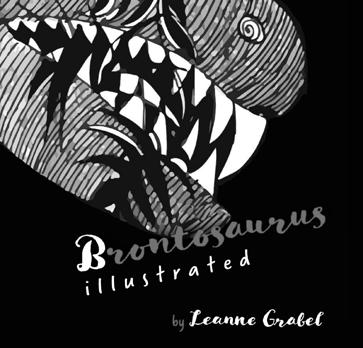
Released: June 2022 List price: $34.99
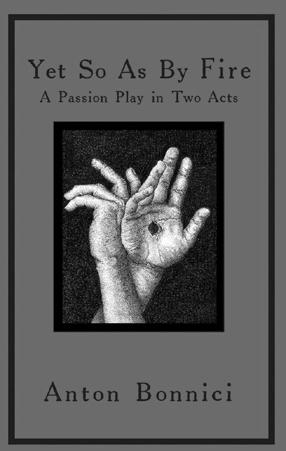


Released: April 2023 List price: $10.99





Brontosaurus Illustrated by Leanne Grabel
Megalodon by Donna Dallas
Lindsay Lohan Stole My Life (A Tate Carmichael Novel) by Genna Rivieccio
Released: April 2023
price: $18.99
Yet So As By Fire: A Passion Play in Two Acts by Anton Bonnici Released: December 2021
price: $12.99
Quasar Love: A Reenactment in Three Acts by Anton Bonnici Released: August 2022
price: $12.99
Pornotopia: The Incomplete Texts by Anton Bonnici Released: July 2024
price: $12.99
Atlas, Bound by Victor Marrero
Released: July 2023
price: $15.99
I Love Paris by Rufo Quintavalle Released: September 2023
price: $10.99
This Rescue Thing by Penny Allen Released: April 2024
price: $18.99
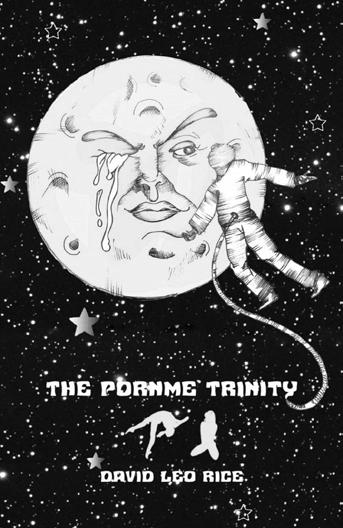
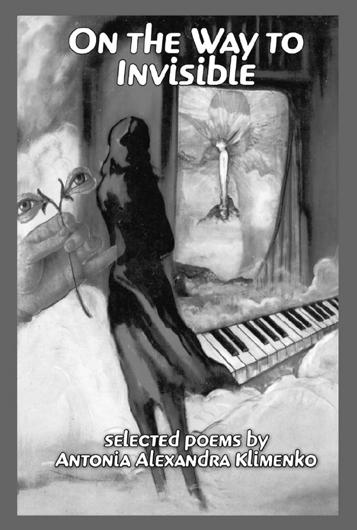

The PornME Trinity (2nd Edition) by
On the Way to Invisible by Antonia Alexandra Klimenko
Fire Within by Chiara
David Leo Rice
Released: October 2022
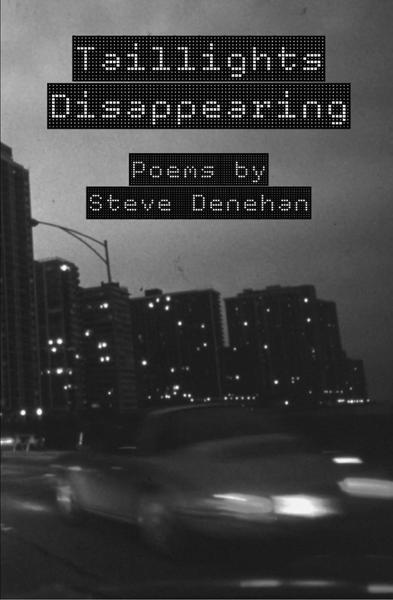
Taillights Disappearing by Steve Denehan
Released: November 2024
List price: $14.99

The Verities of Love by Ron Kolm
Released: March 2025
List price: $12.99
Released: June 2024
List price: $14.99
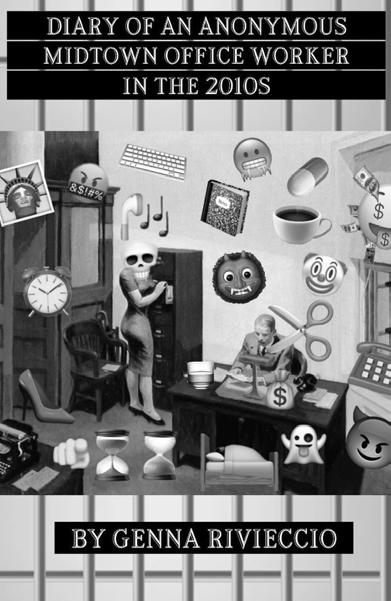
Diary of an Anonymous Midtown Office Worker in the 2010s by Genna Rivieccio
Released: January 2025
List price: $23.99
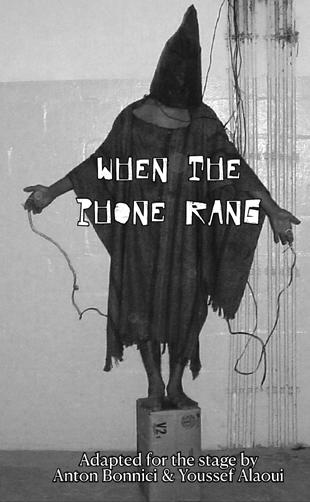
When the Phone Rang by Anton Bonnici & Youssef Alaoui
Released: April 2025
List price: $14.99
Released: September 2024
List price: $14.99
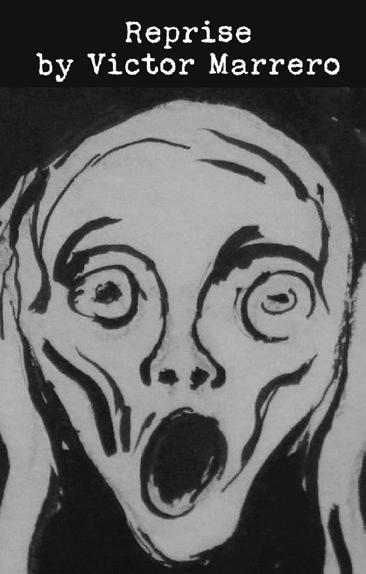
Reprise by Victor Marrero
Released: January 2025
List price: $7.99
The
Maxia
With summer upon us, so, too, is the continuing fall of a certain “empire.”
So why not sit back and watch the ongoing disintegration with The Opiate, Vol. 42 in hand? This edition features fiction, nonfiction and poetry from Steve Novak, Barry Fields, Antonia Alexandra Klimenko, Arthur Davis, Ken Post, Salvatore Difalco, Renshaw, John Tricarico, Priscilla Atkins, Frank Freeman, Gaia Huaira Capizzi Candiracci, Hedy Habra, Sophie Roy, Kathryn Adisman, Xavier Jones, Jonathan Ukah, John Grey, Onix N. Vanga, Stephanie Watkins, Jennifer LeBlanc and Robert Witmer.
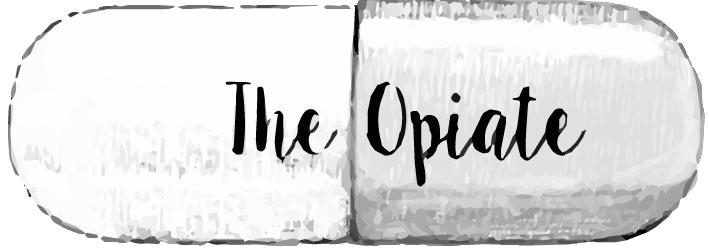
The
